Inside the mind of World No. 1 Novak Djokovic

In a few days, Novak Djokovic will once again try to complete his career Grand Slam at the French Open, the one major title he has yet to win. In Paris, the 28-year-old—who celebrates his birthday on the first day of this year's tournament—has been to the French Open finals three times in the last four years, only to come up short.
“I don’t like the word obsession because it doesn’t come from the right emotion,” he says. “It is a wish, a goal like anything else is and was, and that’s what it’s going to stay. Of course I’ll try to get a step further in Paris than what I’ve done in the past but I’m not the only one who wants to win. Yet, Roland Garros being the only Grand Slam I never won gives me even more incentive to give my best there.”
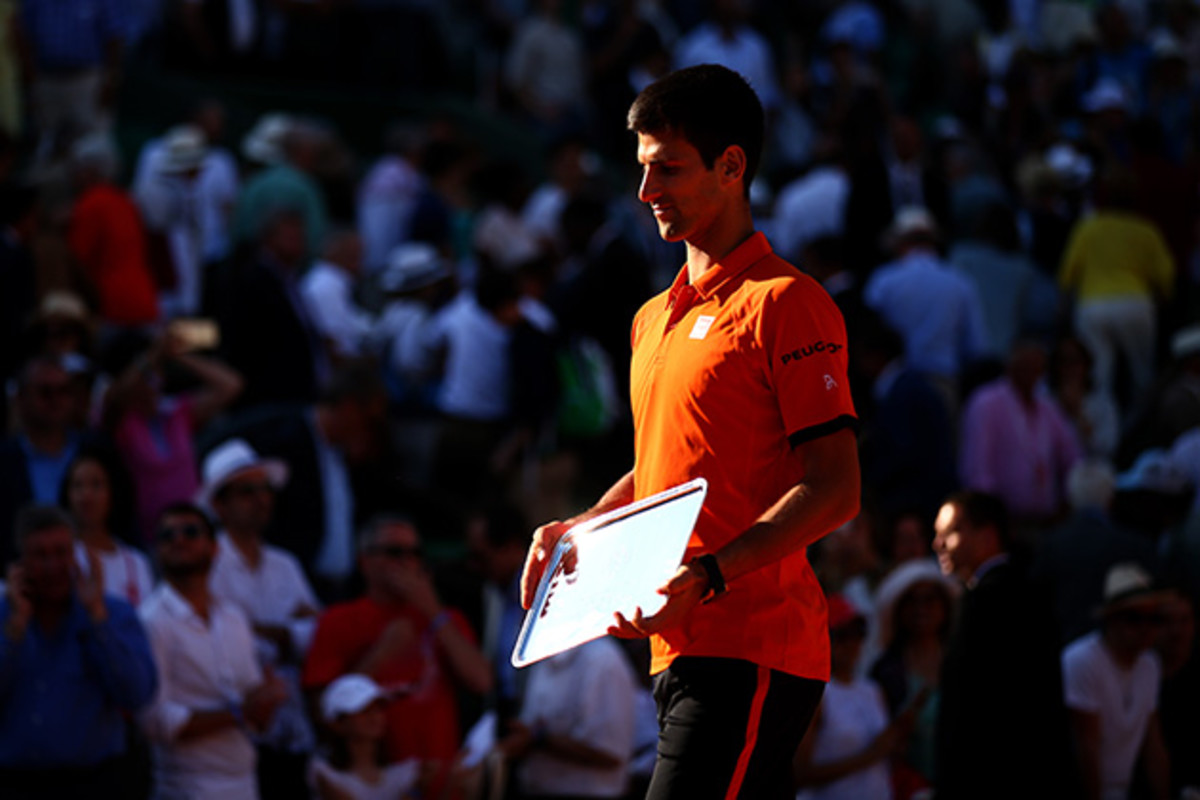
Despite losing in Paris, Djokovic has bounced back at Wimbledon, winning the title the past two years, and his resilience is as much his trademark as it is his foundation. With 11 Grand Slam titles already under his belt, he keeps aiming for more. Often compared to a cat for his outstanding flexibility, the World No. 1 also deserves the comparison for the many lives he’s already been through. He’s been the kid growing up in war-torn Serbia; the unexpected tennis prodigy discovered in Kopaonik; the 2008 Australian Open winner poised to challenge Roger Federer and Rafael Nadal; and the self-doubting World No. 3 seemingly stuck in the outsider role. But since 2011 he has finally reached the only place that interests him: the top.
Mailbag: How will Djokovic's Italian Open loss affect him at French Open?
Still, the most compelling side of Djokovic might not be his game, despite his now-famous backhand and return. It might be the brain that drives it all. Comfortably set on a couch outside Monte Carlo’s players’ restaurant in April, Djokovic doesn’t need long to explain where his mental abilities come from.
“It’s something written in my DNA code a little bit, because of the culture of Serbs and Balkanic areas, considering the history and what we’ve been through,” he says. “People in the region developed a kind of character feature, and also an existential need for battle. And then obviously the circumstances that I had in my childhood…they did help me, when I look back now, to get tougher and to know what I want and to appreciate what I have.
“This kind of past made me hungrier for everything, including success.”
When he started on the ATP Tour, Djokovic says it was sometimes tough to be Serbian. At one point in his career, he traveled with his father and says people would act “like we were up to something bad” and he felt they had to “make twice the efforts to impress people.”
“Because I was forced as a very young boy to already face some circumstances that adults were facing, that’s why I think I had to develop and grow up faster,” he says. “After that I always tried to learn and educate myself, to develop as a person really. That’s the mindset that gives me comfort and ease.”
Djokovic reflects on his climb to No. 1 ahead of 2016 French Open
But now that he’s at the top of the game, having achieved one of the best seasons in tennis history in 2015 and on the verge of another strong year in 2016, he doesn’t feel any special satisfaction towards those who shunned him.
“Honestly, I don’t feel this emotion at all. I am proud to share my celebration and my success with the people in a very positive way,” he says. “I don’t have these kind of revenge moments. Why would I do that? It doesn’t make me feel good, nor the other person. Of course I’m very proud of what we have achieved, but we’re coming from a positive place.”
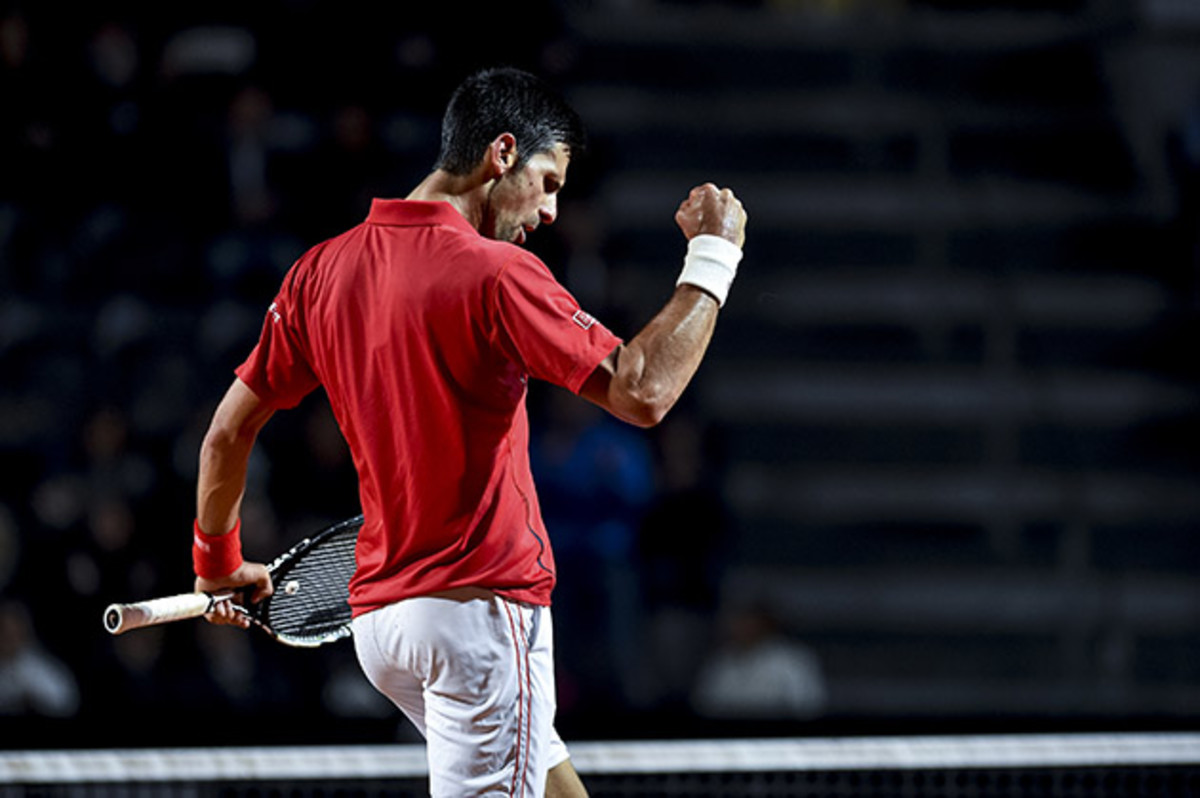
But even though he leads the ATP rankings by a large margin, Djokovic hasn’t forgotten the lower points in his career, where he struggled to win big matches against the likes of Federer and Nadal.
“I was very good and can not say I was disappointed because I was No. 3 in the world, but I knew what I wanted and I wasn’t satisfied,” he says. “I knew I could reach more.”
Here's what the top players will wear on court at 2016 French Open
He credits those years for making him grow his tennis and his mental strength, and for helping him working harder physically, technically and mentally.
“It made me get what I had to do in order to get where I want to be, and that is the No. 1 in the world, to win against those two guys and break their dominance,” he says. “It was a big task, but I managed to make that quick and crucial transition from being in self doubt to really be in self-belief and confidence.”
In addition to on-court drills and fitness, Djokovic has added yoga, meditation and other mental preparation techniques, such as visualization, to his routine.
“As you work on your muscles in the gym, mentally you also have to work,” he says.

Beyond the Baseline: SI's tennis podcast
Sports Illustrated Podcast Network



Djokovic also enjoys reading books, speaks a half-dozen languages, plays chess, listens to classical music and has an overall curiosity for what’s going in the world. He names Bill Gates, Richard Brandson, Larry Ellison and Elon Musk as people he admires—“people who made an incredible mark in their own fields but still managed to be humble and keep this consciousness about others, to improve the planet—making a positive change,” he says.
PHOTOS: FRENCH OPEN 2015 TOP 100
French Open 2015 Top 100
Rafael Nadal
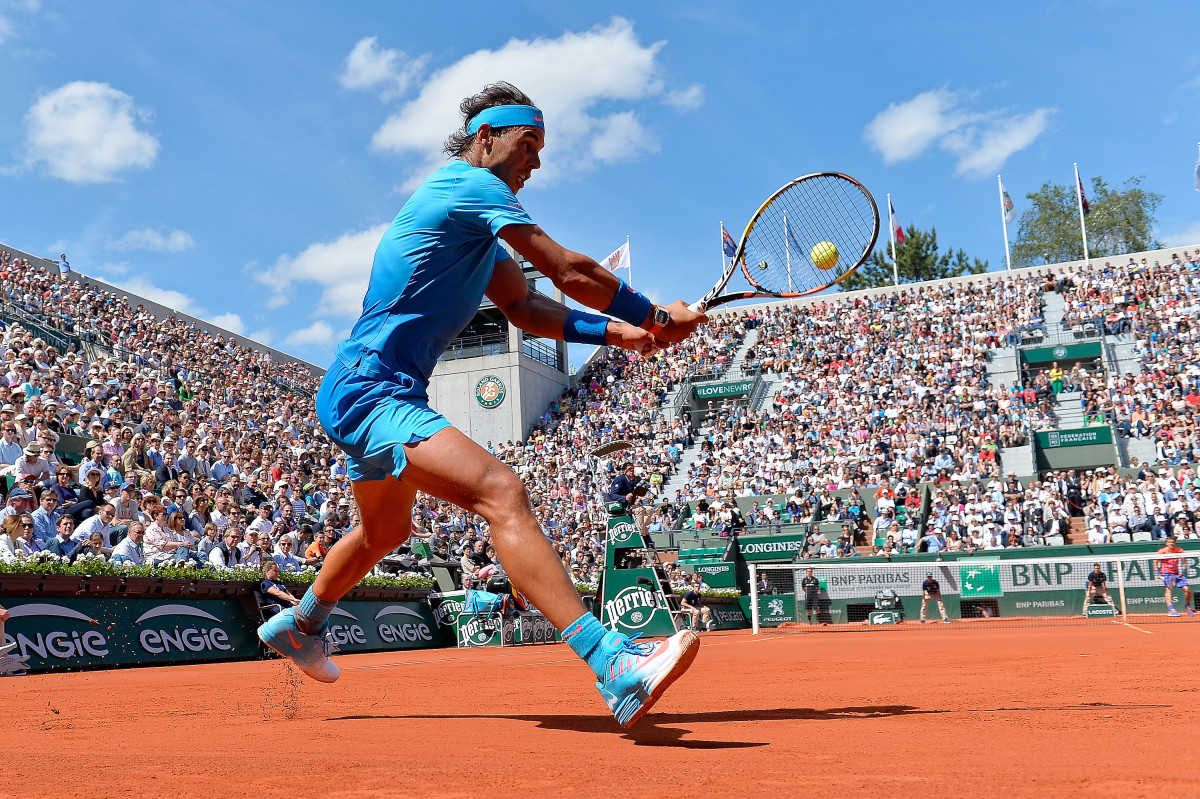
Stan Wawrinka
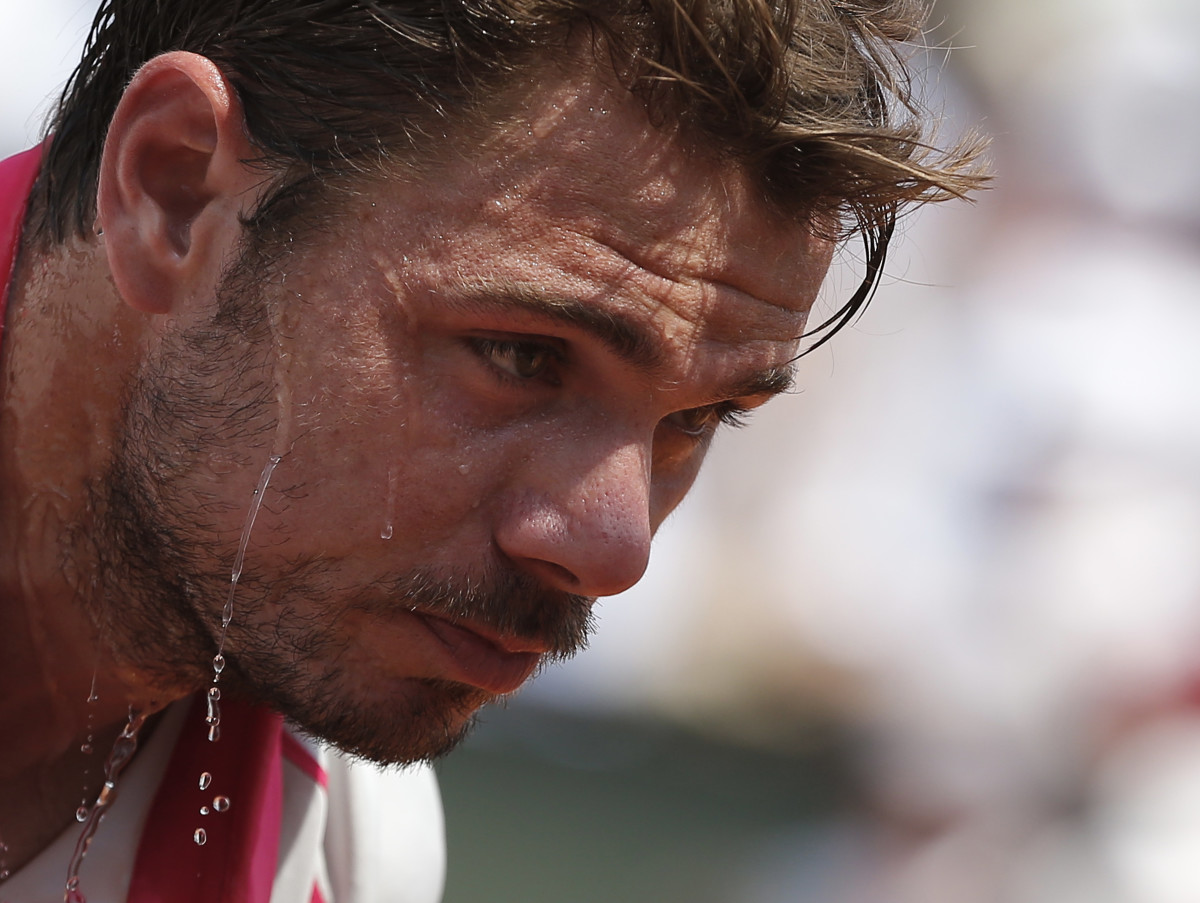
French Open
Andy Murray
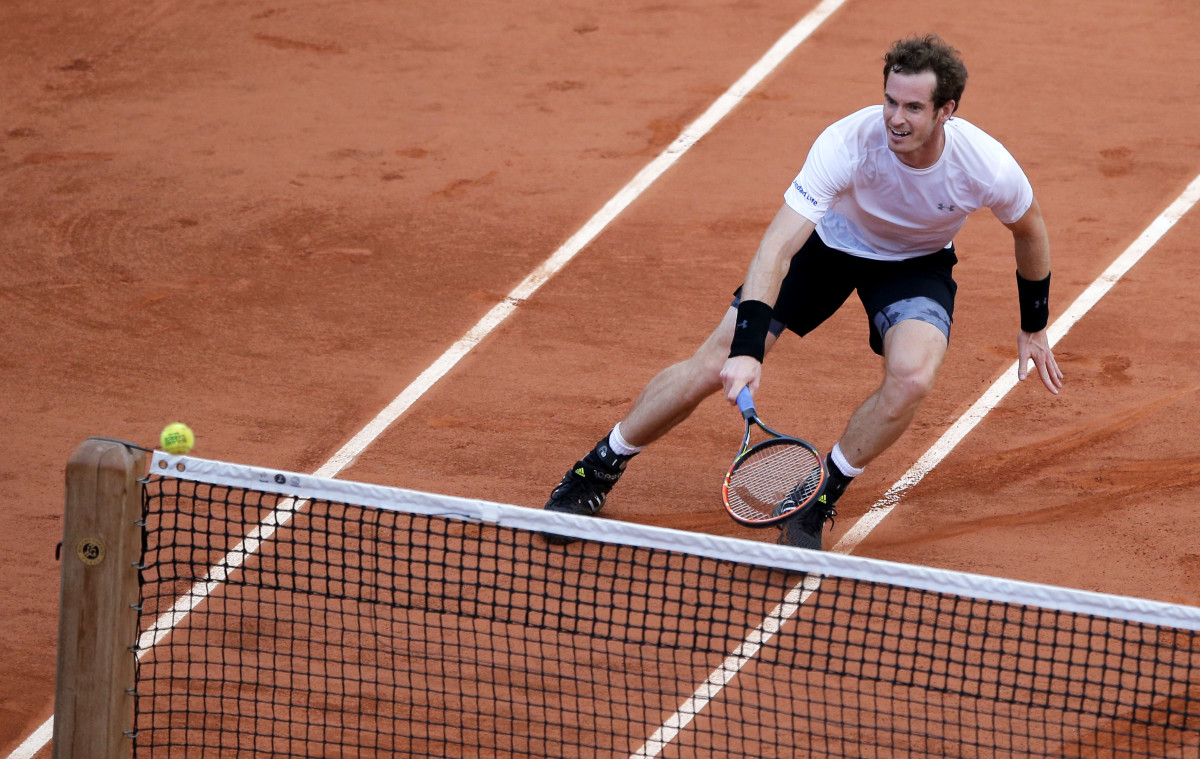
Lucie Safarova
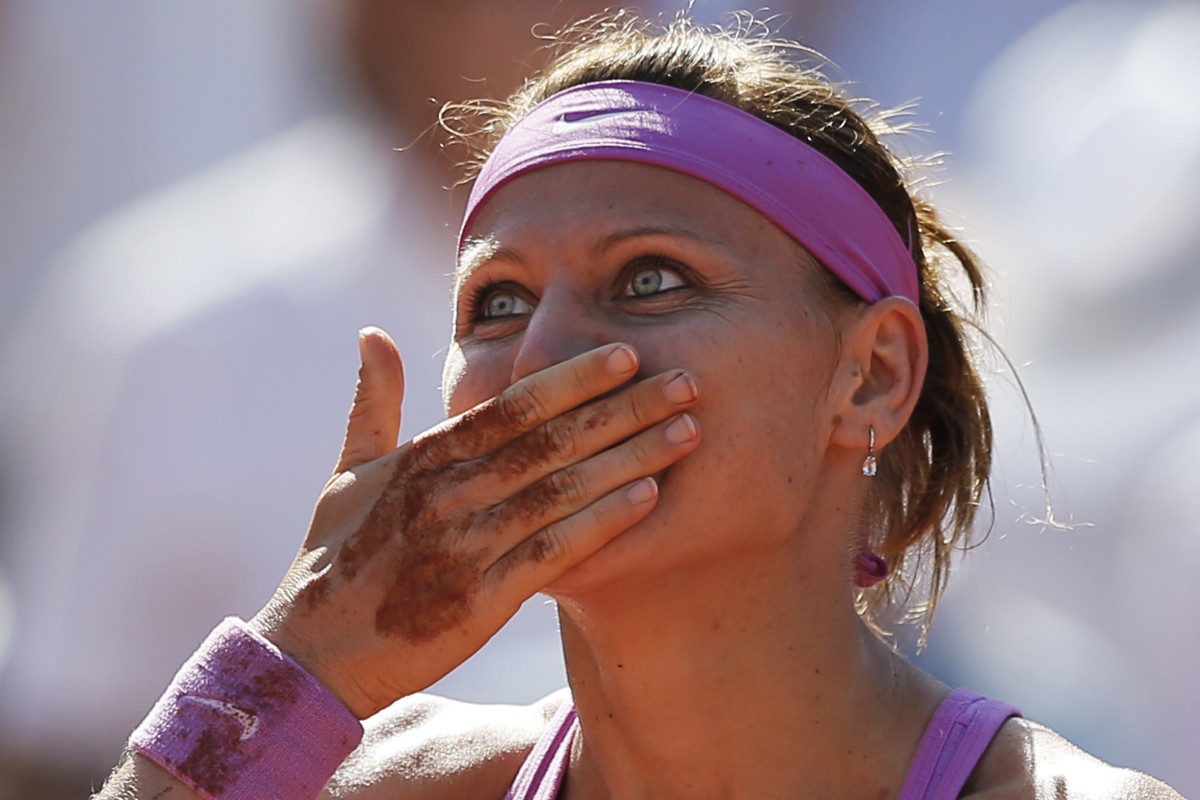
Rafael Nadal
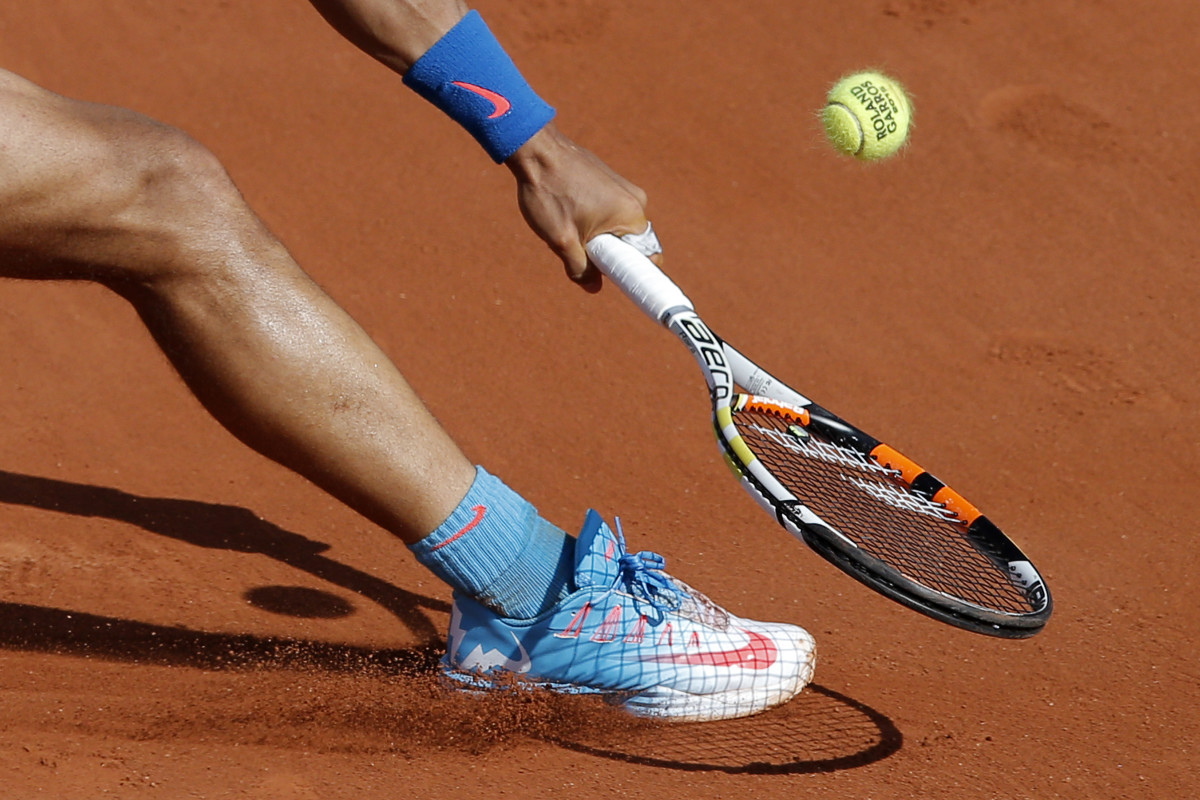
Lucie Safarova
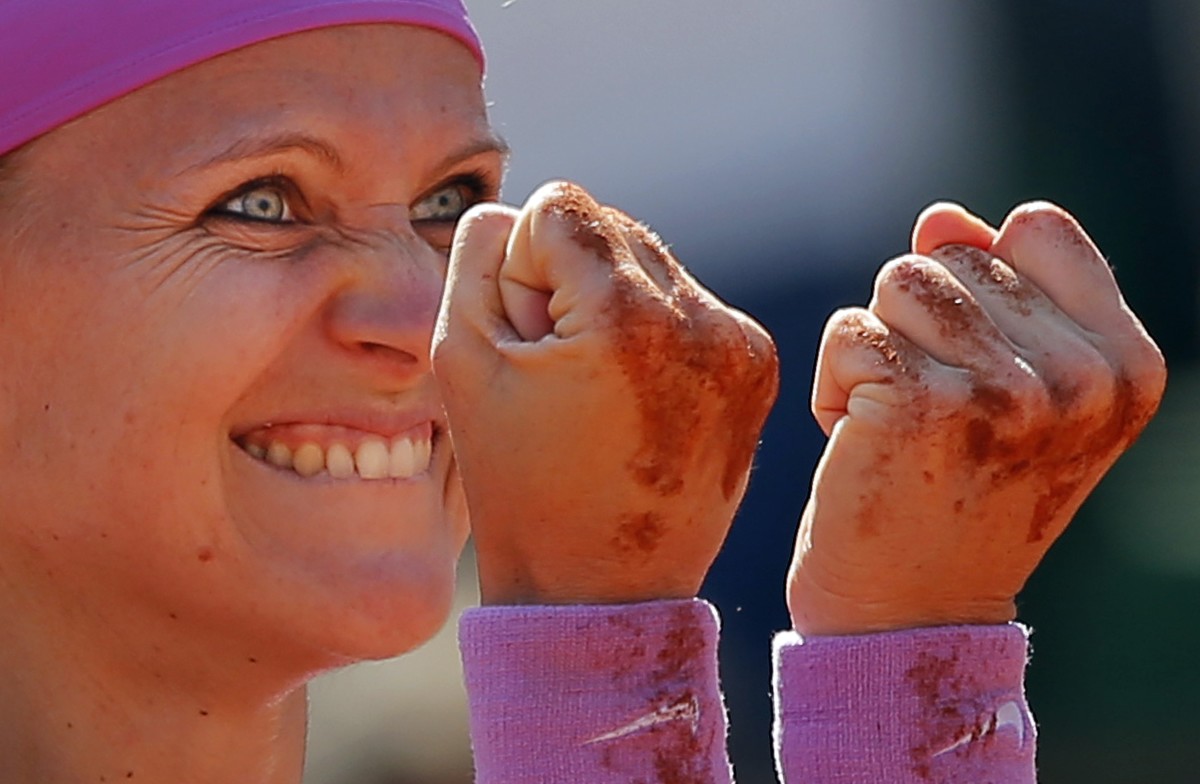
French Open
Roger Federer
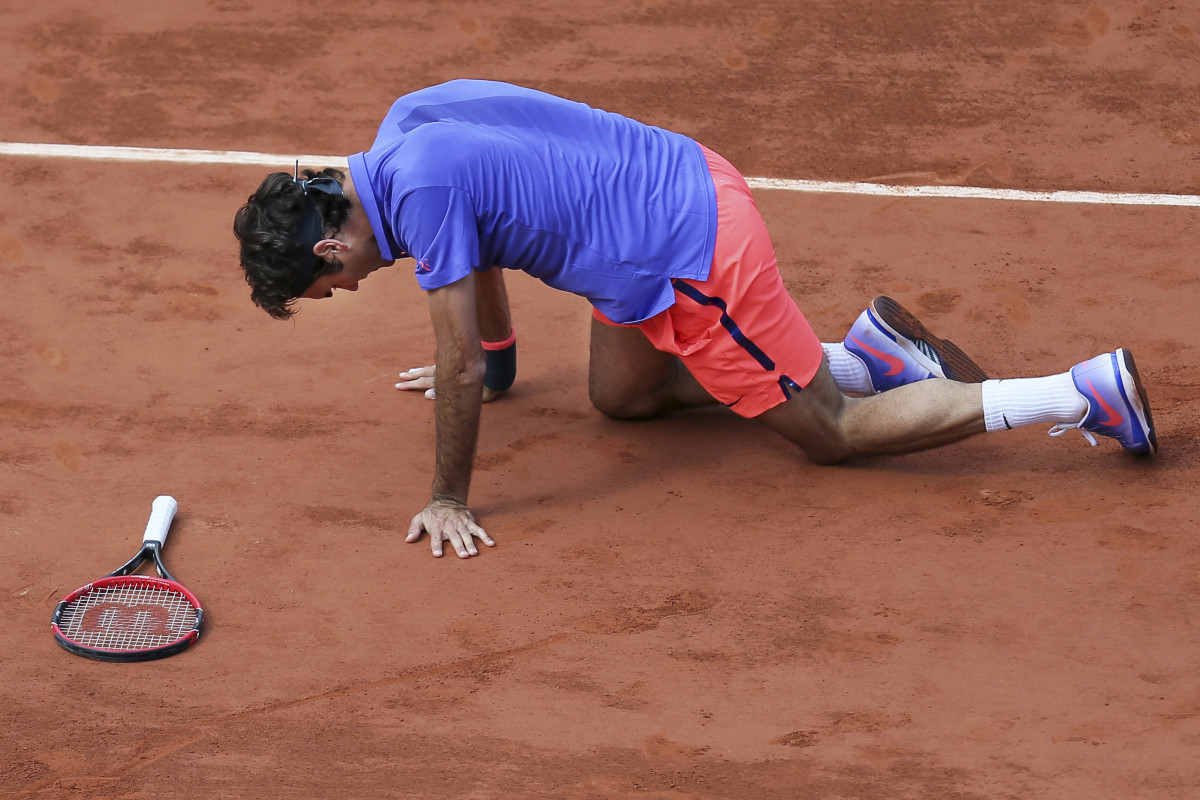
Andy Murray
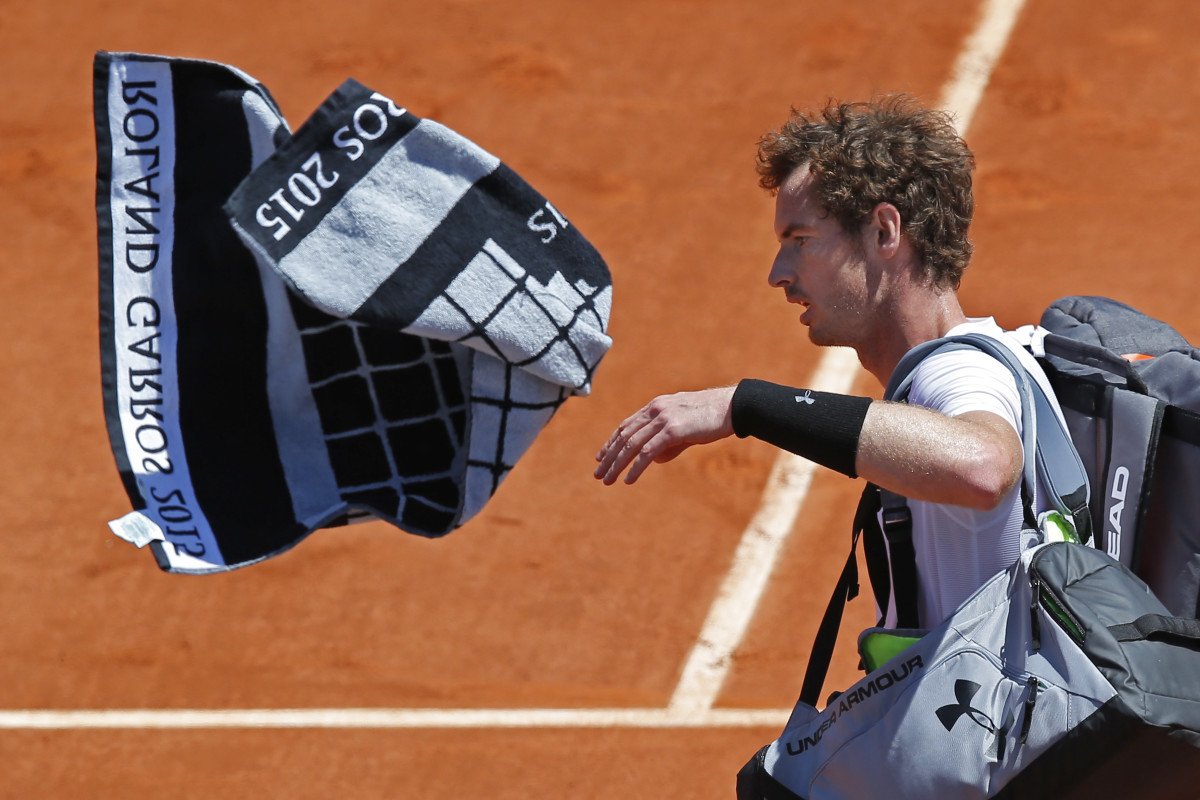
Novak Djokovic
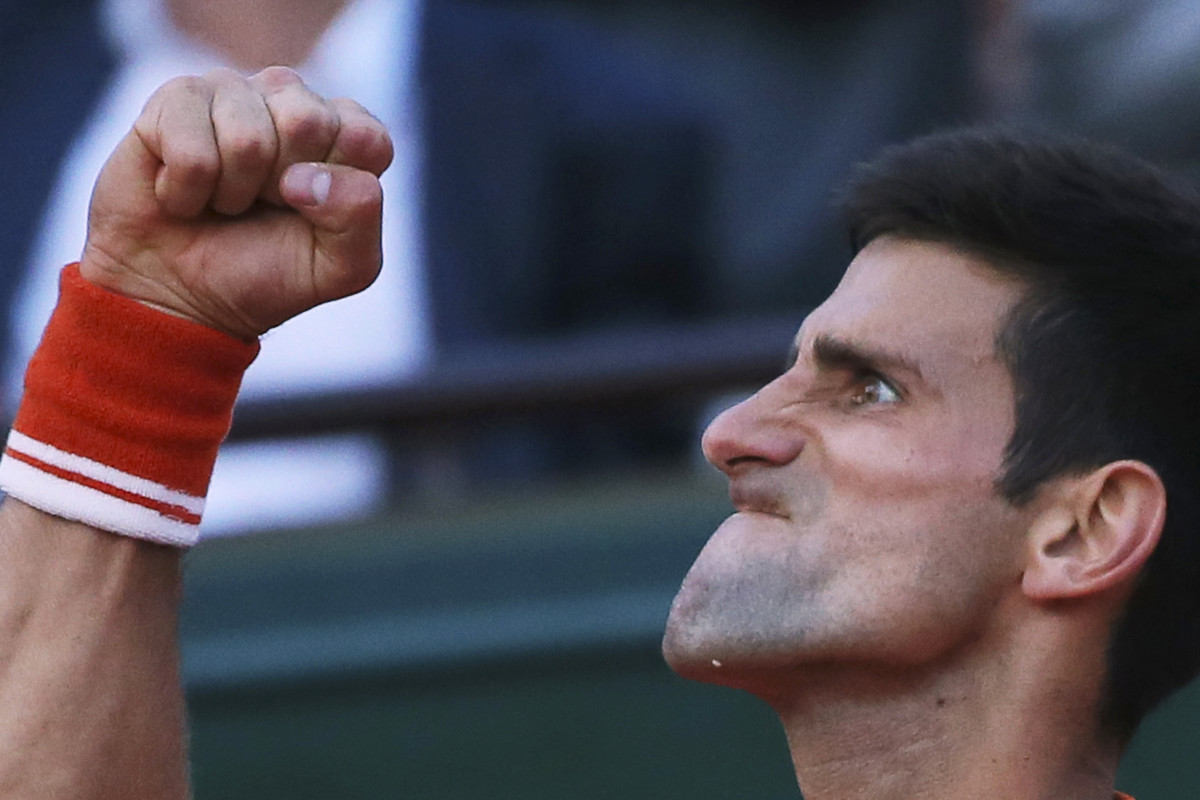
Alize Cornet
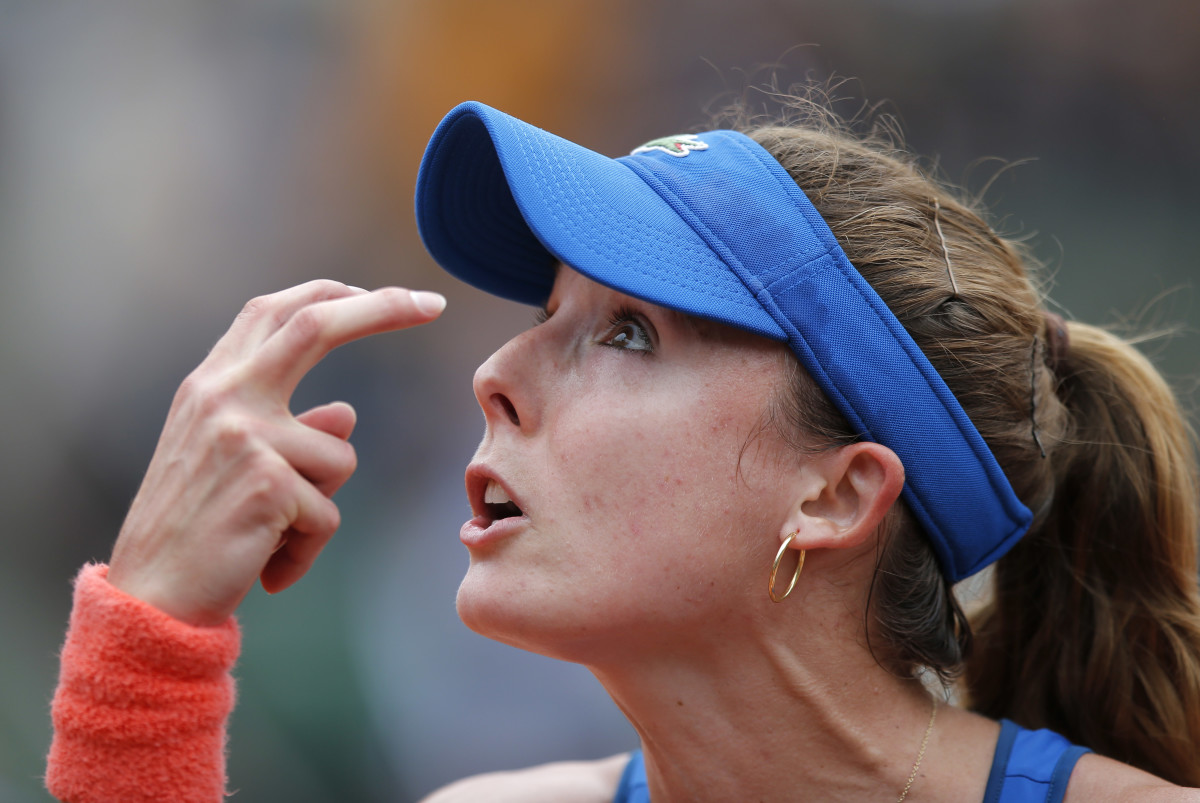
French Open
Rafael Nadal
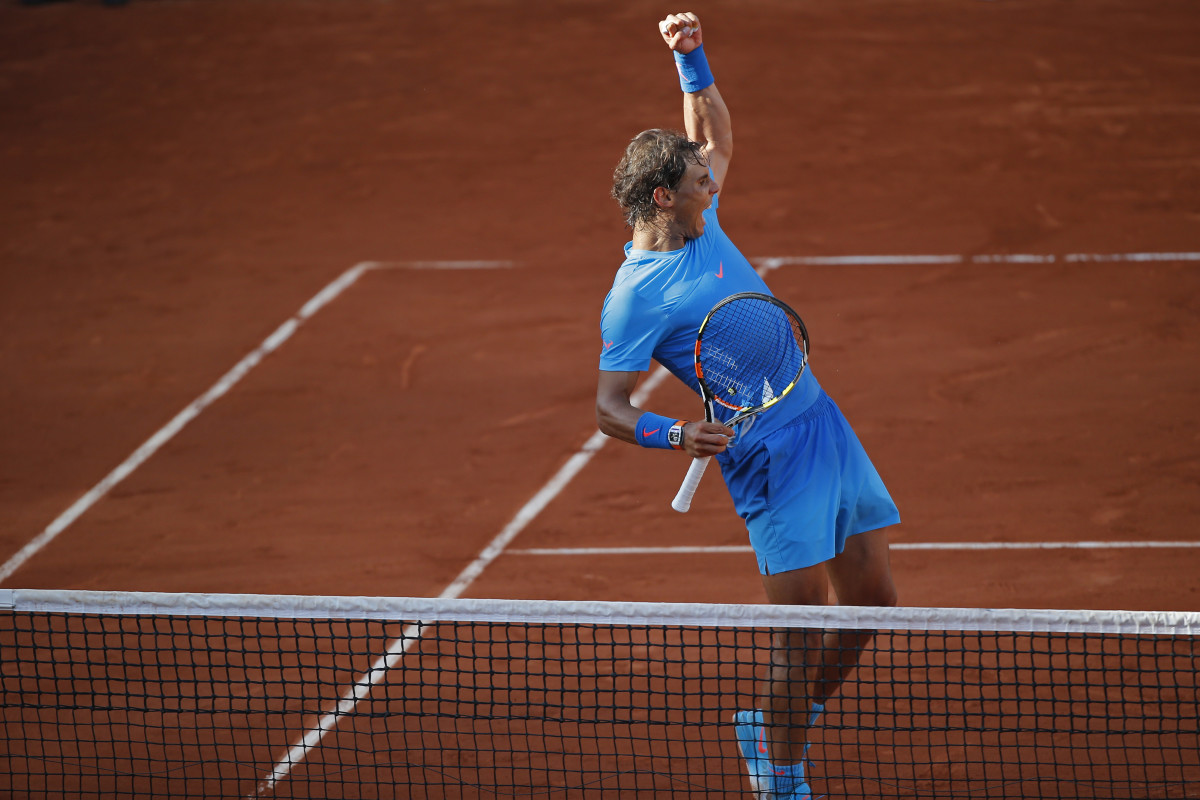
Novak Djokovic
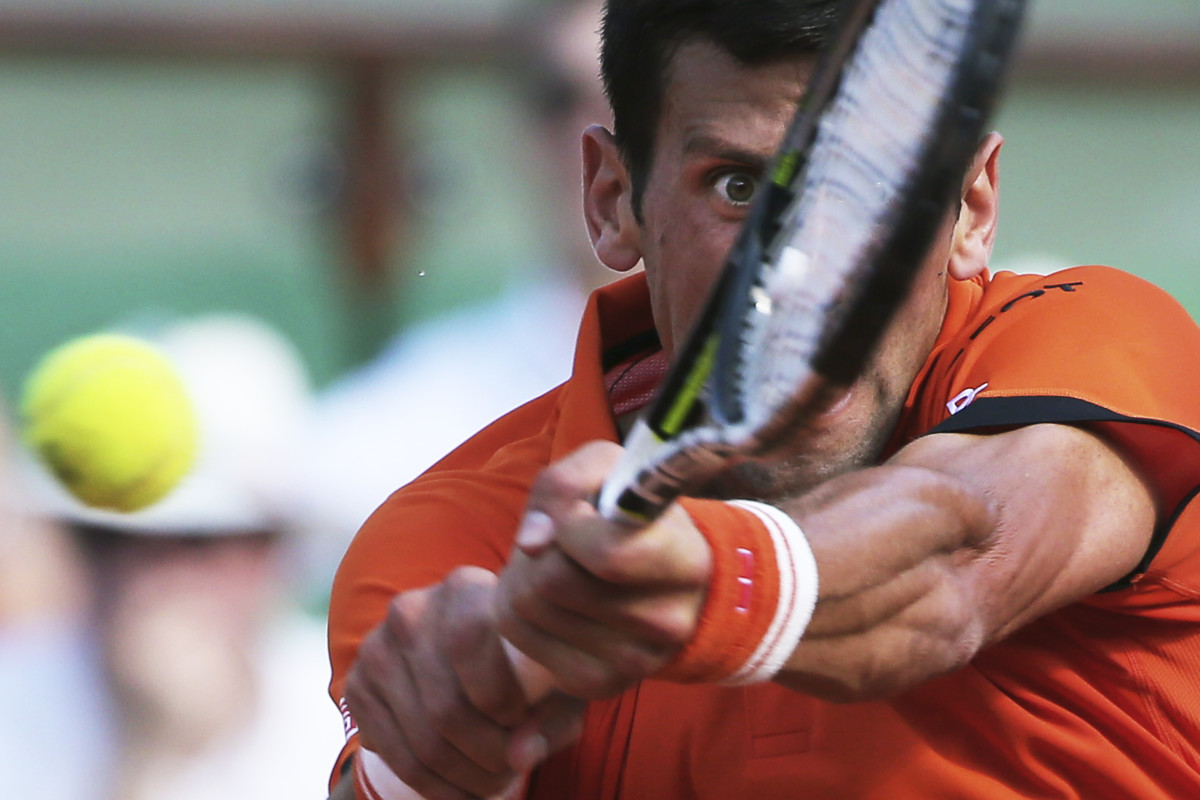
Jo-Wilfried Tsonga
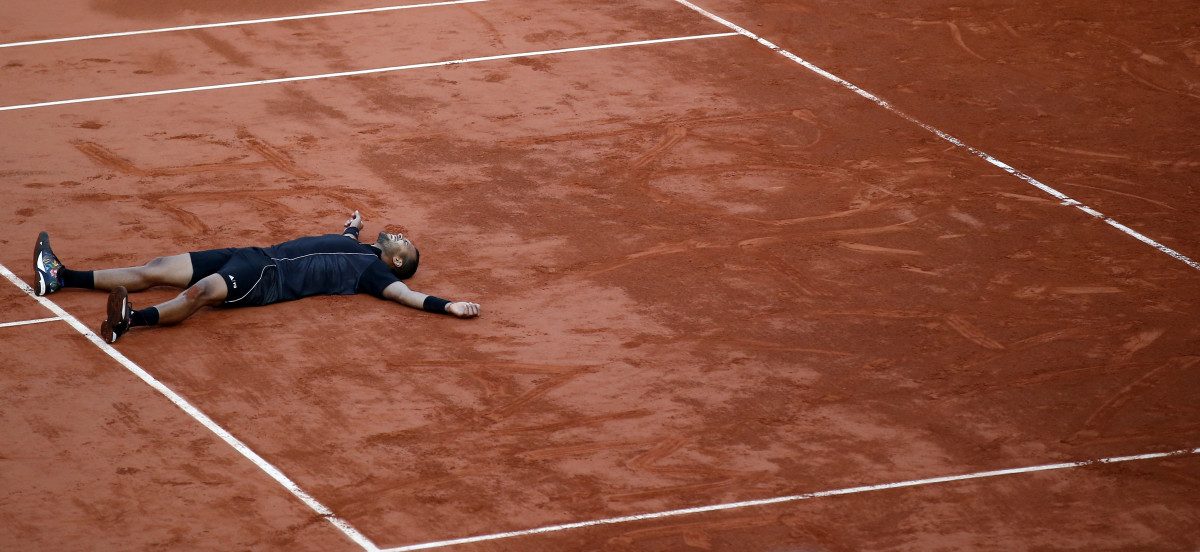
Serena Williams
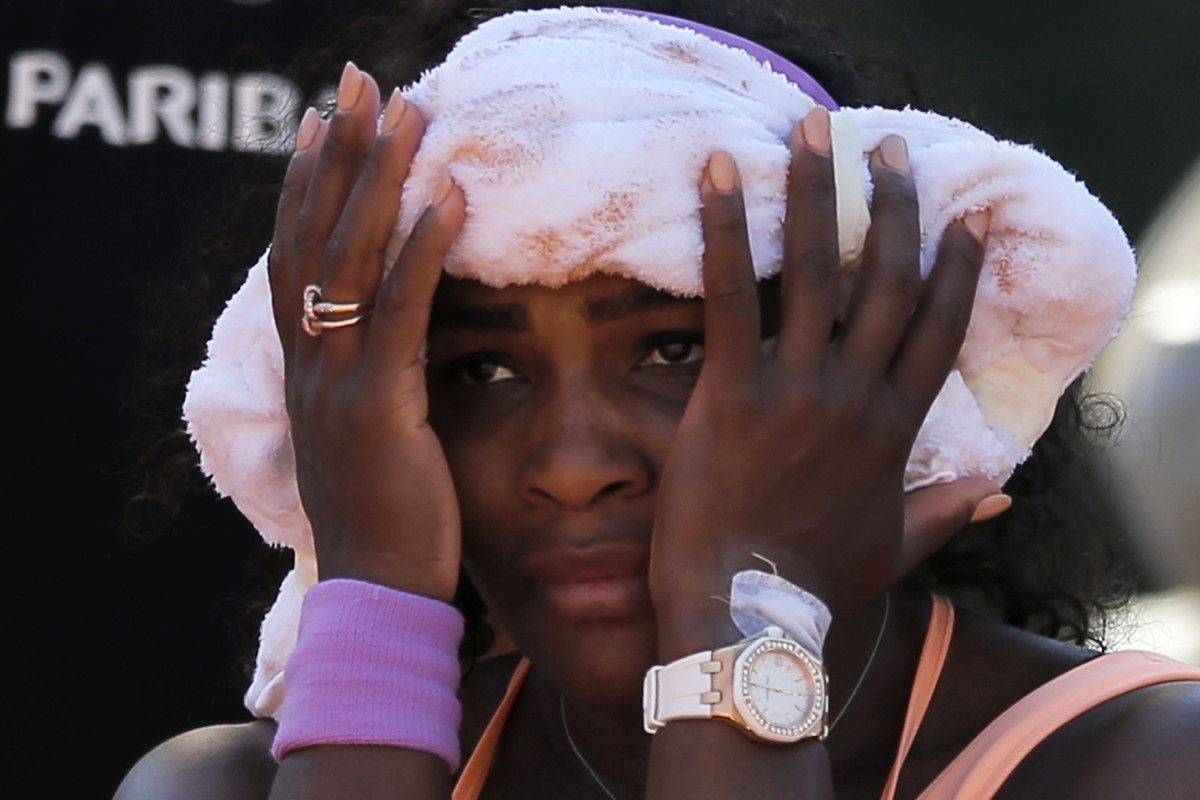
Stan Wawrinka
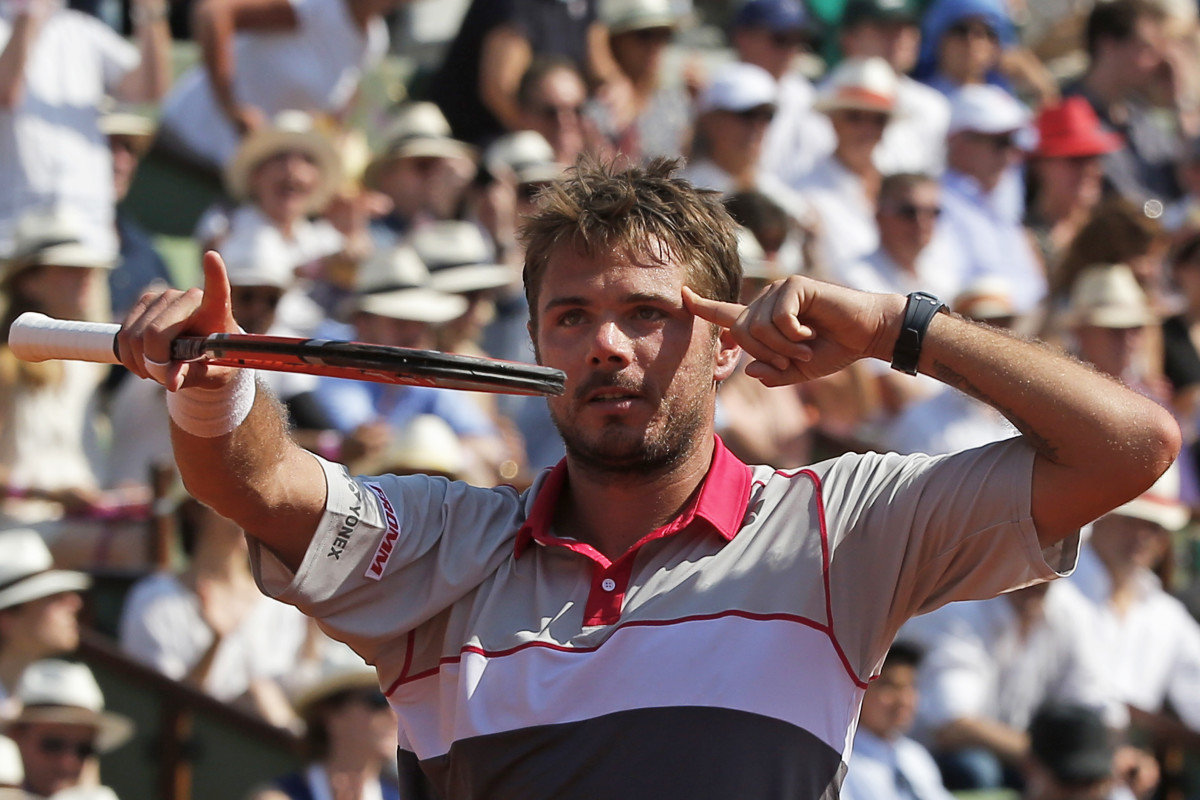
Andy Murray
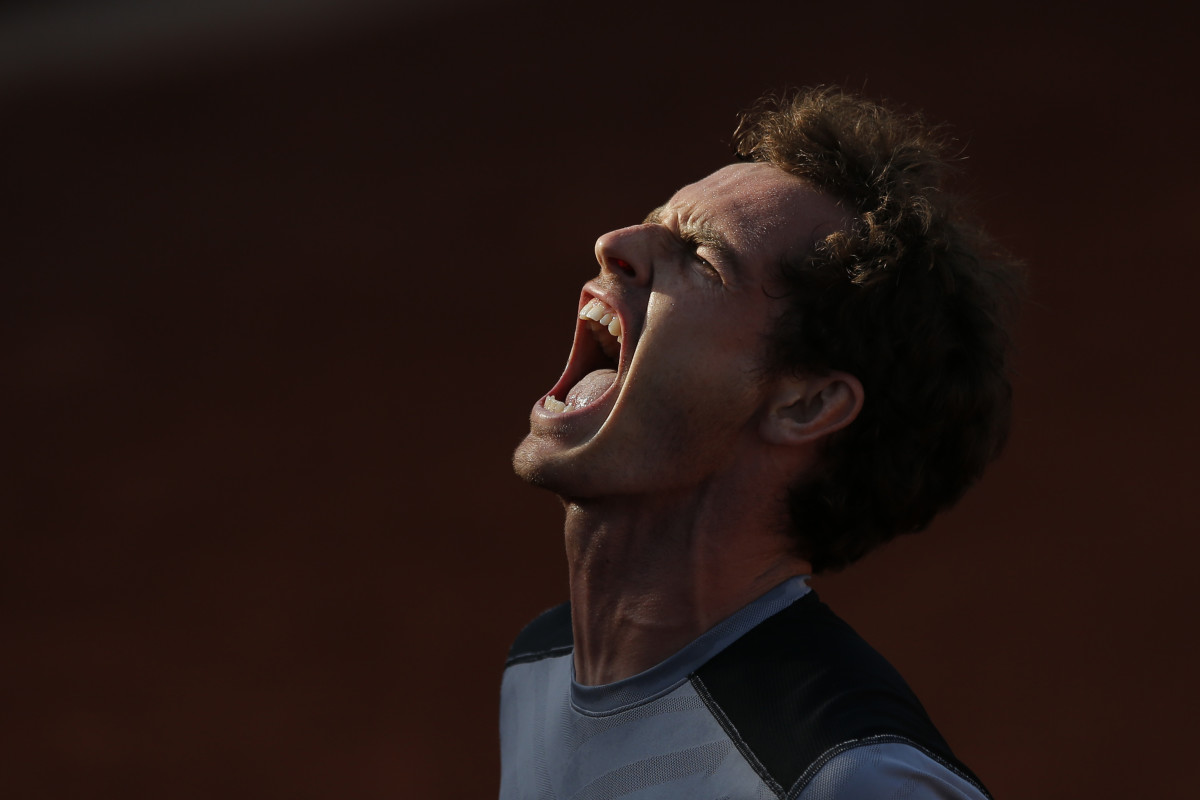
Jo-Wilfried Tsonga
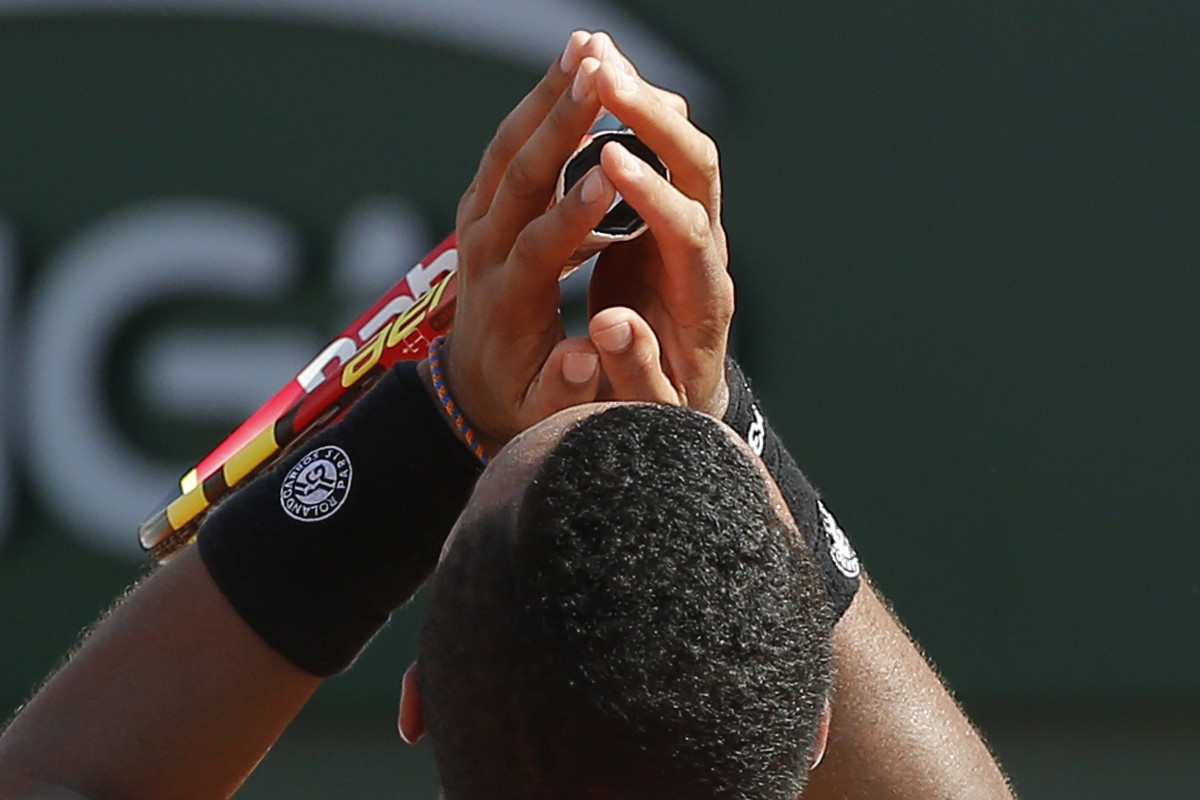
Serena Williams
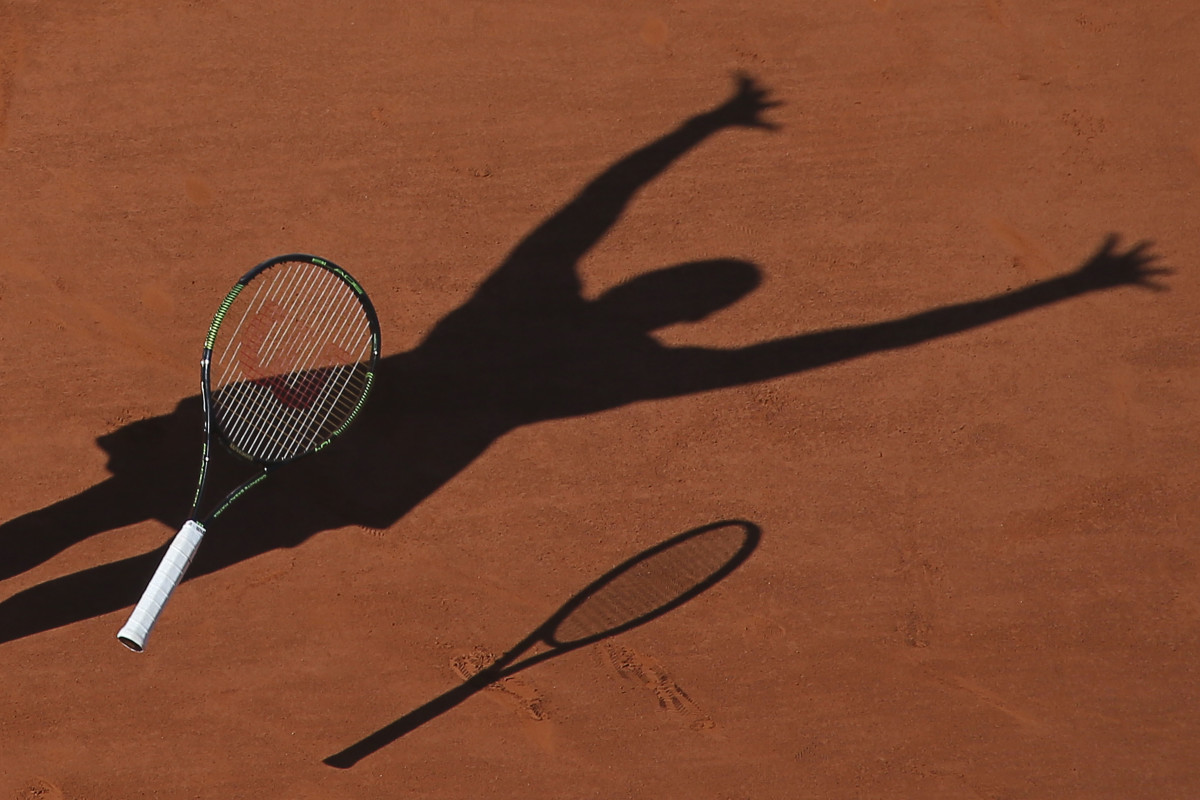
Rafael Nadal
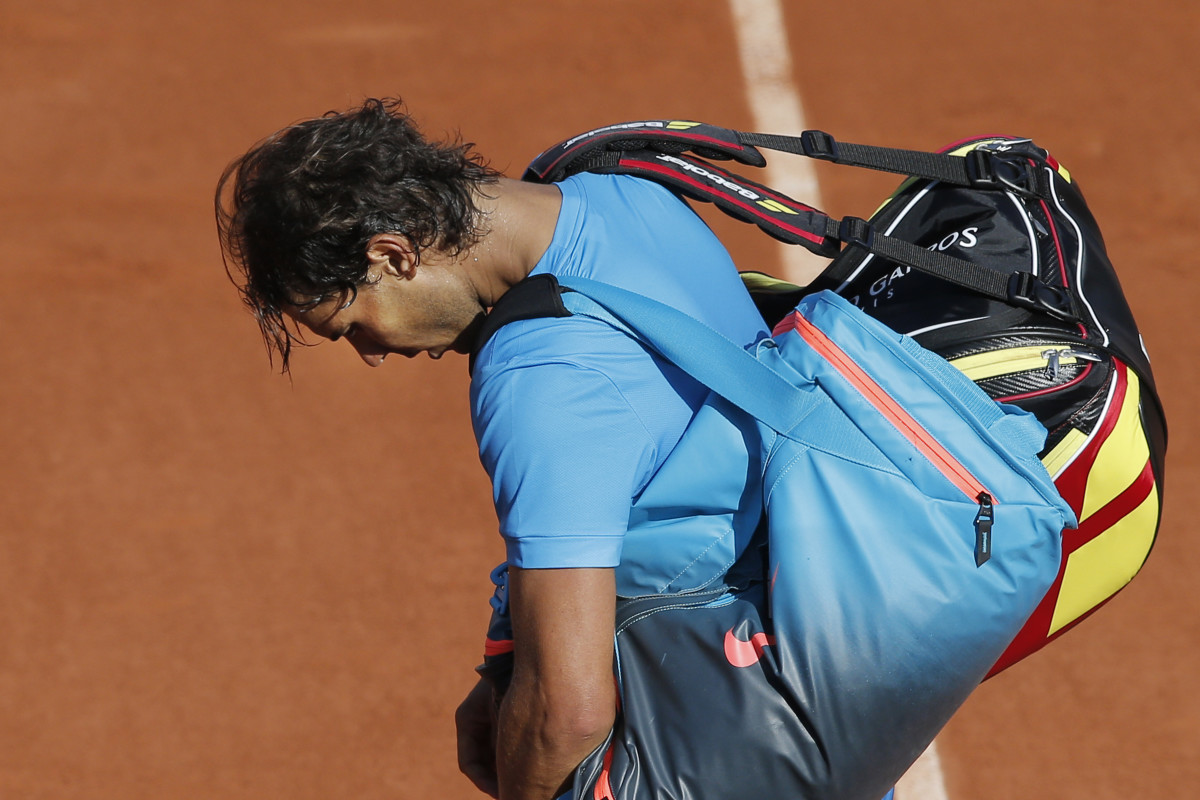
Ana Ivanovic
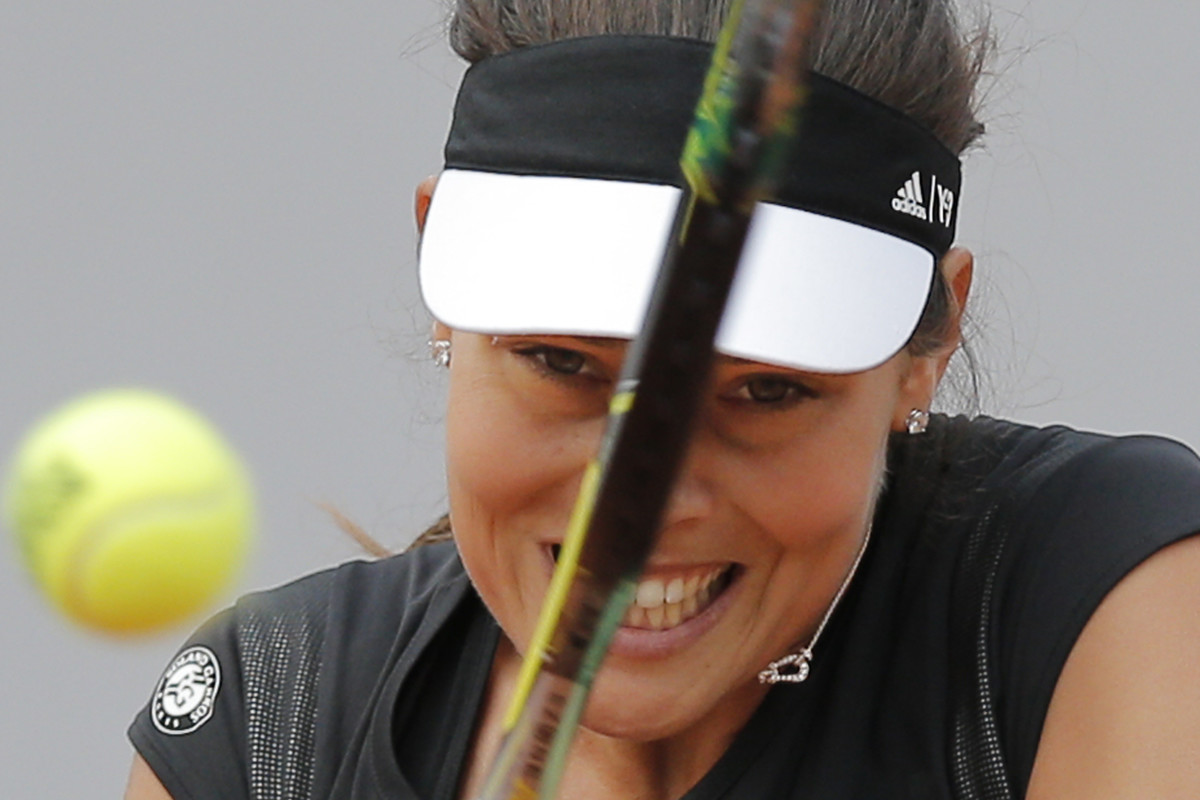
Andy Murray
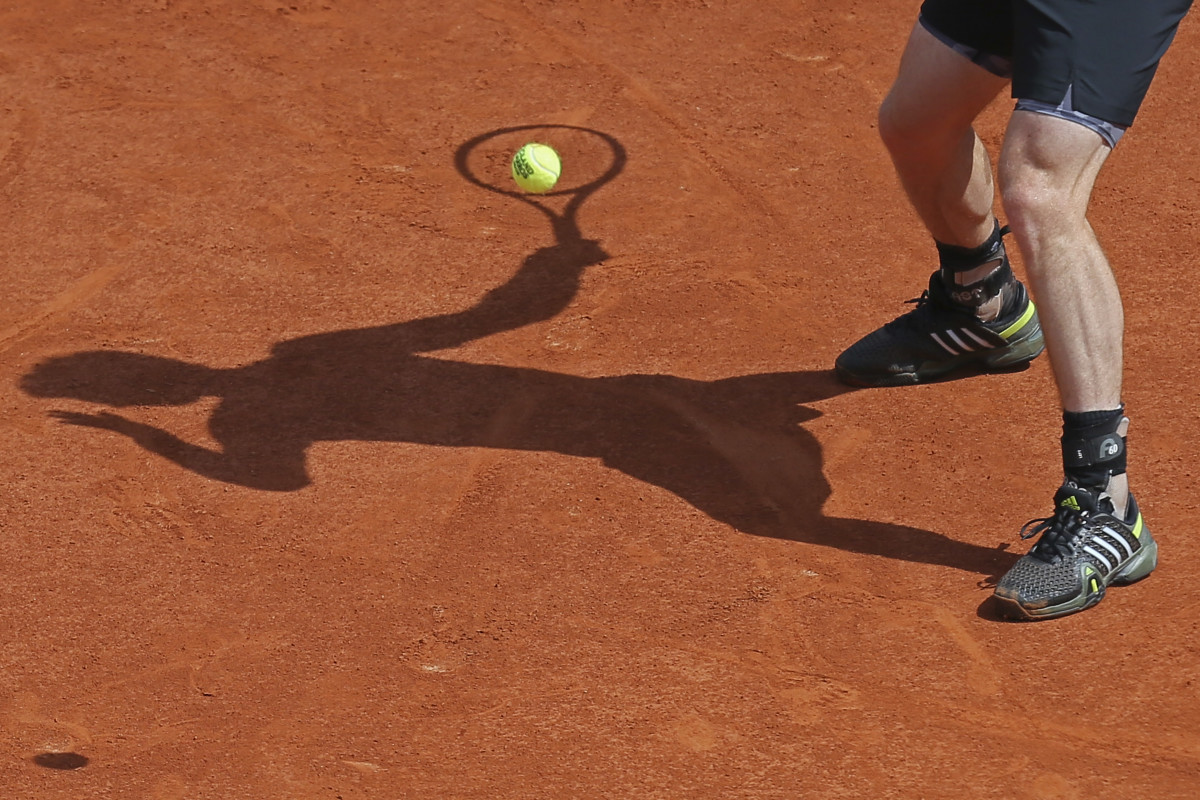
Maria Sharapova
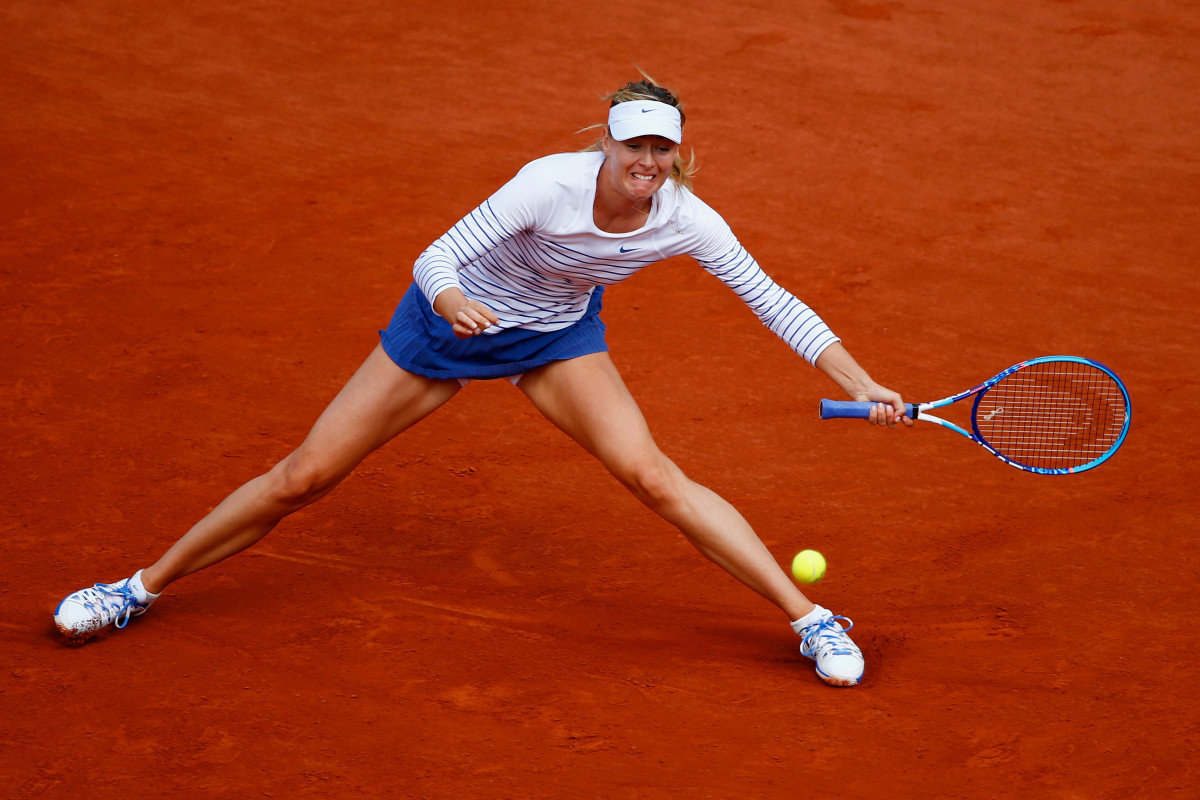
Maria Sharapova
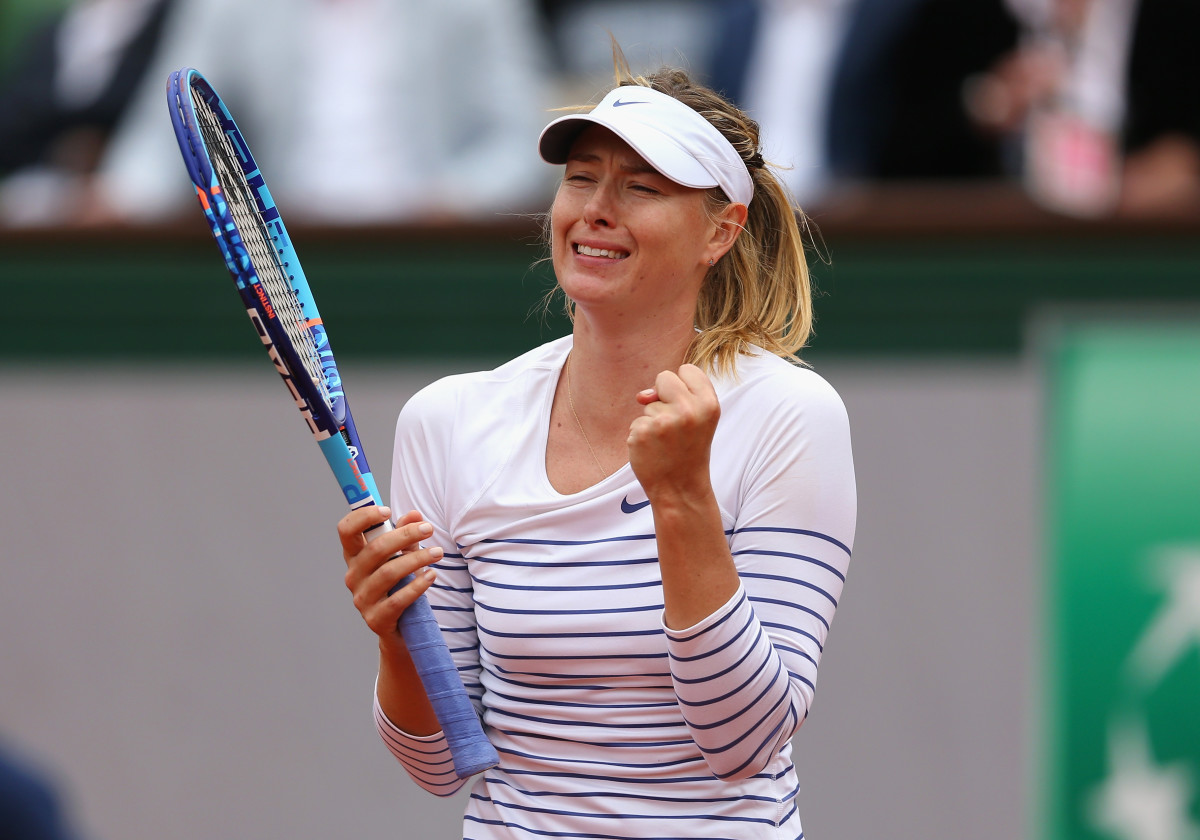
Maria Sharapova
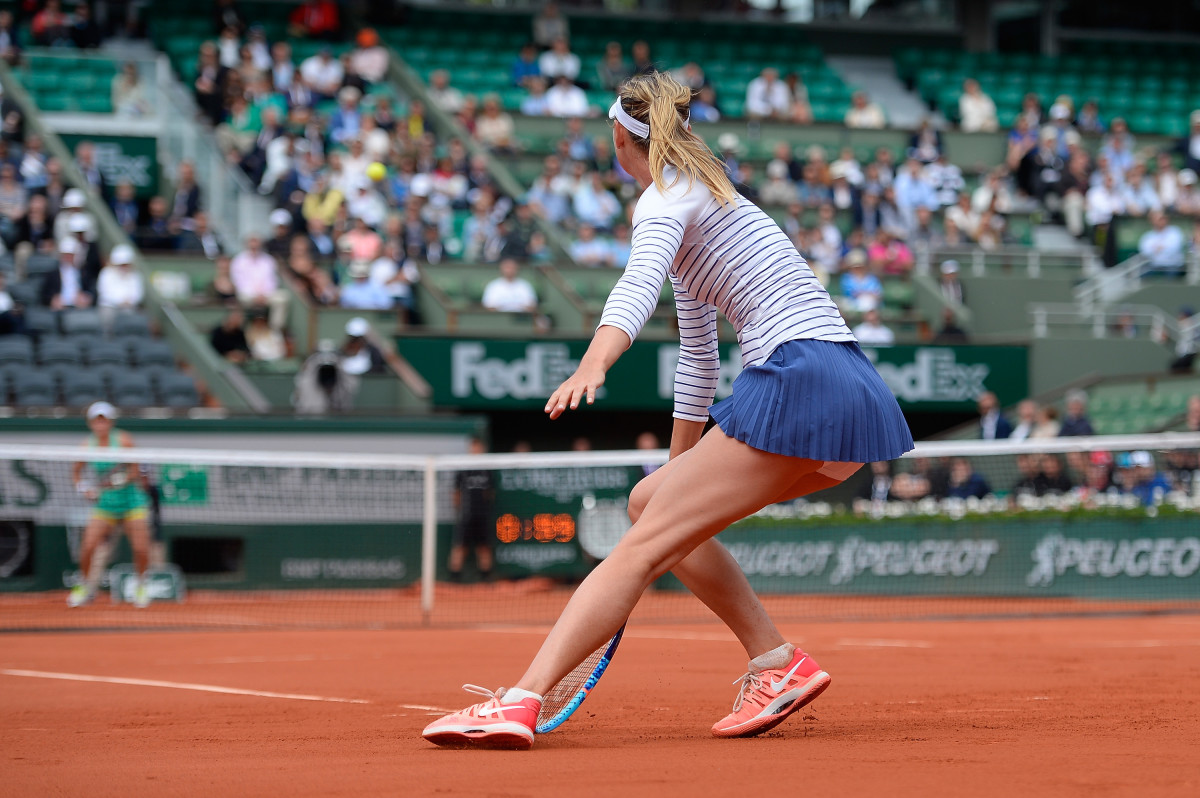
French Open
Serena Williams
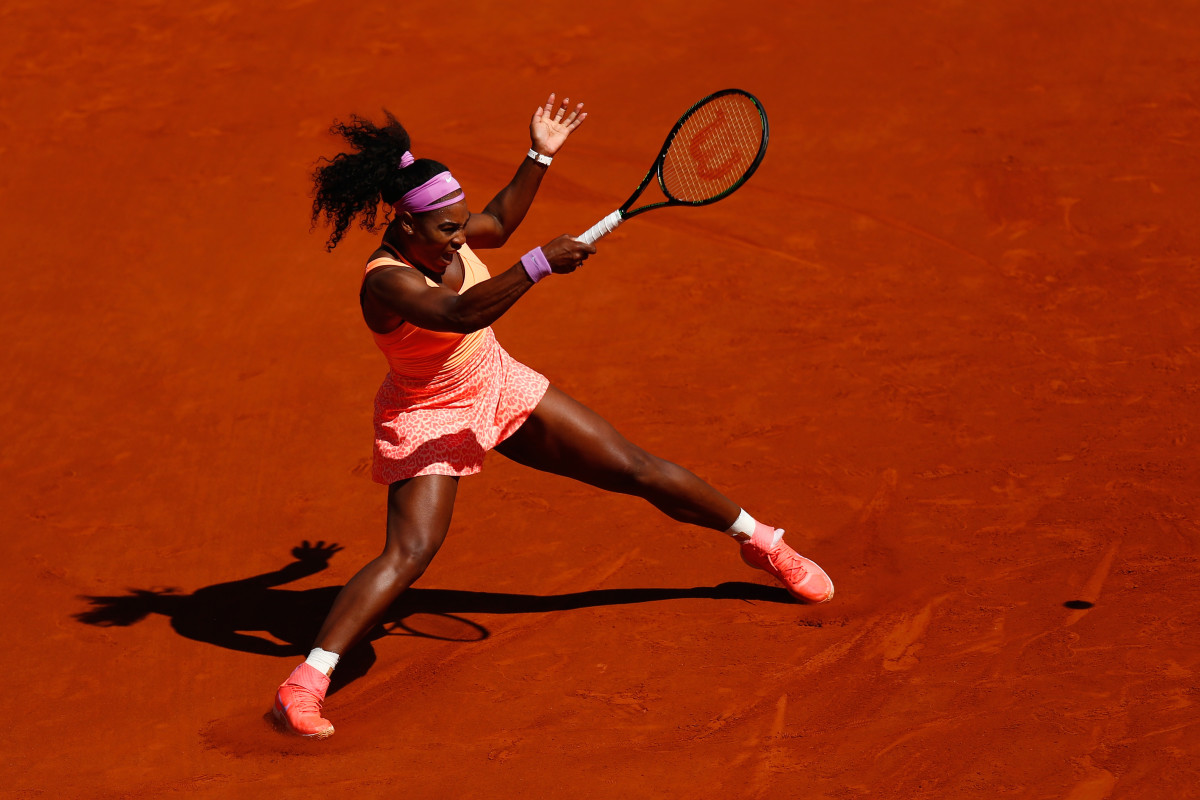
Mike Bryan
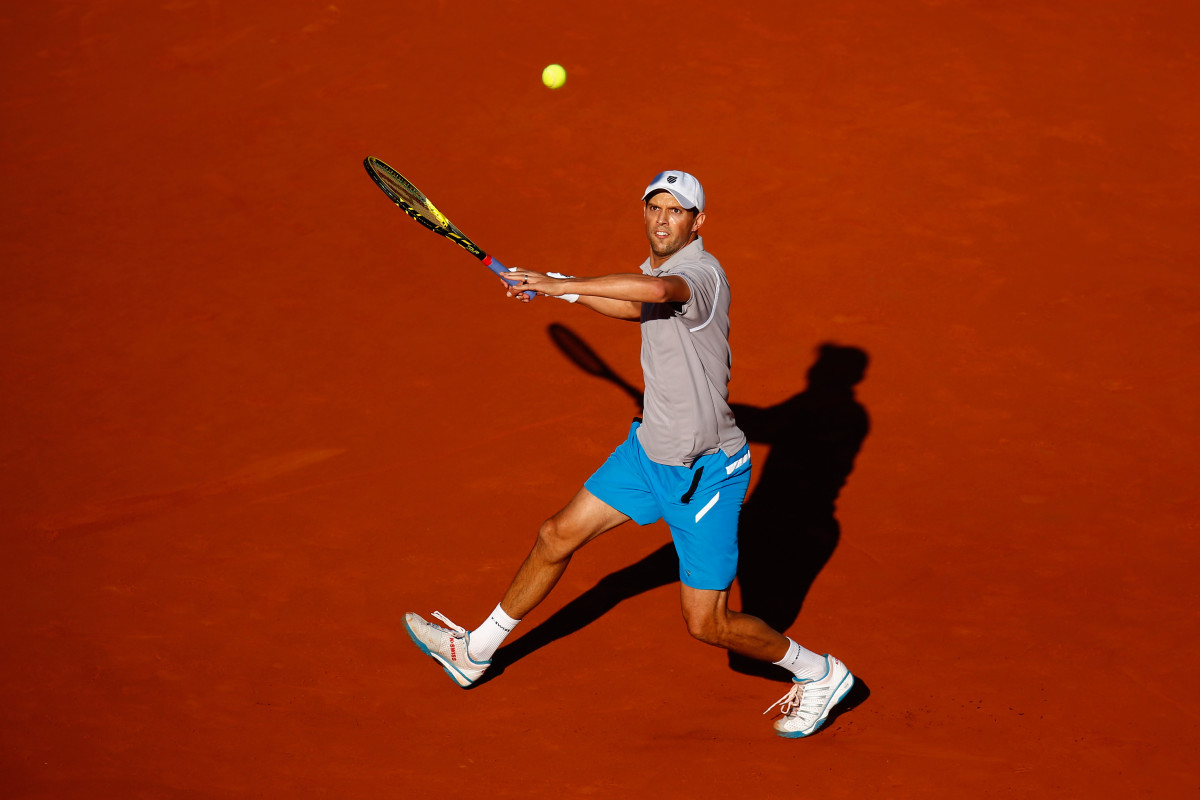
Jean Gachassin, Martina Navratilova, Serena Williams
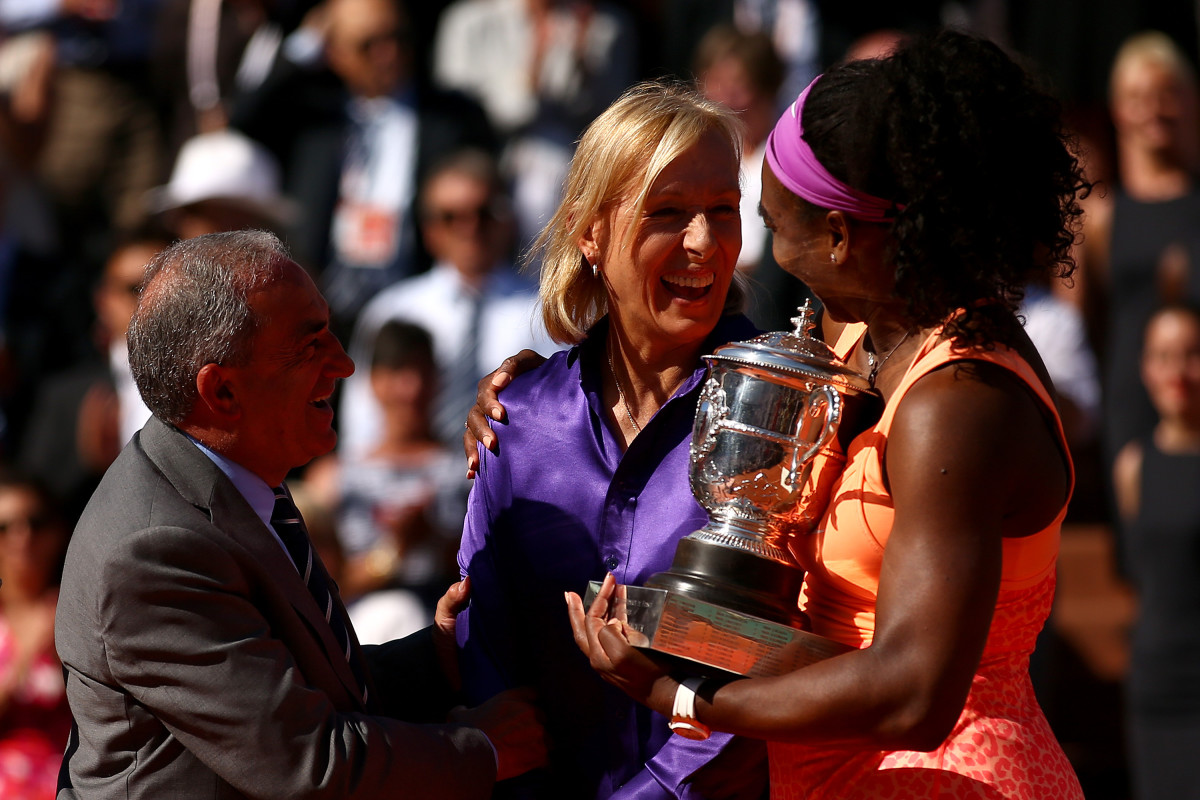
Serena Williams
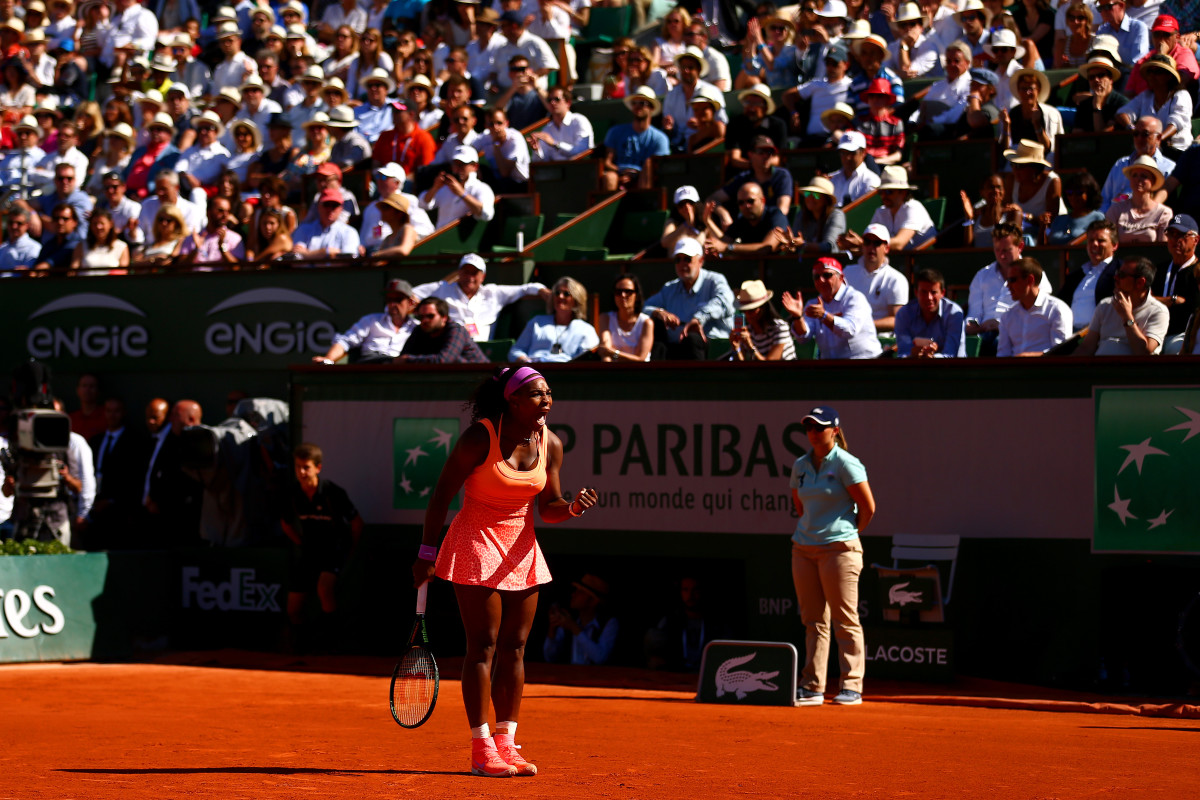
Serena Williams
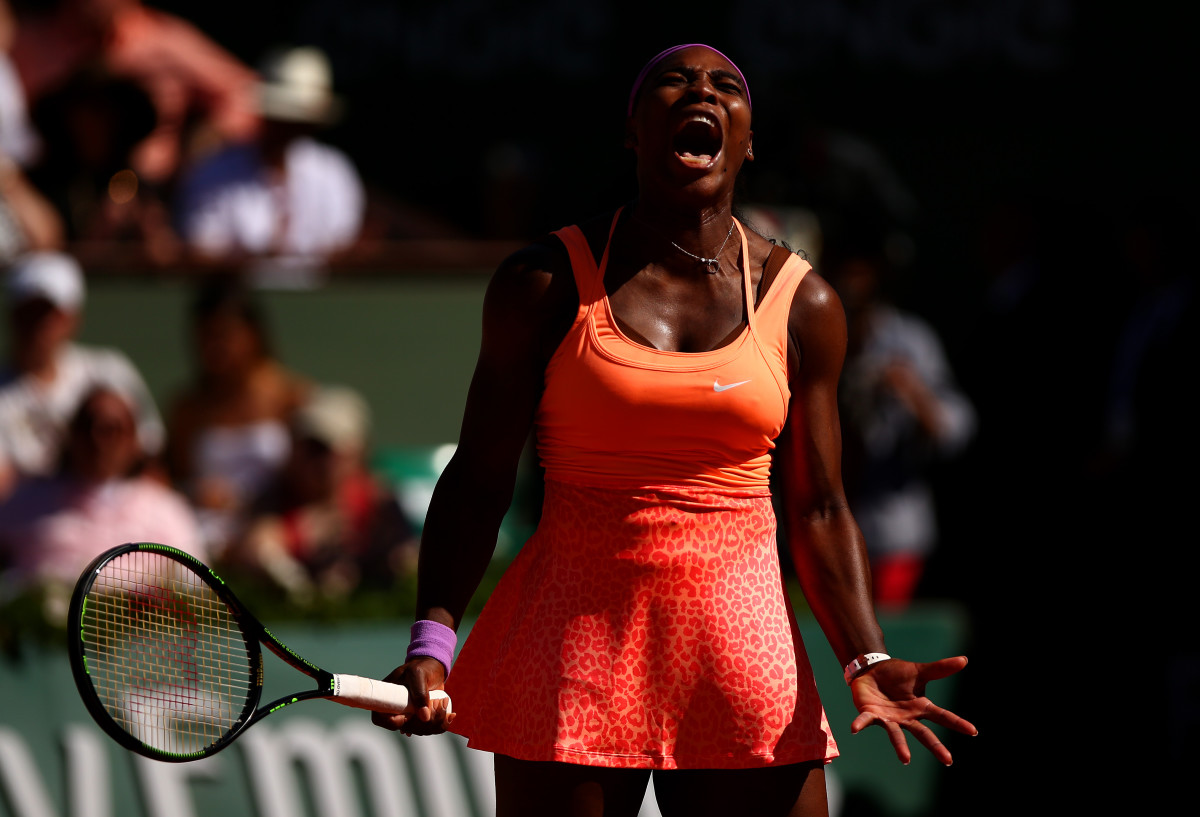
Stan Wawrinka
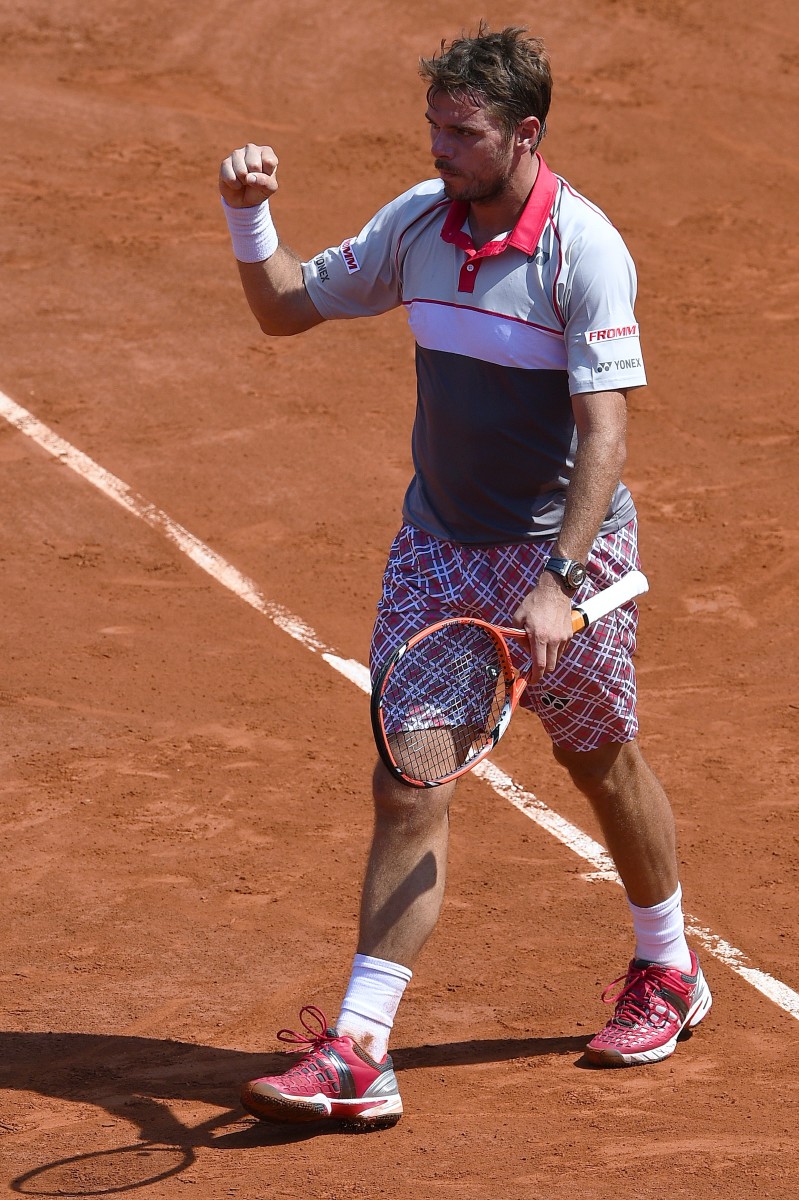
Shingo Kunieda and Gordon Reid
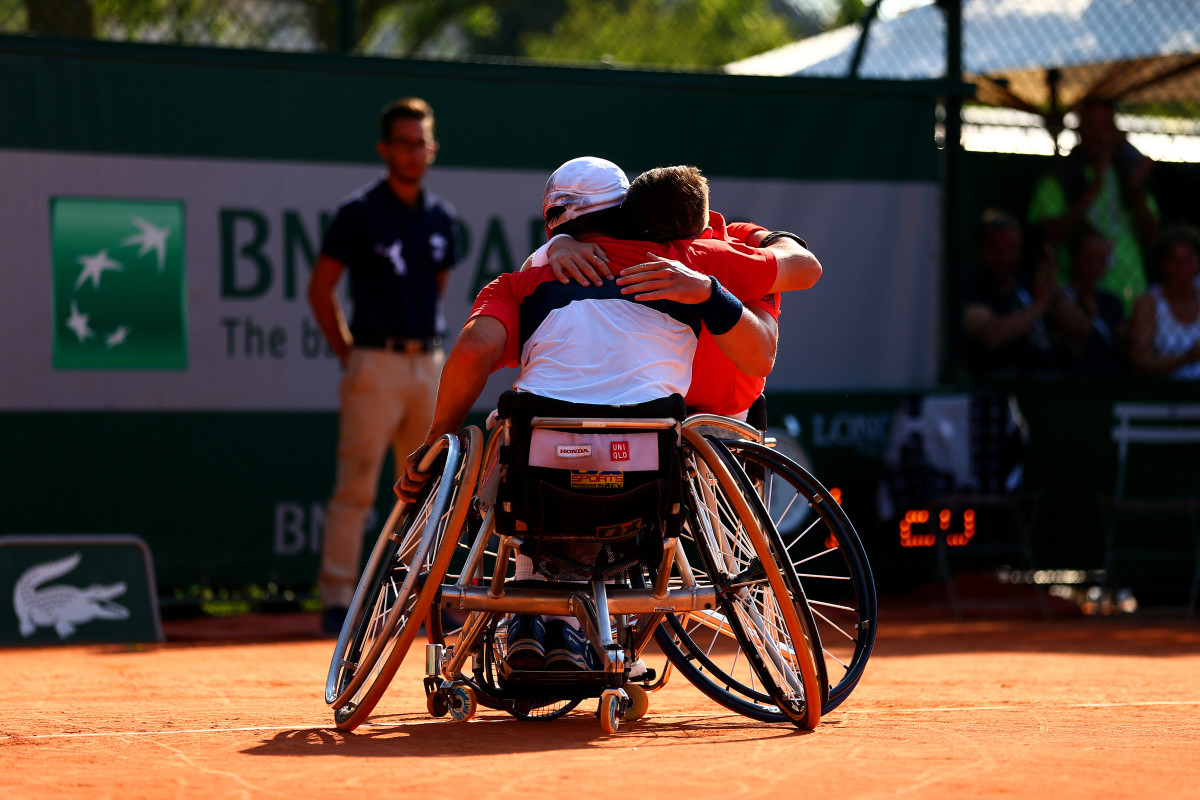
Taylor Harry Fritz and Tommy Paul
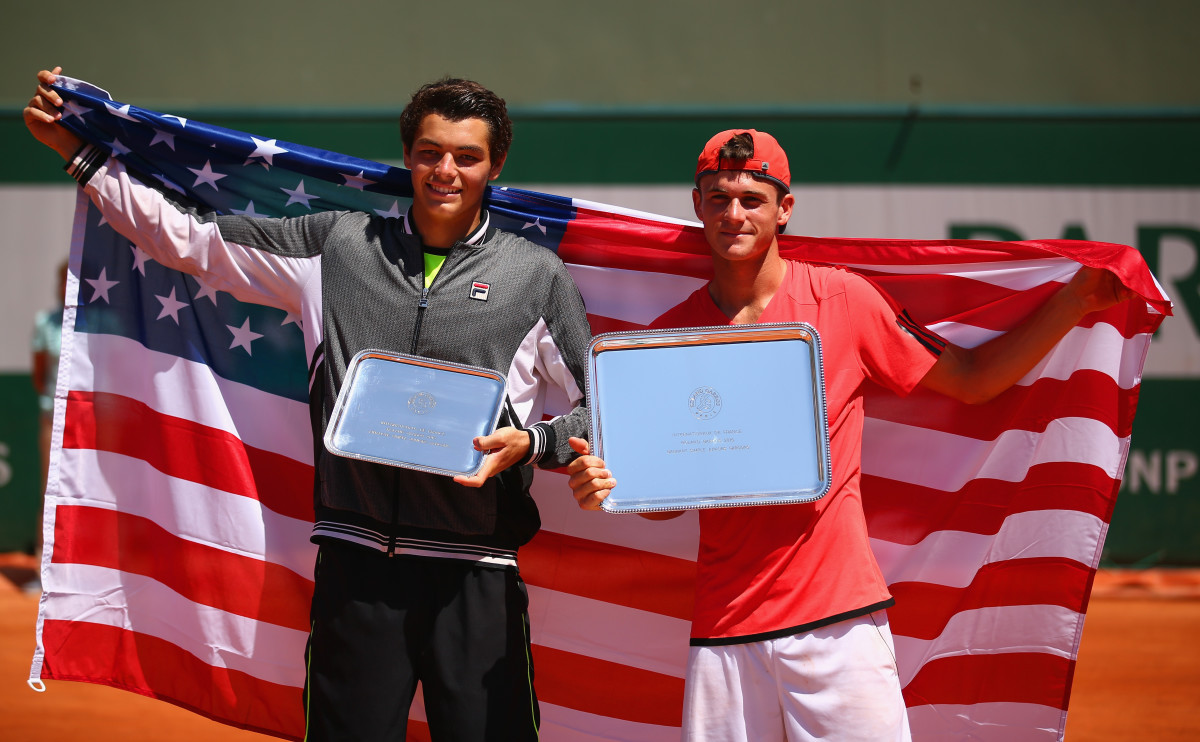
French Open
Andy Murray
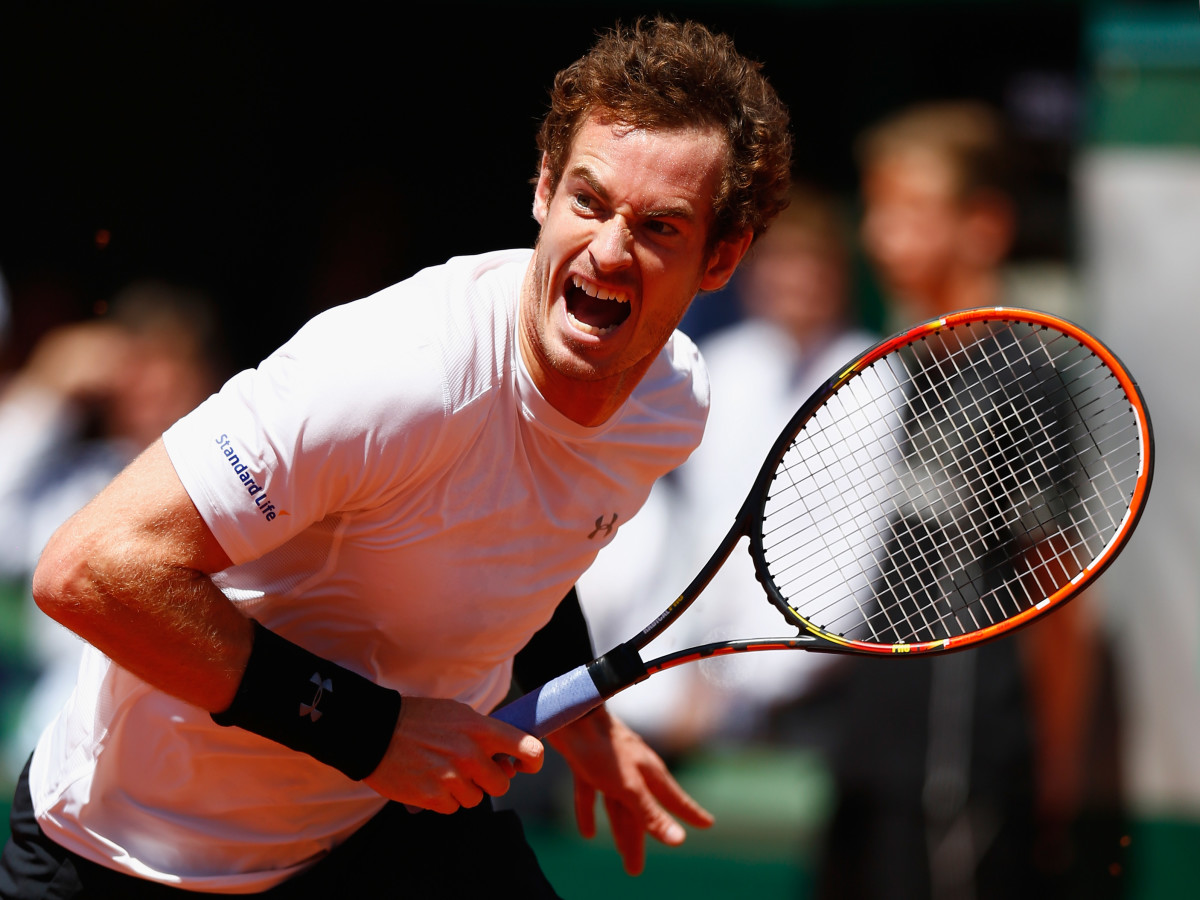
Serena Williams
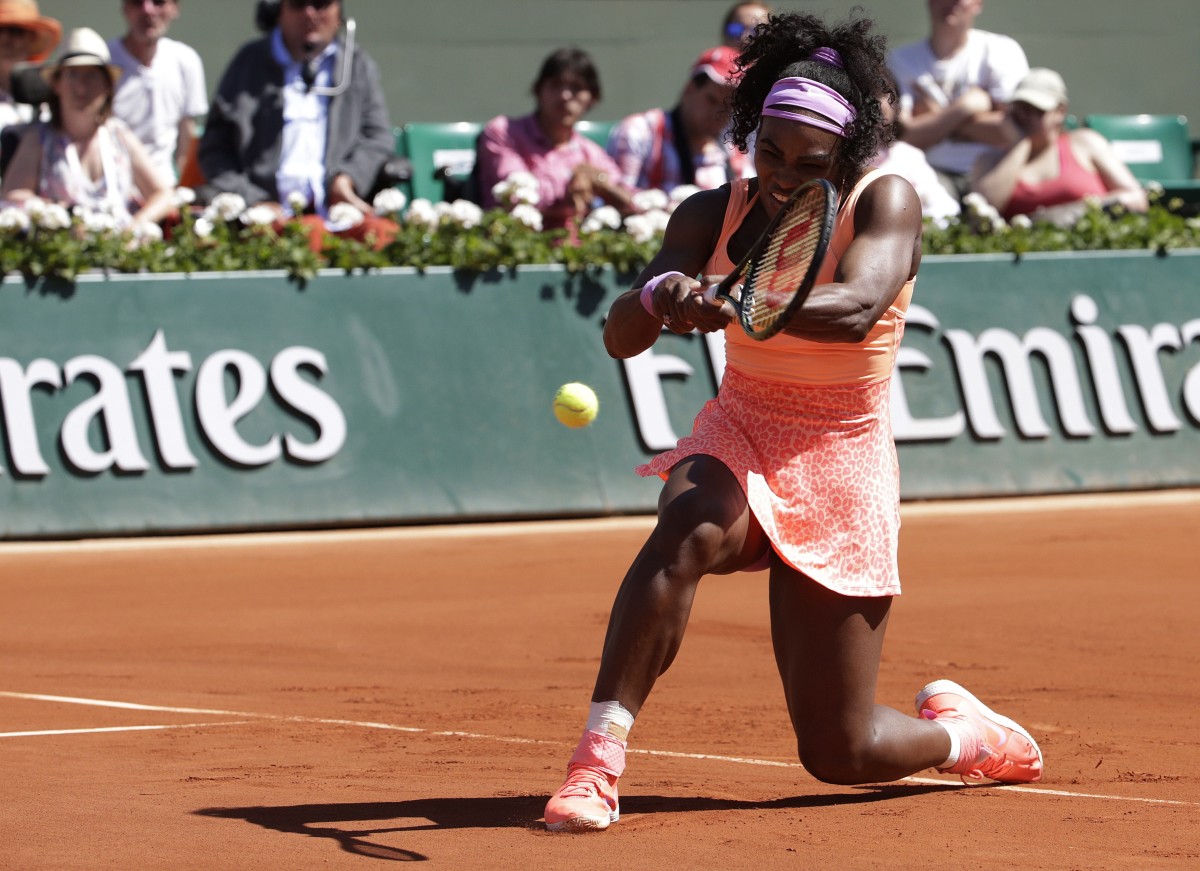
Lucie Safarova
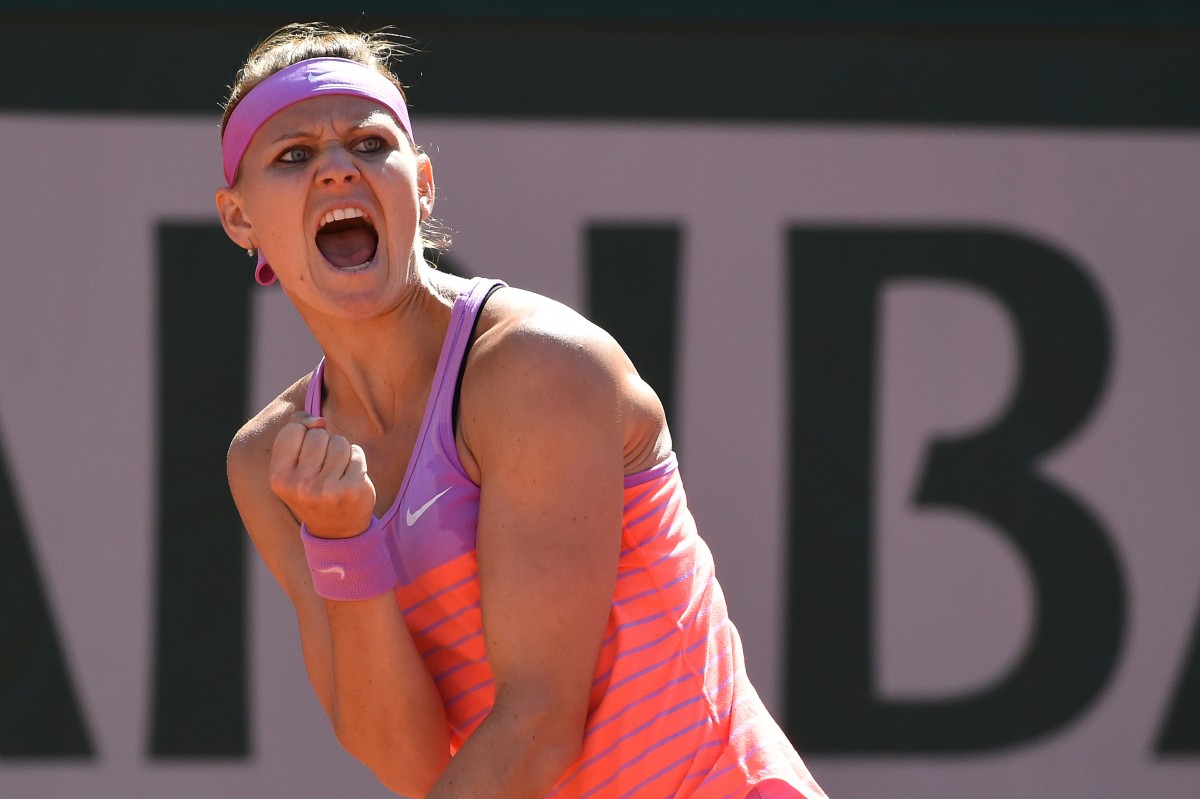
Serena Williams
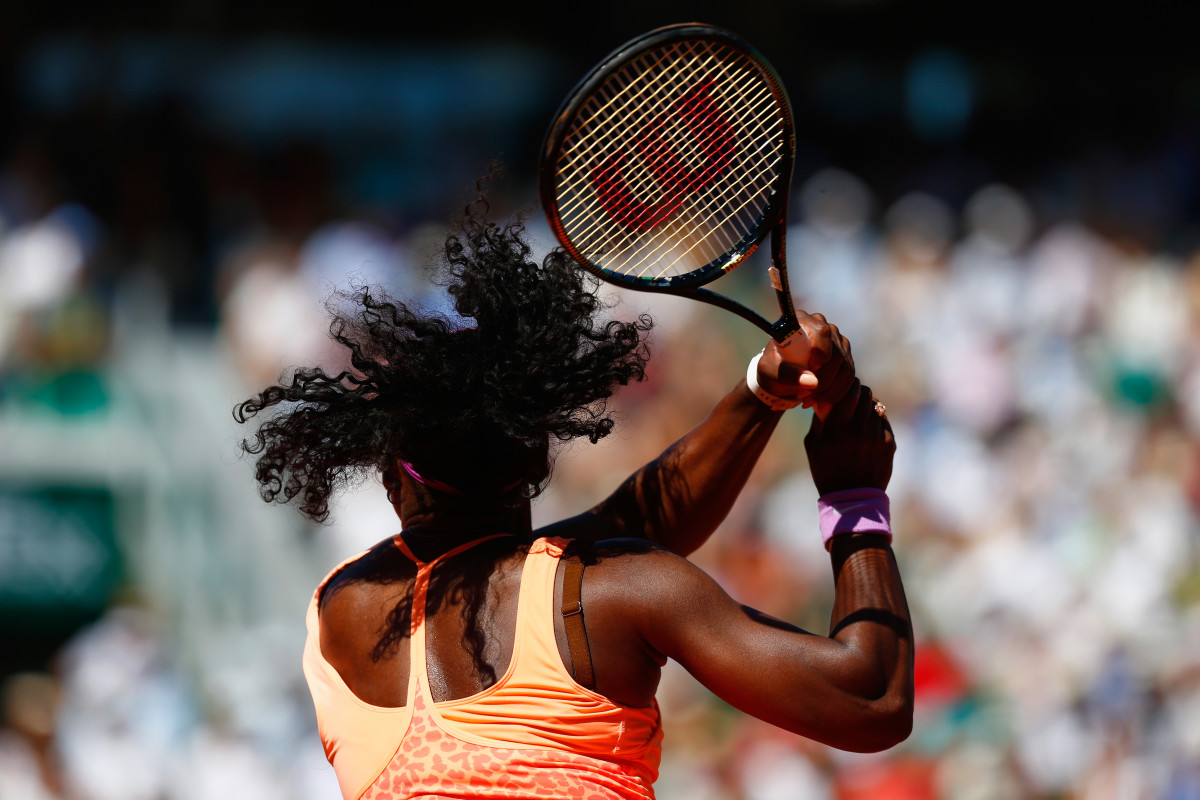
Serena Williams
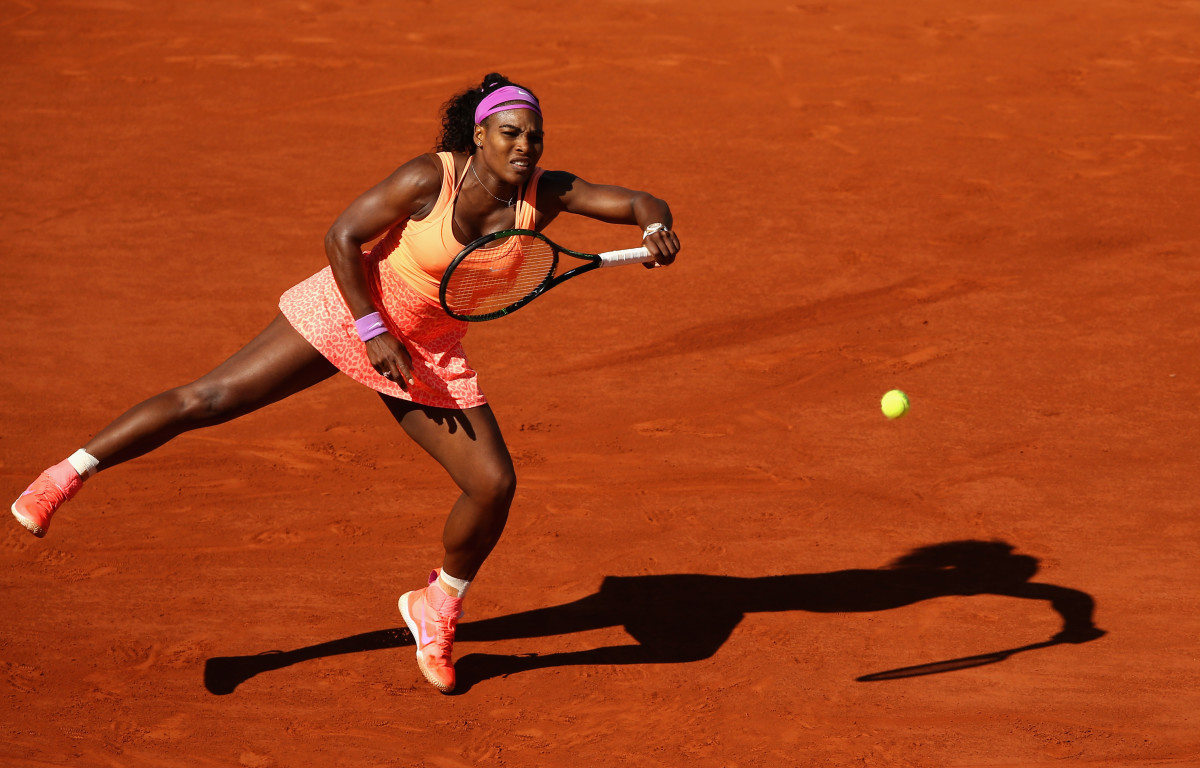
Serena Williams
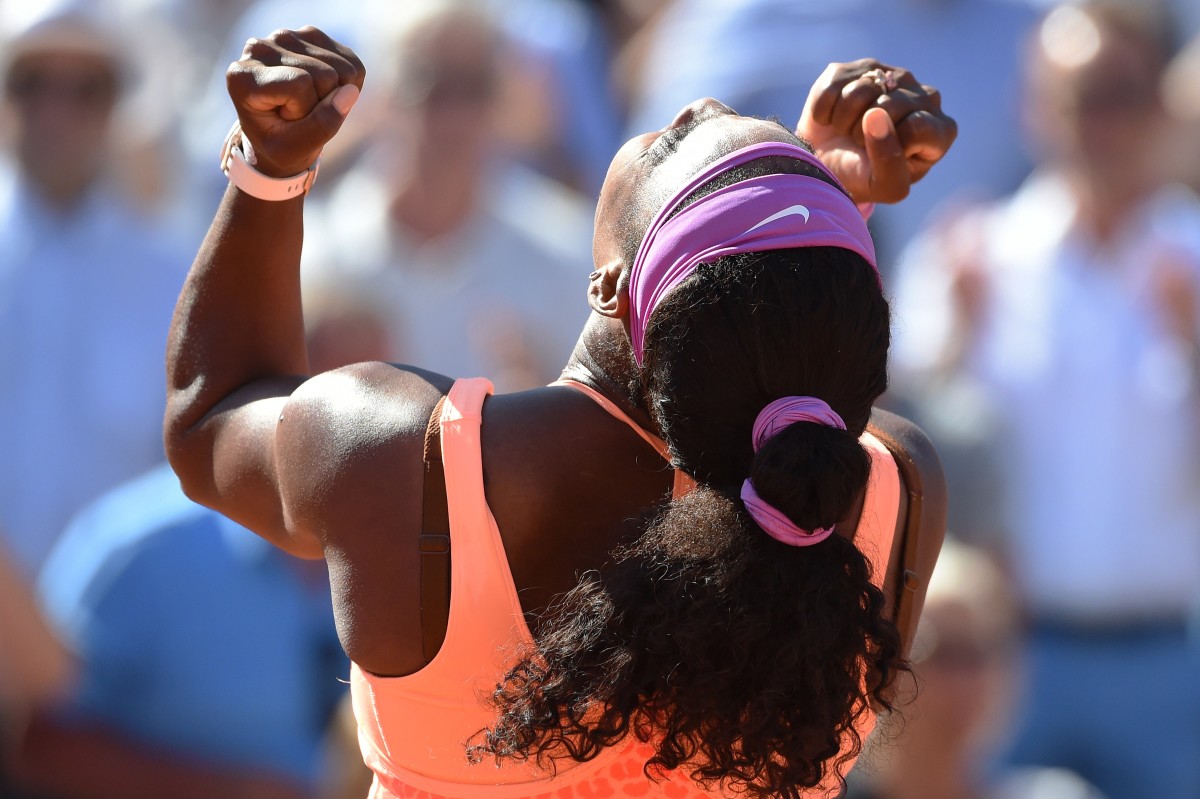
Novak Djokovic
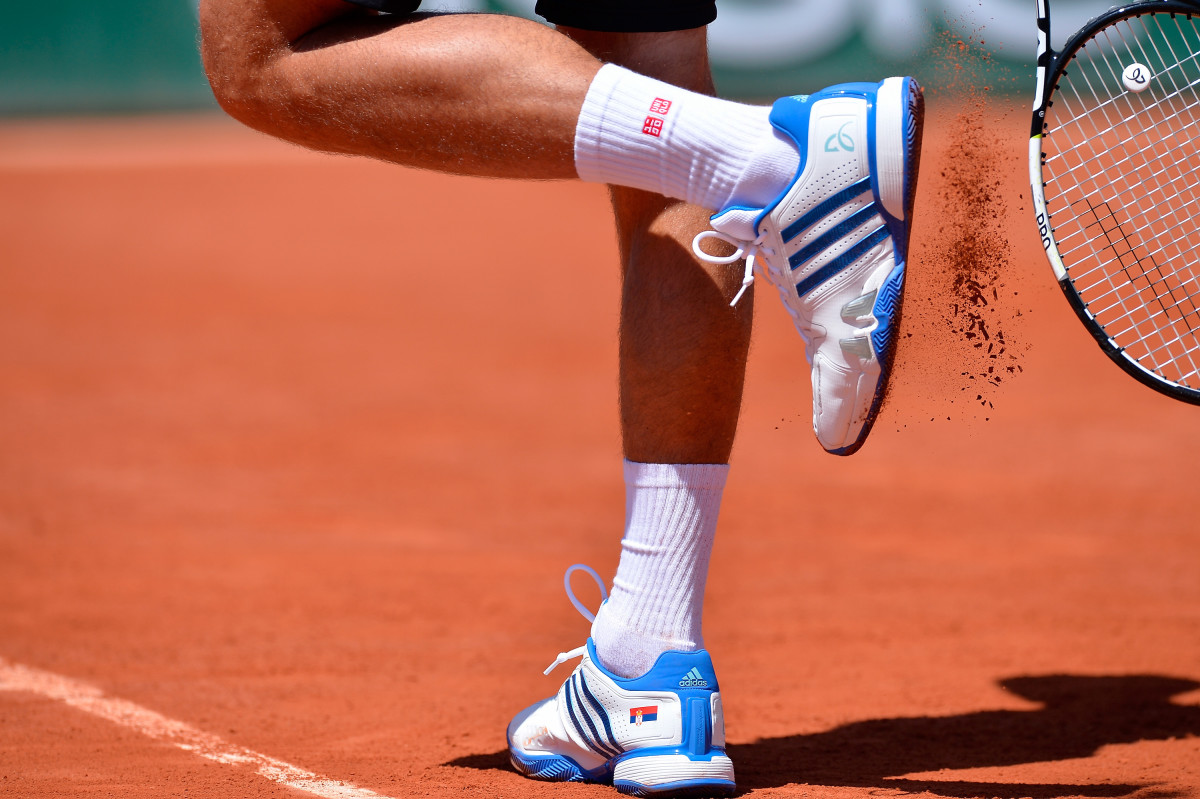
Novak Djokovic
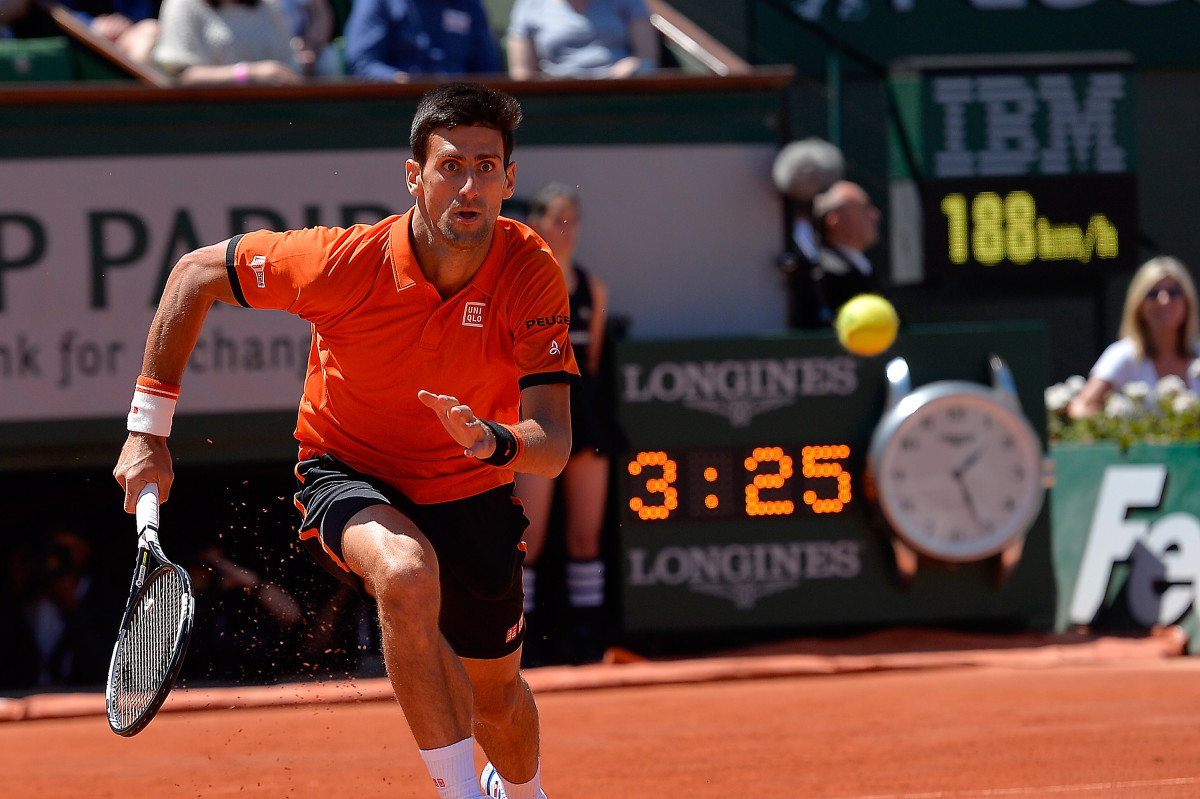
Serena Williams
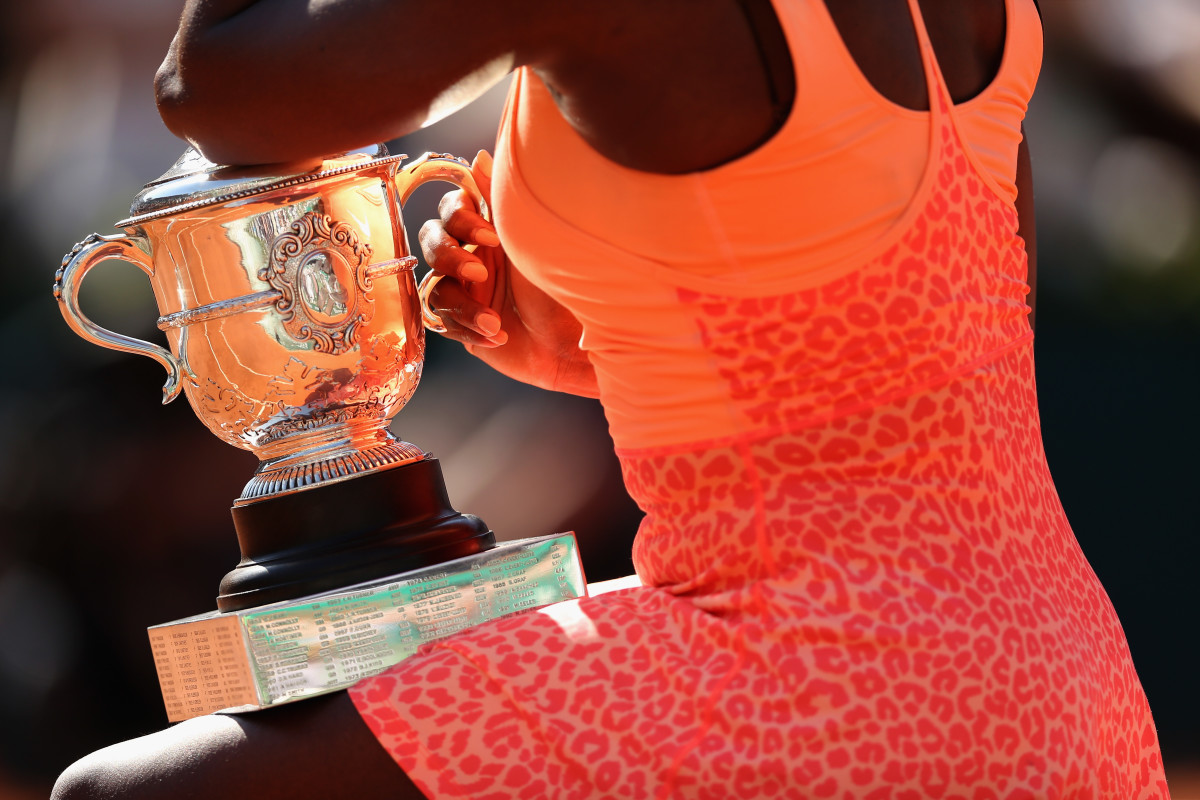
Serena Williams
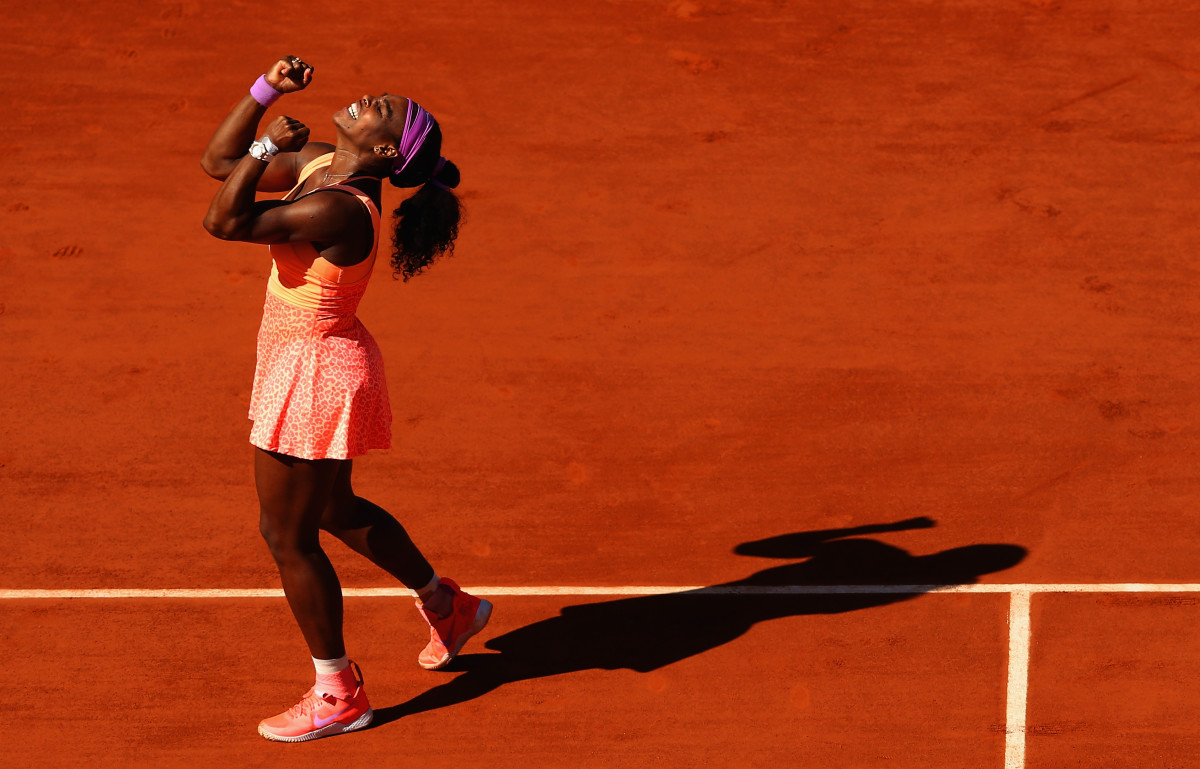
Serena Williams
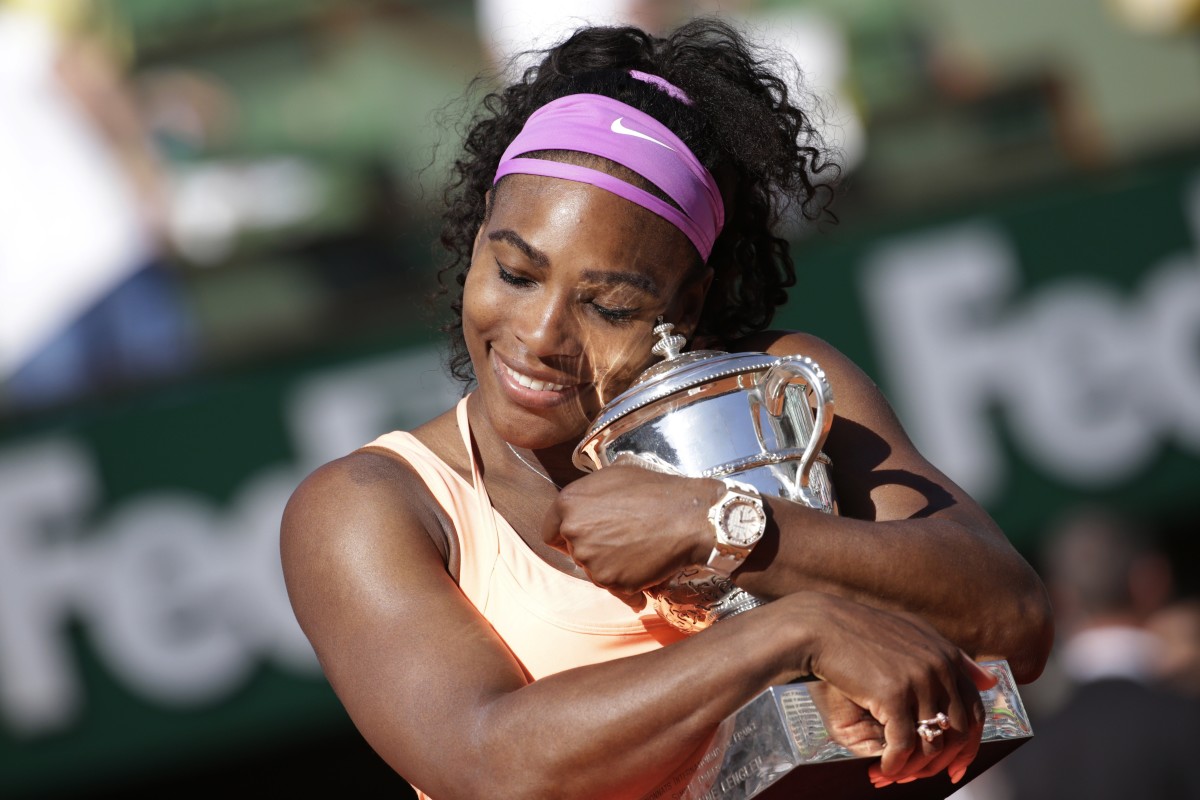
Lucie Safarova and Serena Williams
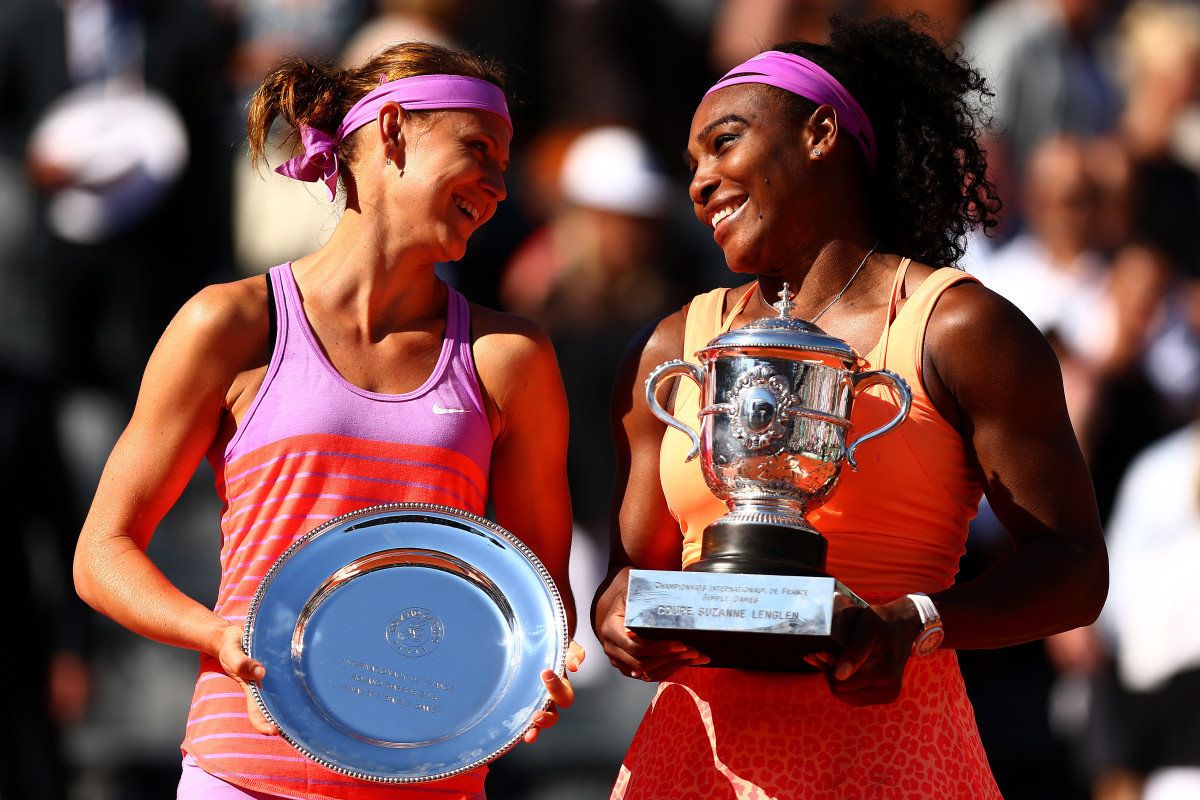
Serena Williams
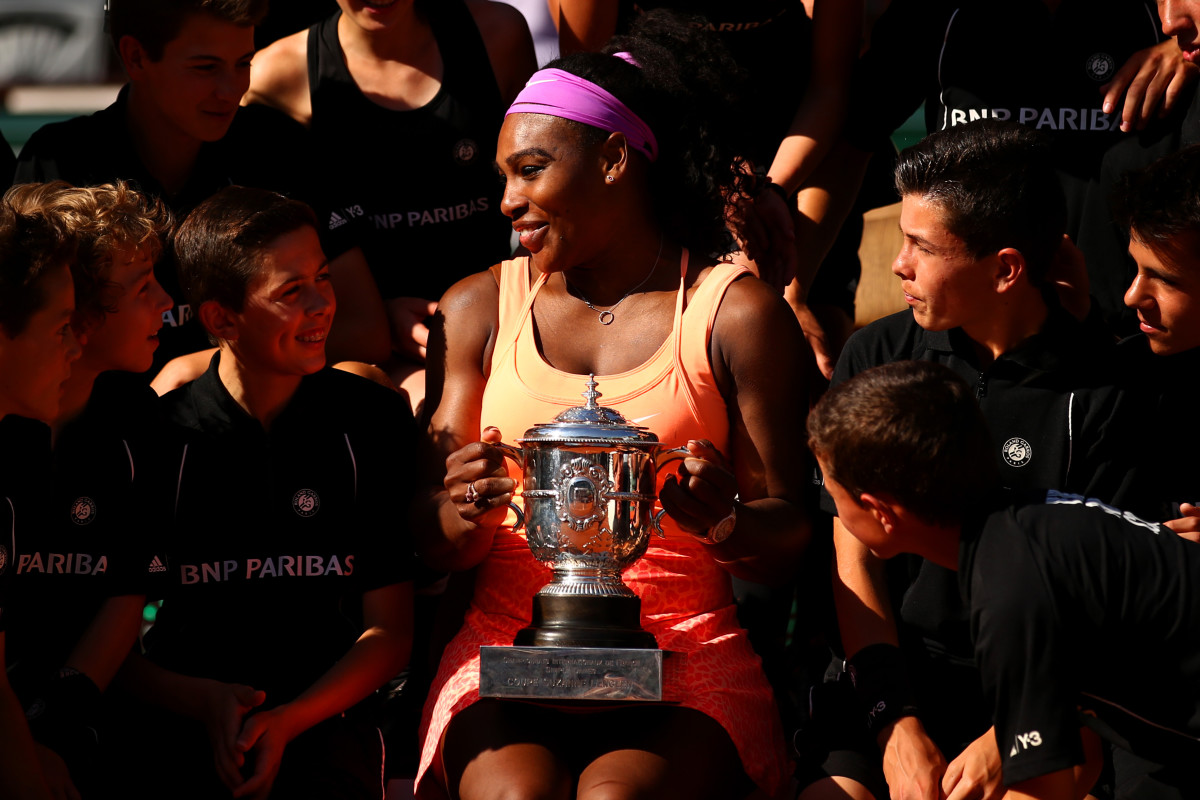
Luci Safarova and Bethanie Mattek-Sands
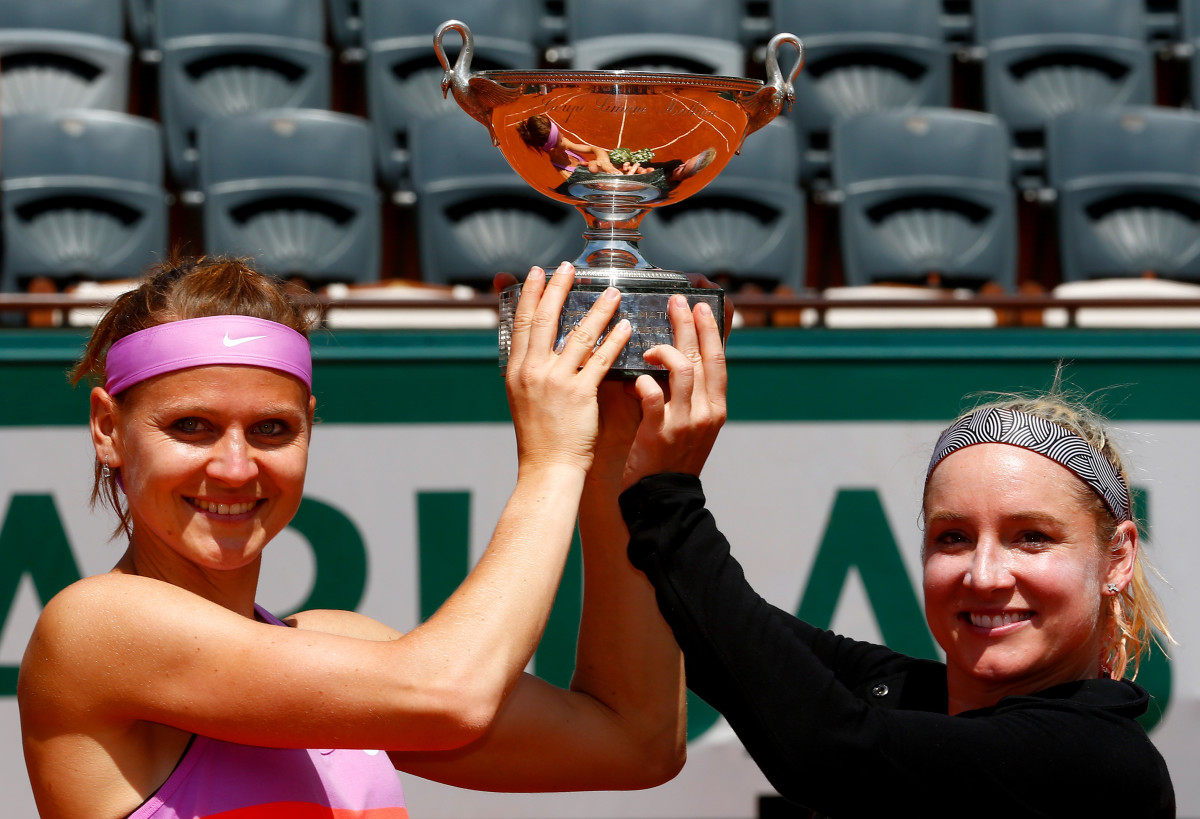
French Open
Stan Wawrinka
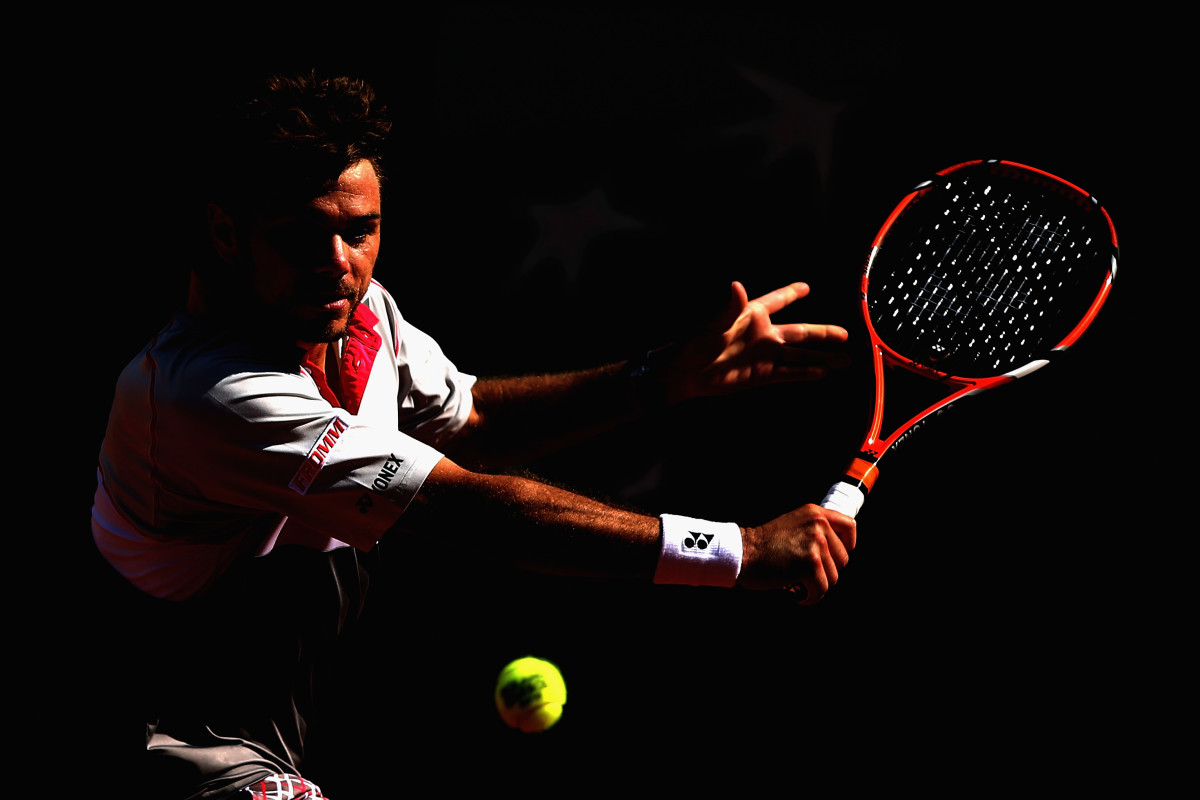
Stan Wawrinka
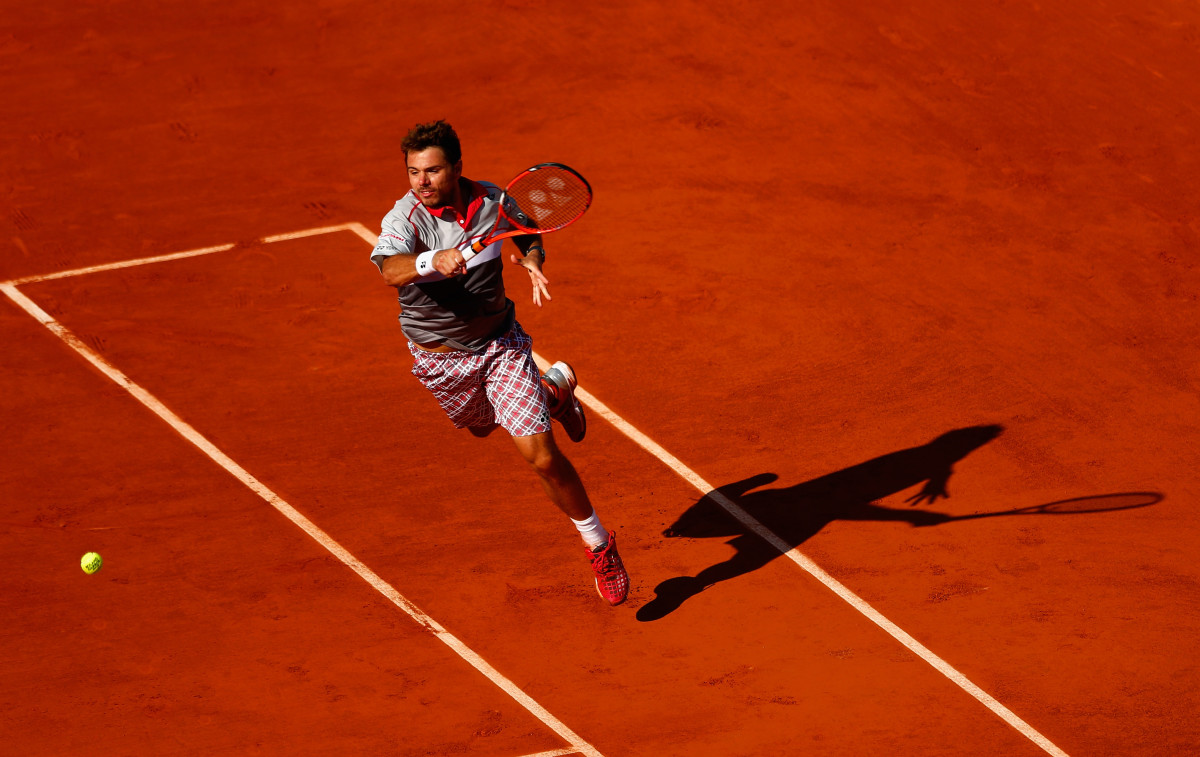
Novak Djokovic
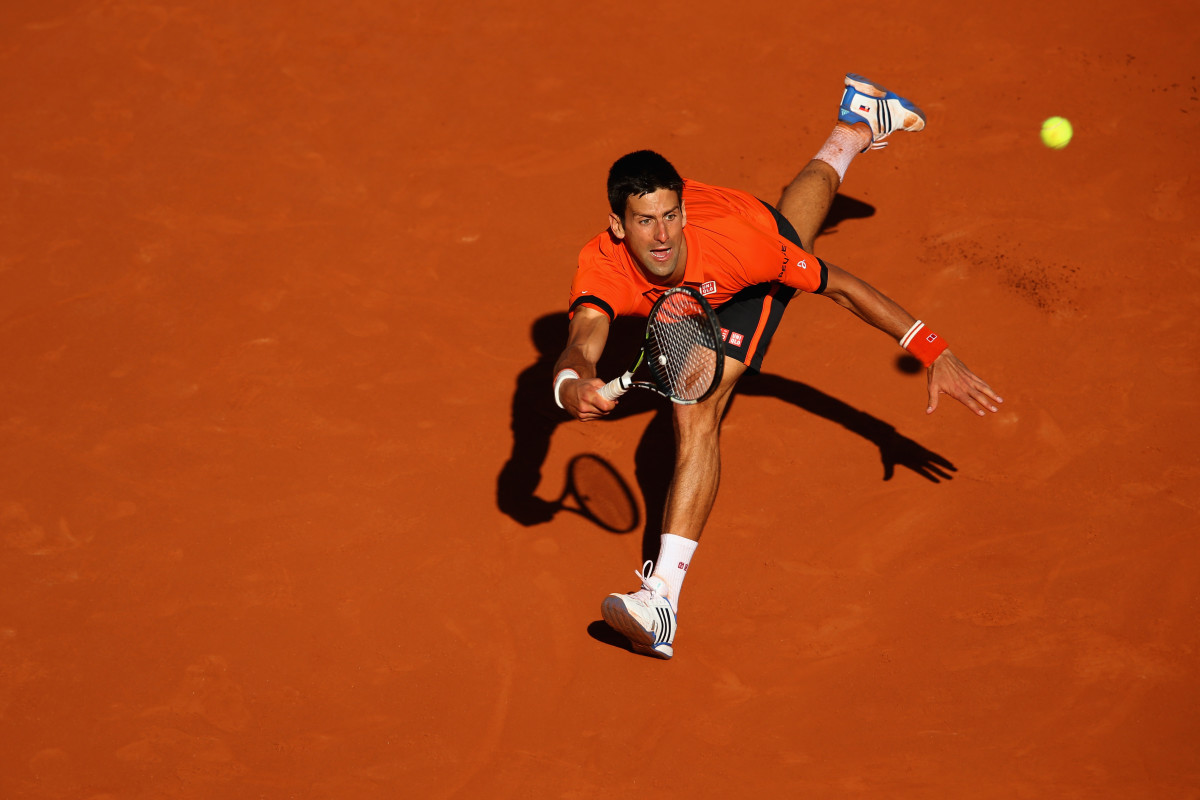
Stan Wawrinka and Novak Djokovic
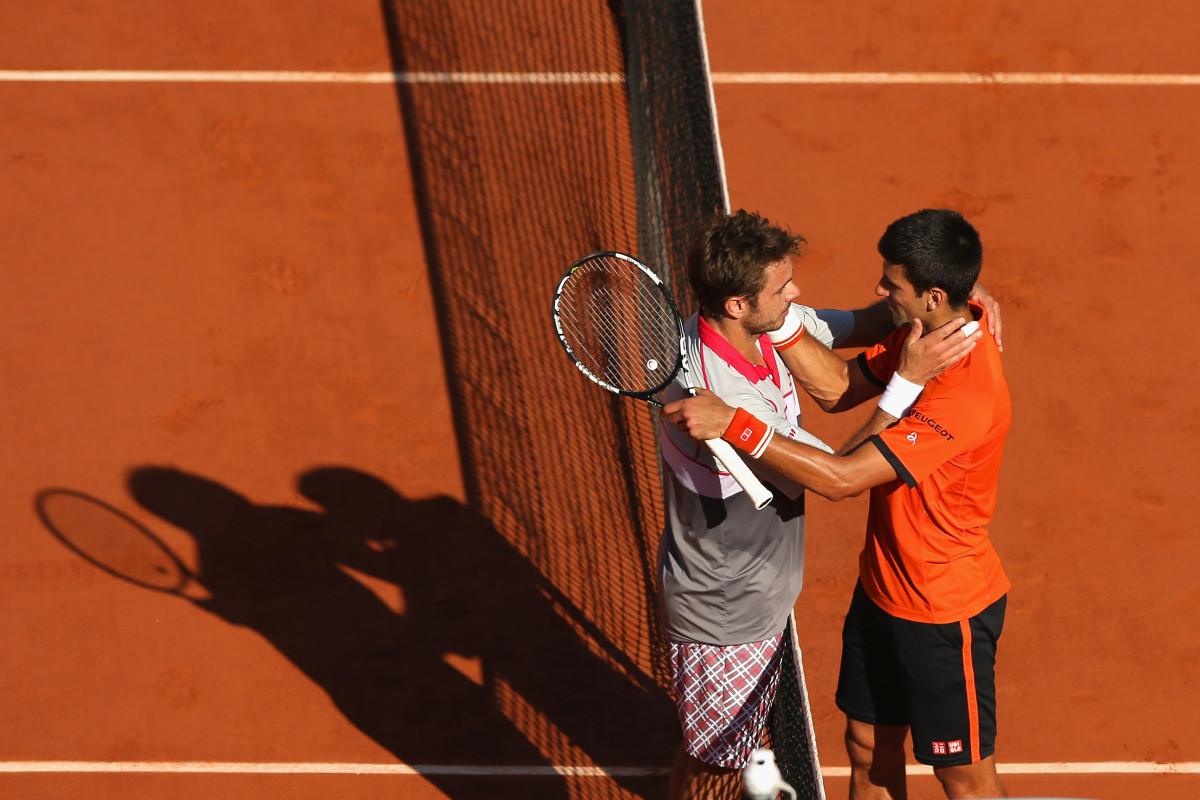
Stan Wawrinka
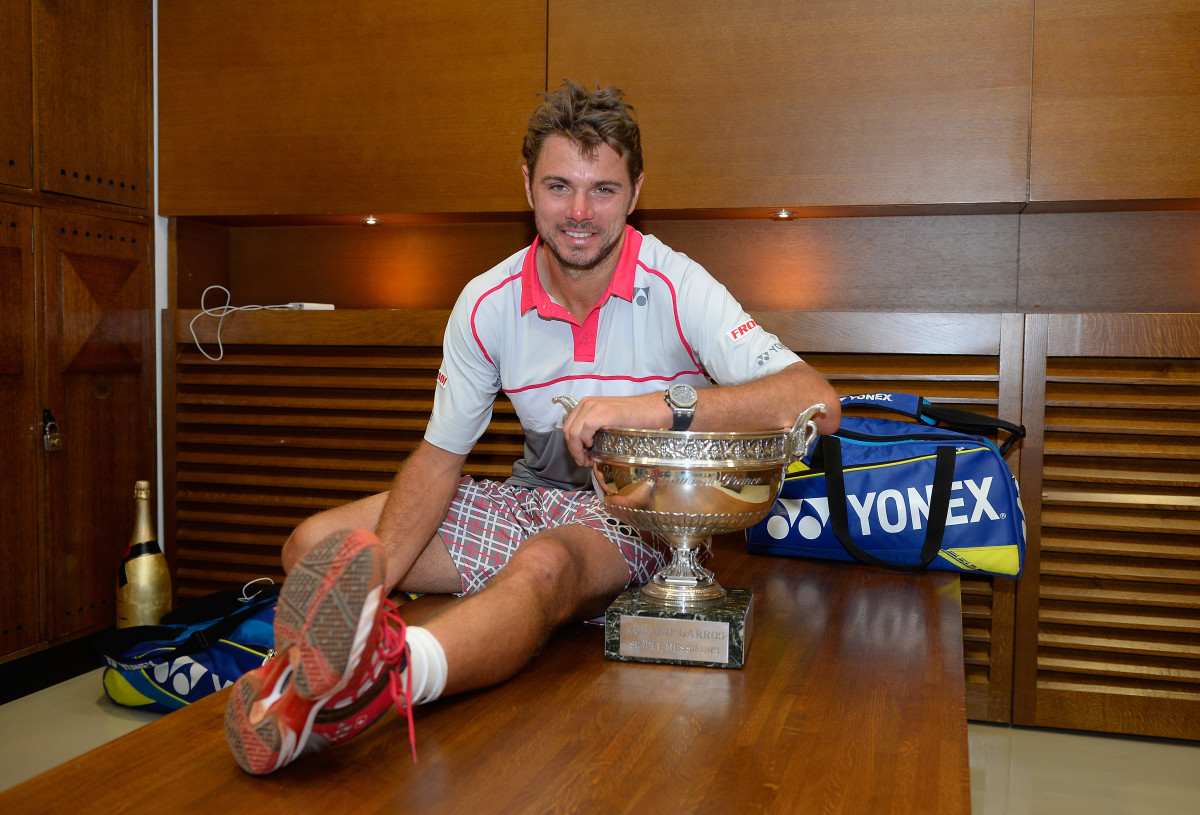
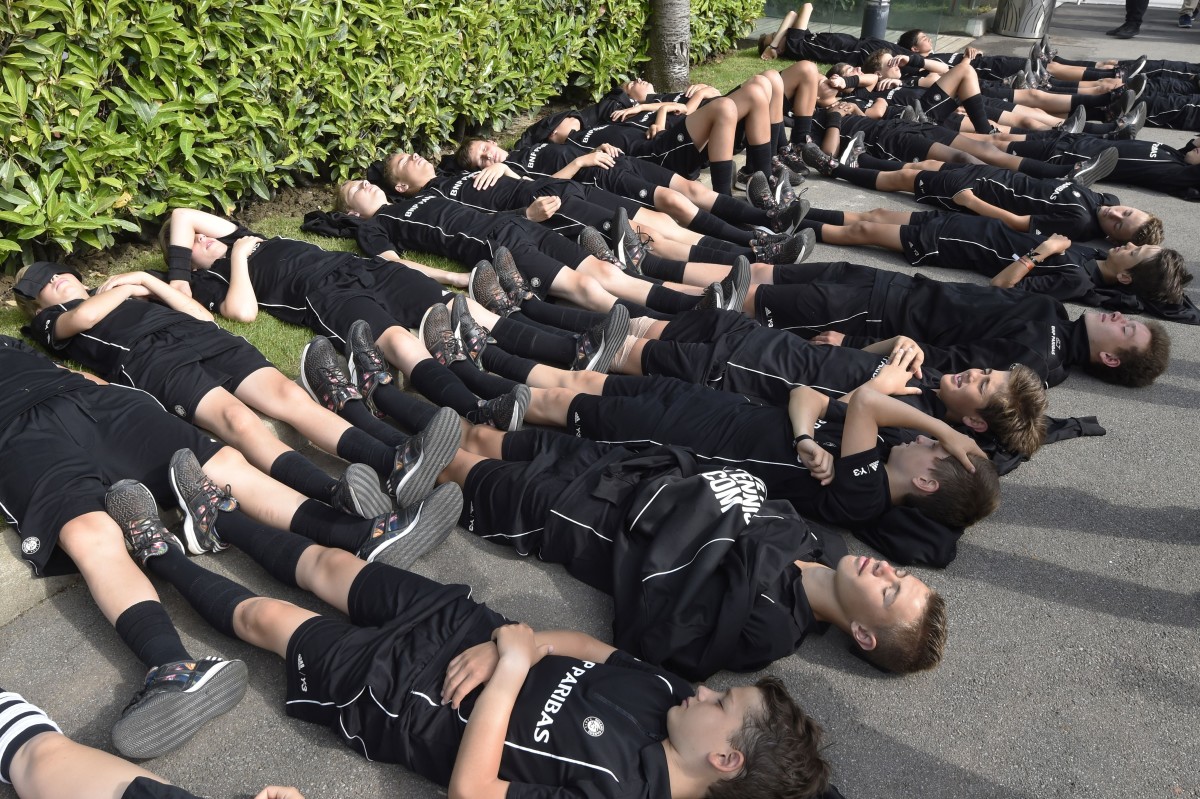
Simona Halep
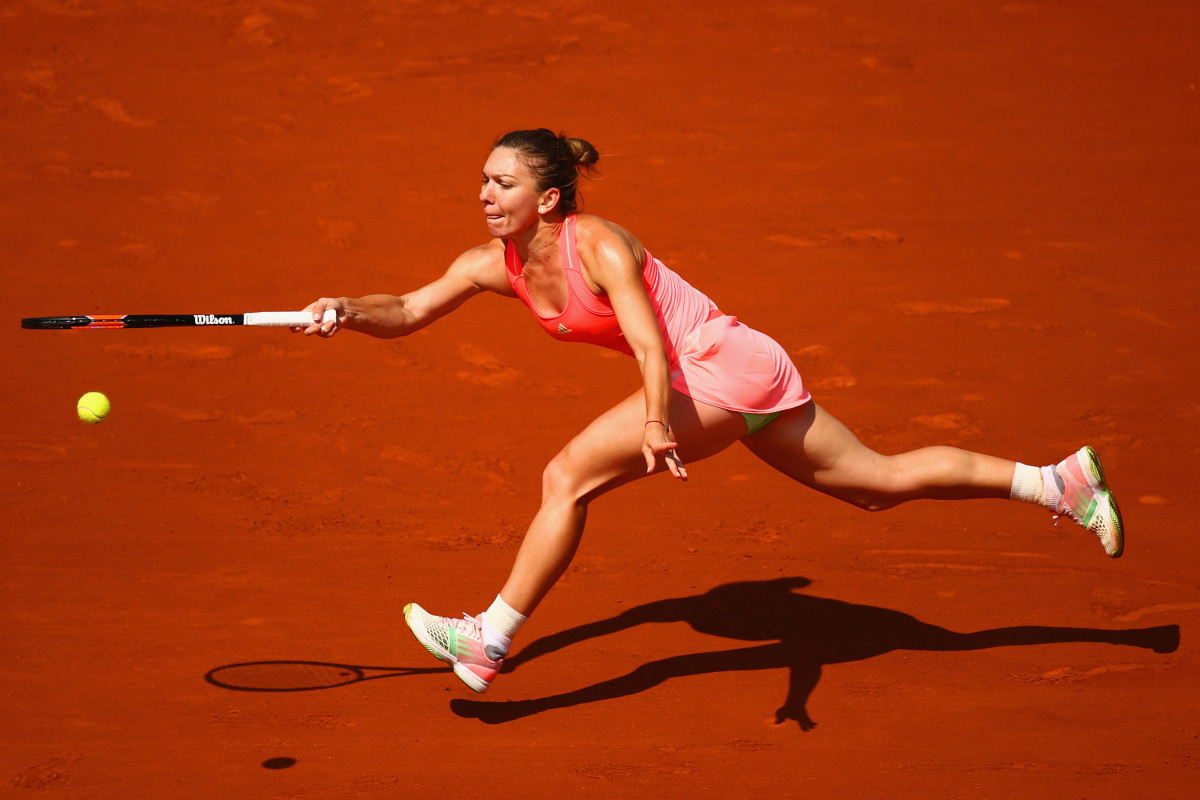
Jo-Wilfried Tsonga
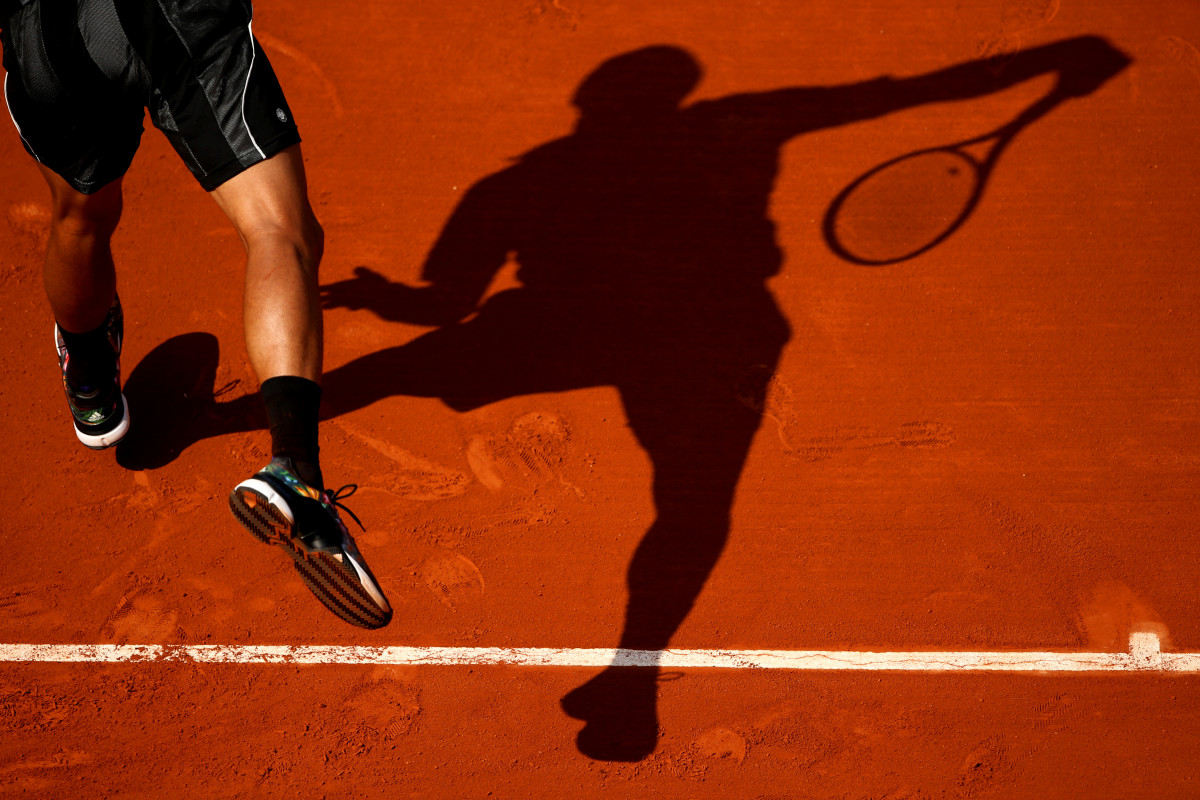
Jack Sock
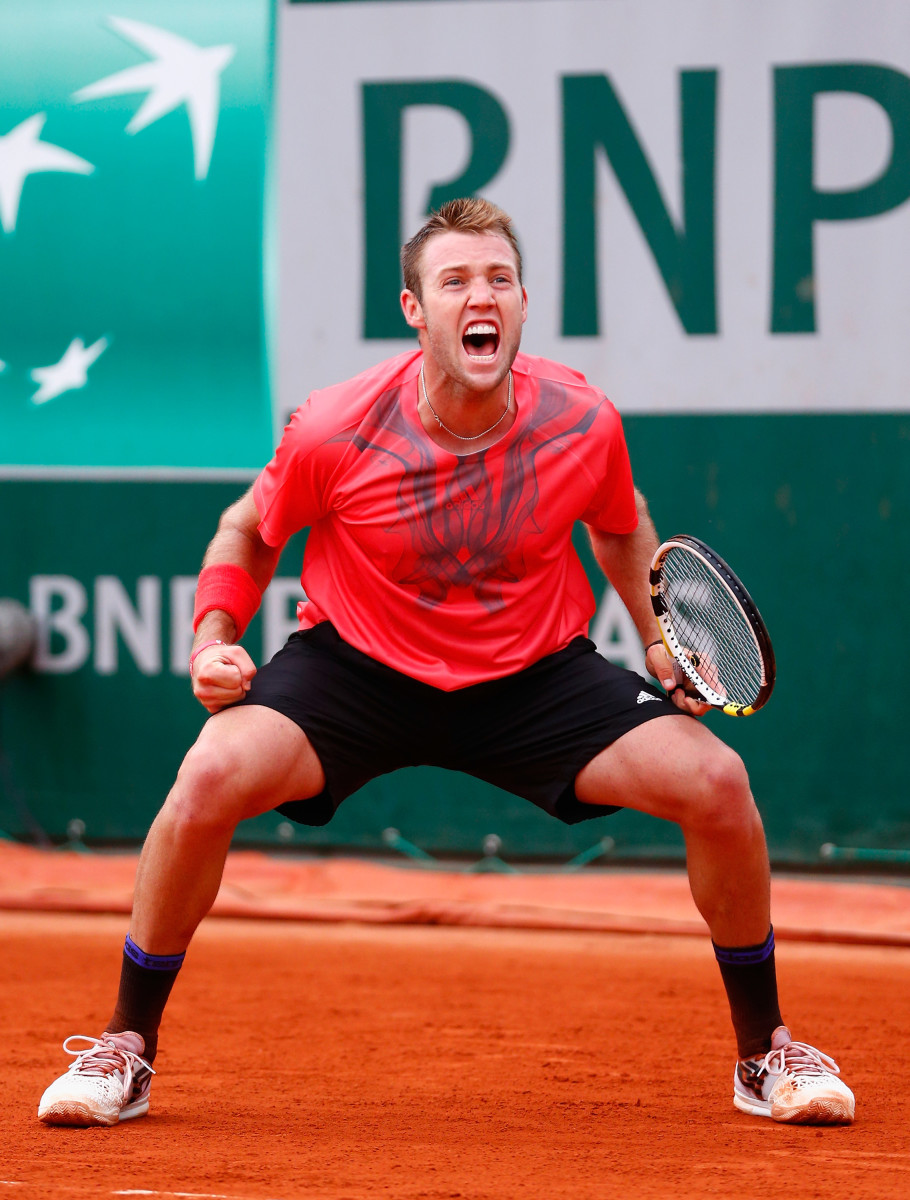
Andy Murray
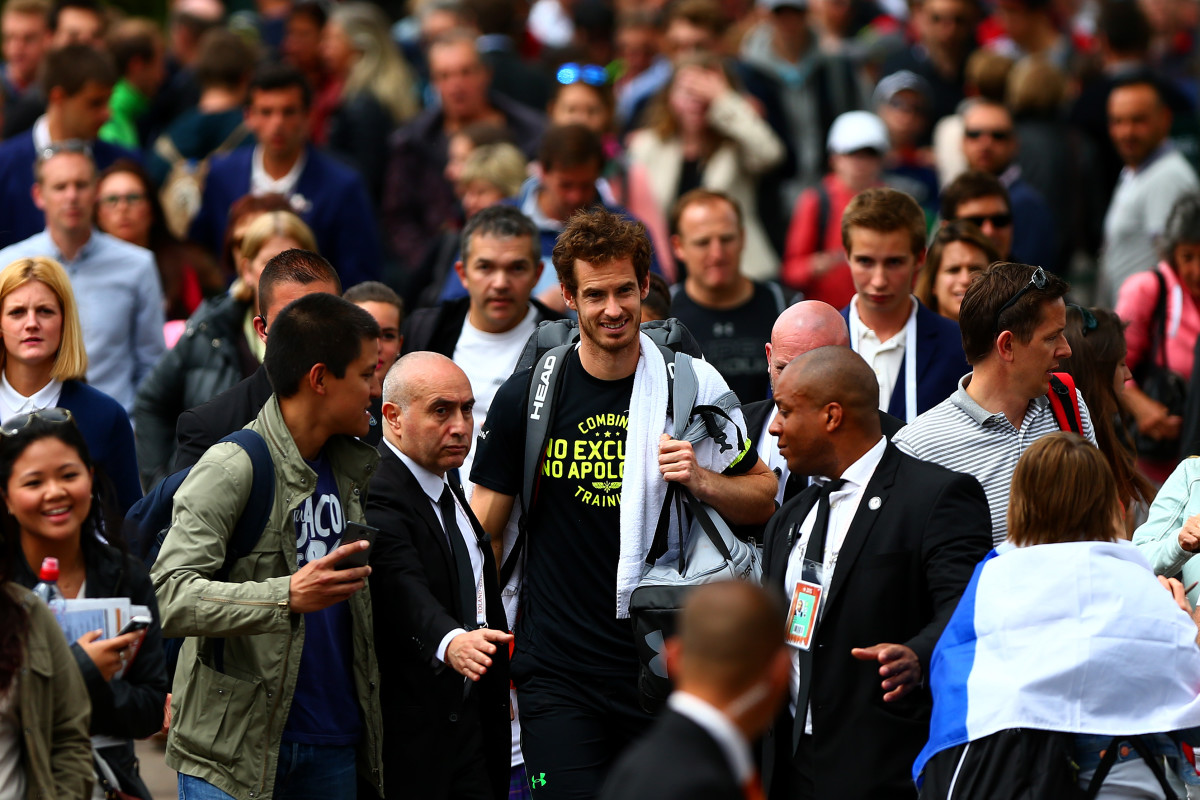
Gael Monfils
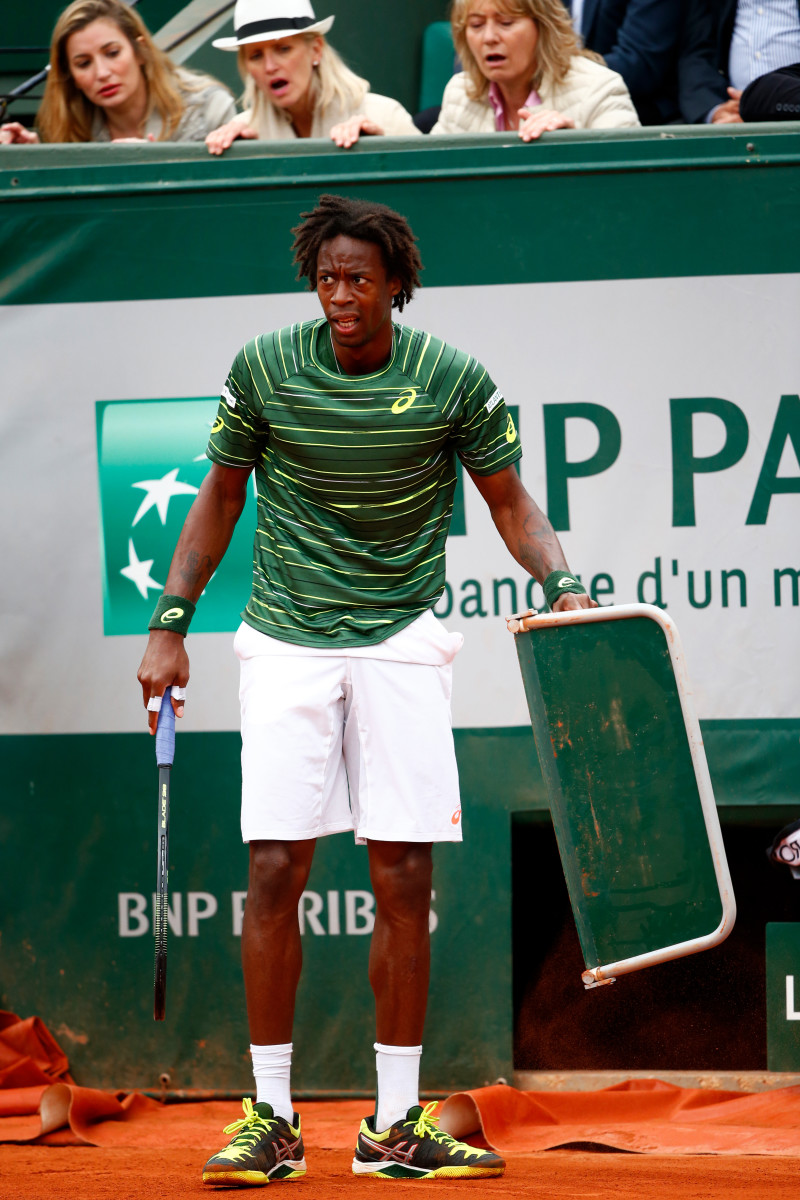
Jo-Wilfried Tsonga
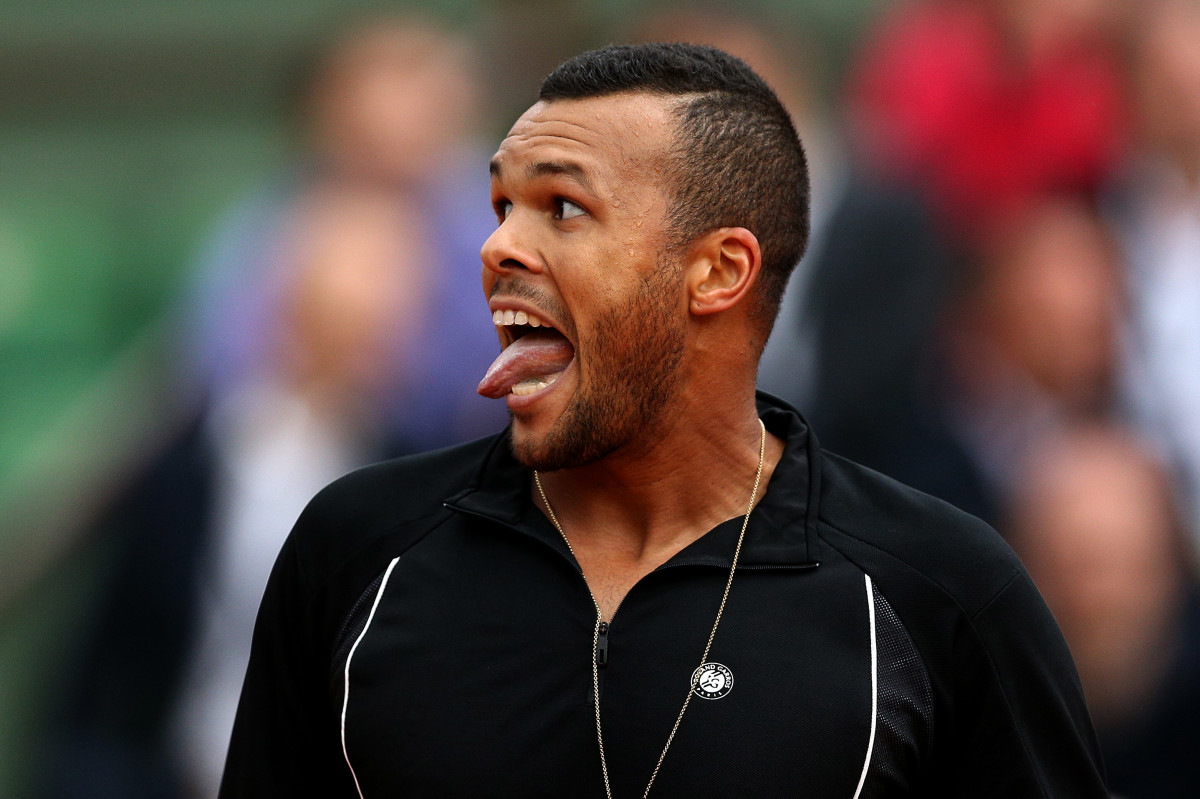
Andy Murray
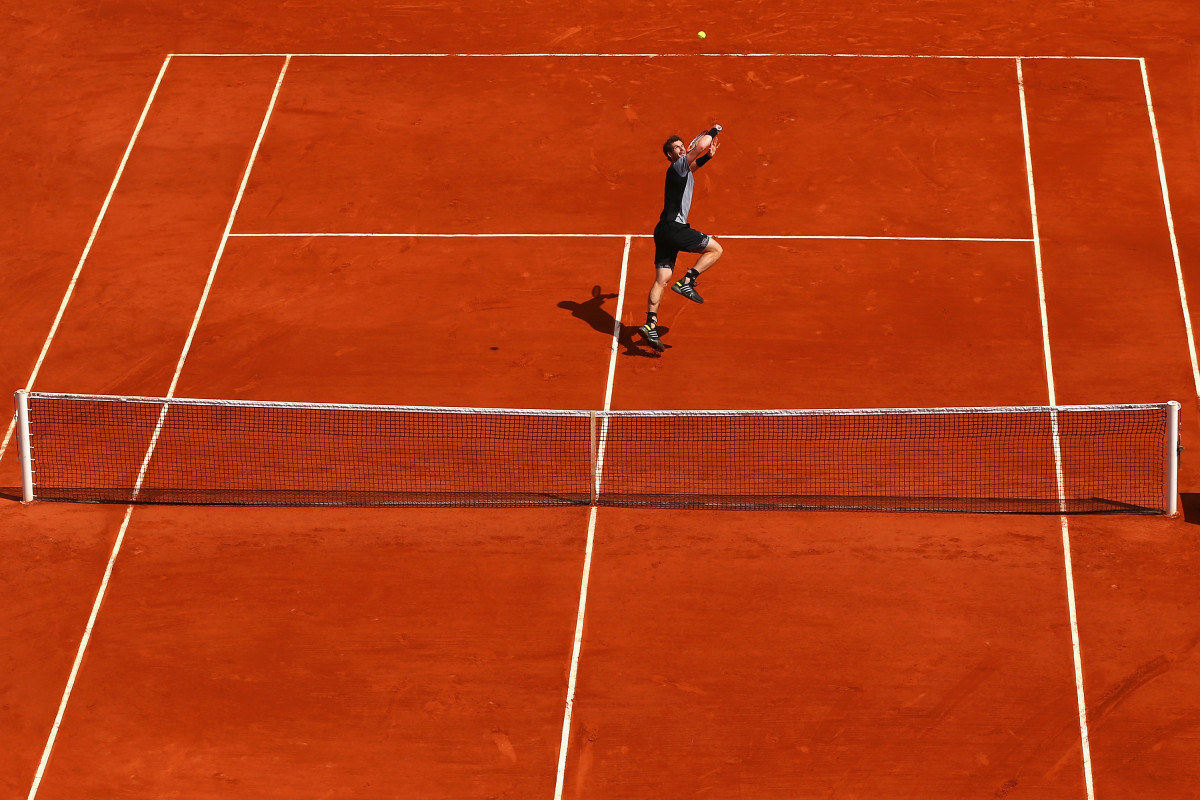
Nick Kyrgios
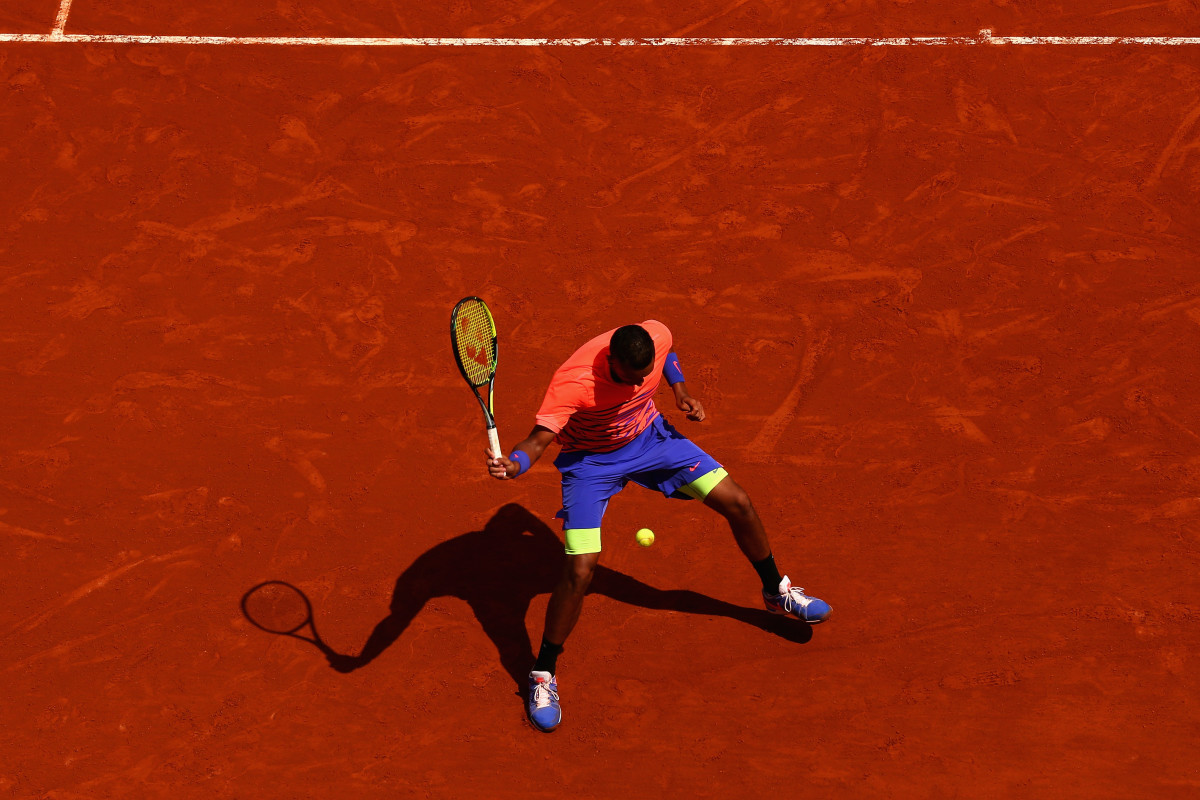
Serena Williams
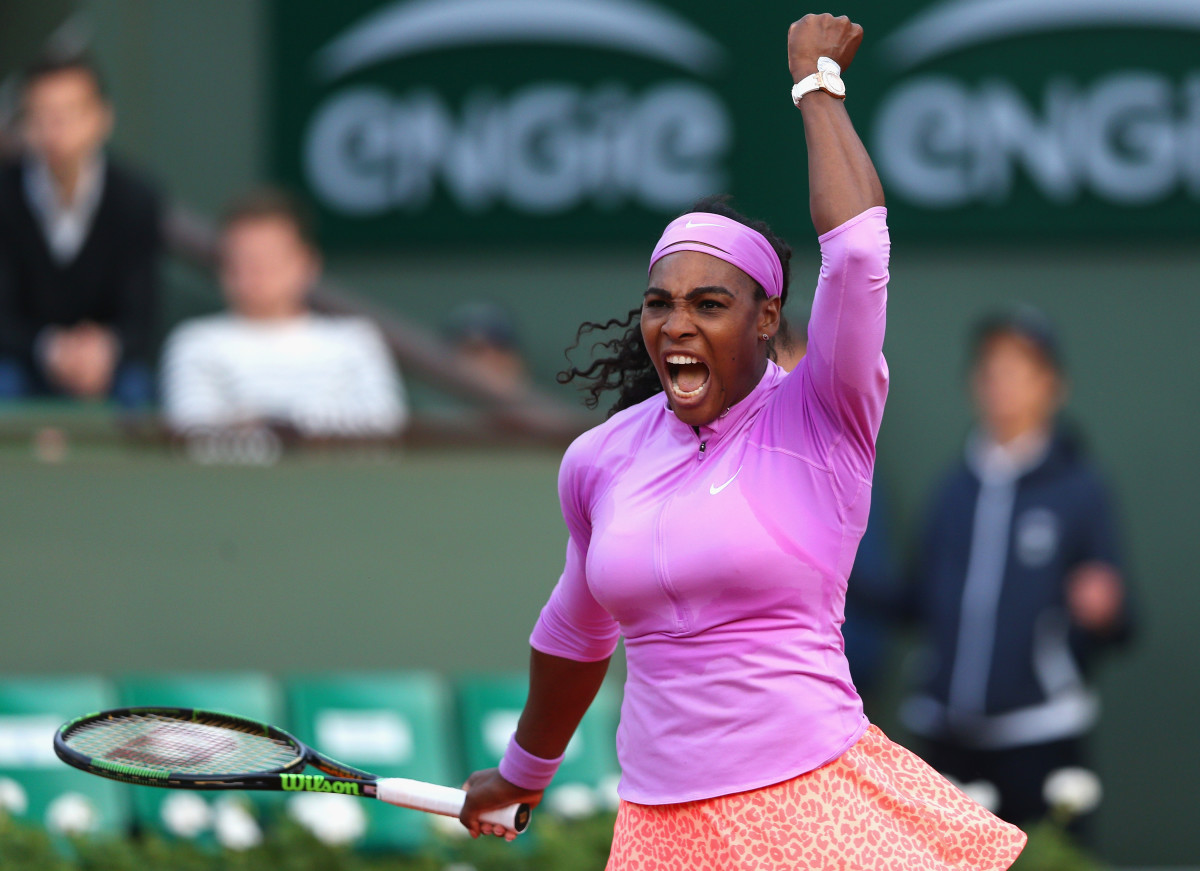
Jo-Wilfried Tsonga
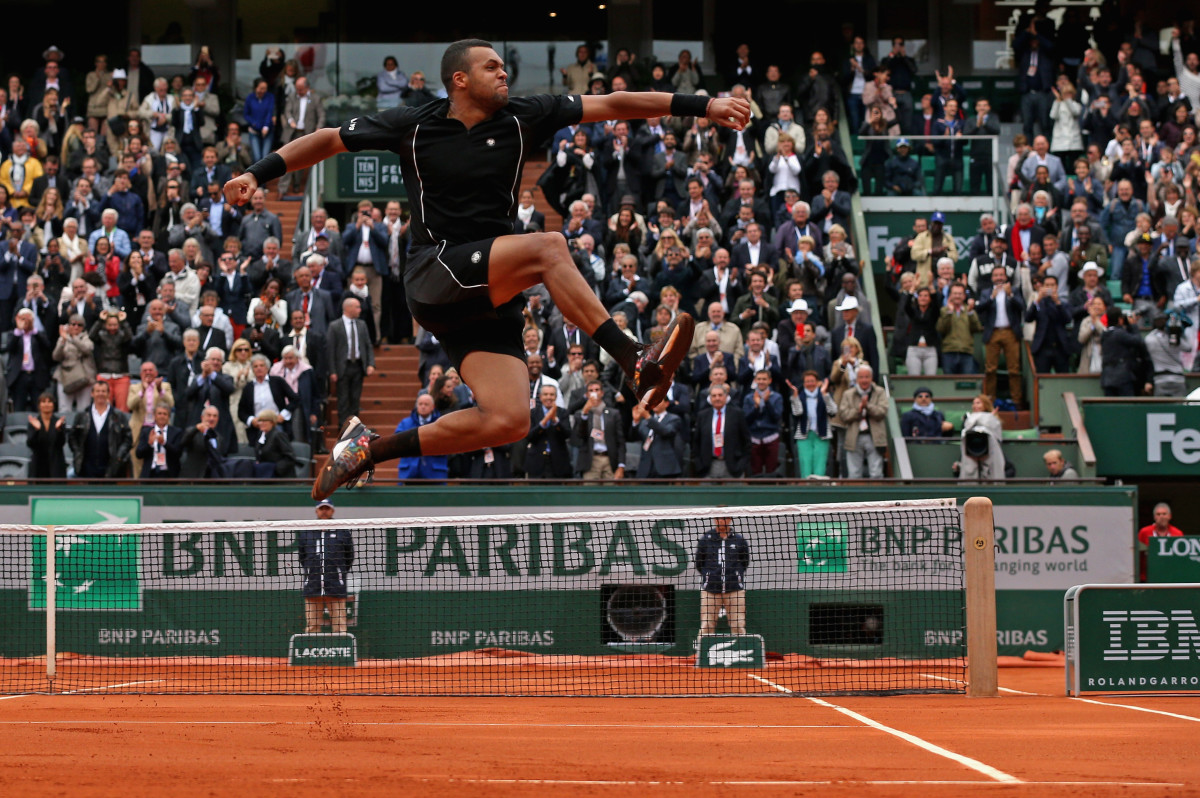
Timea Bacsinszky
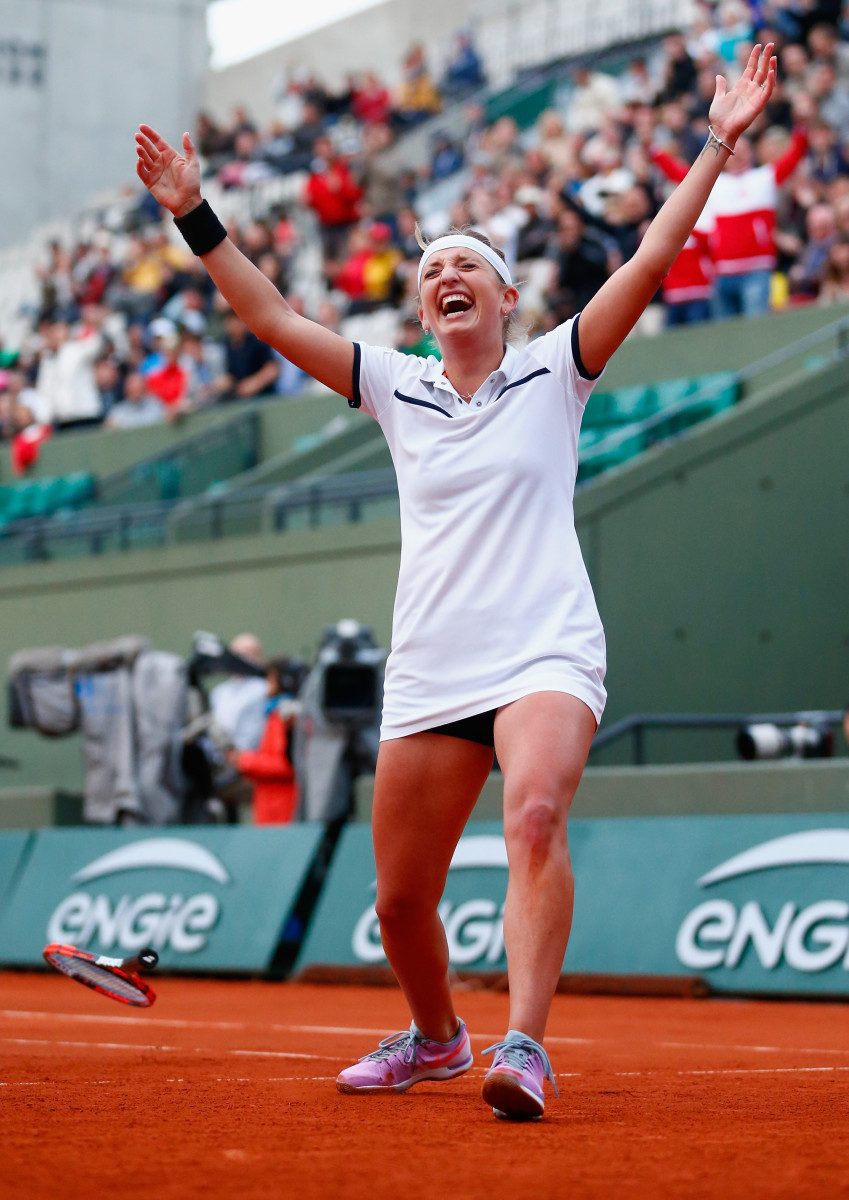
French Open
Lucie Safarova
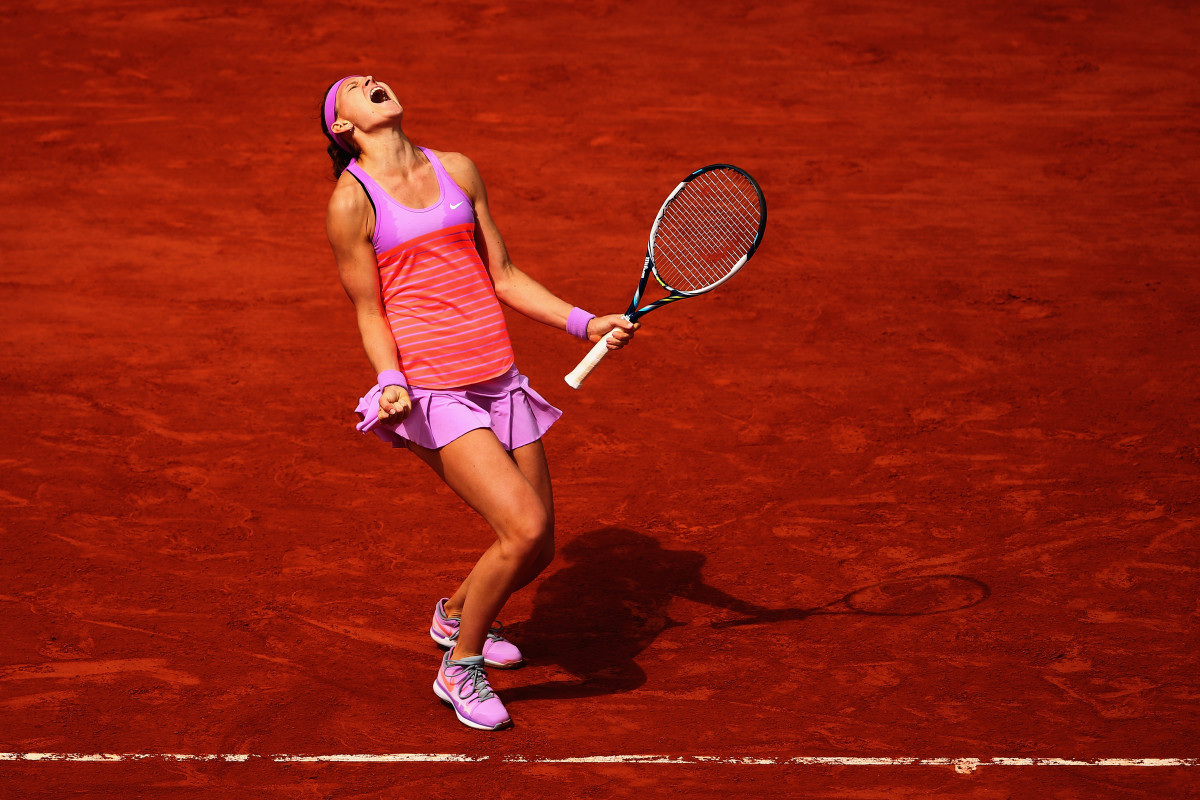
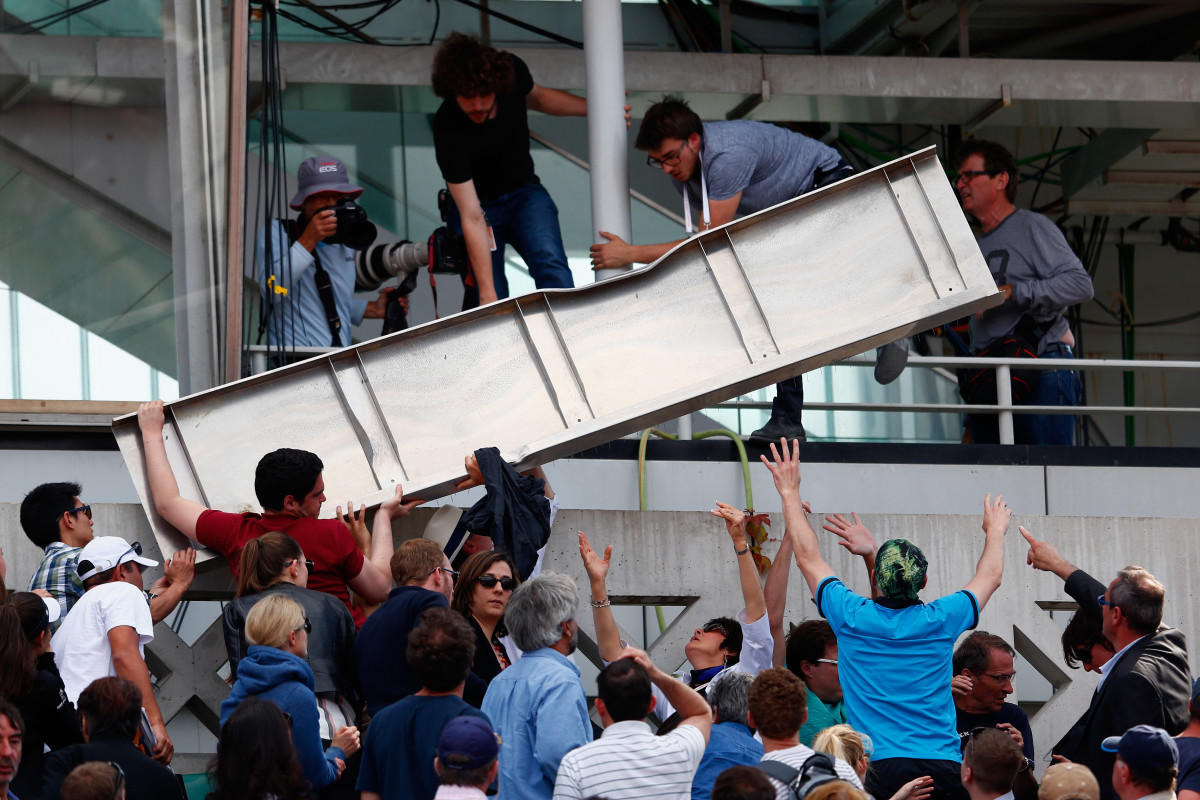
Roger Federer
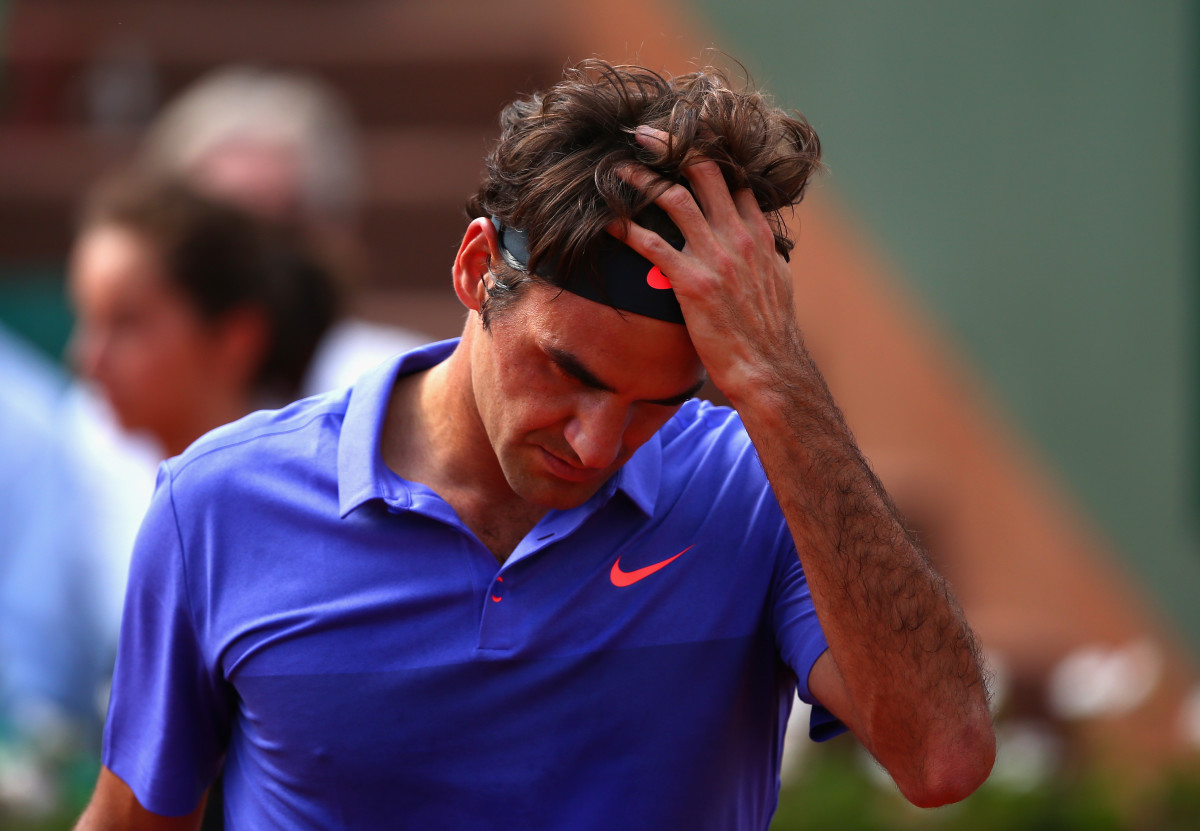
Jo-Wilfried Tsonga
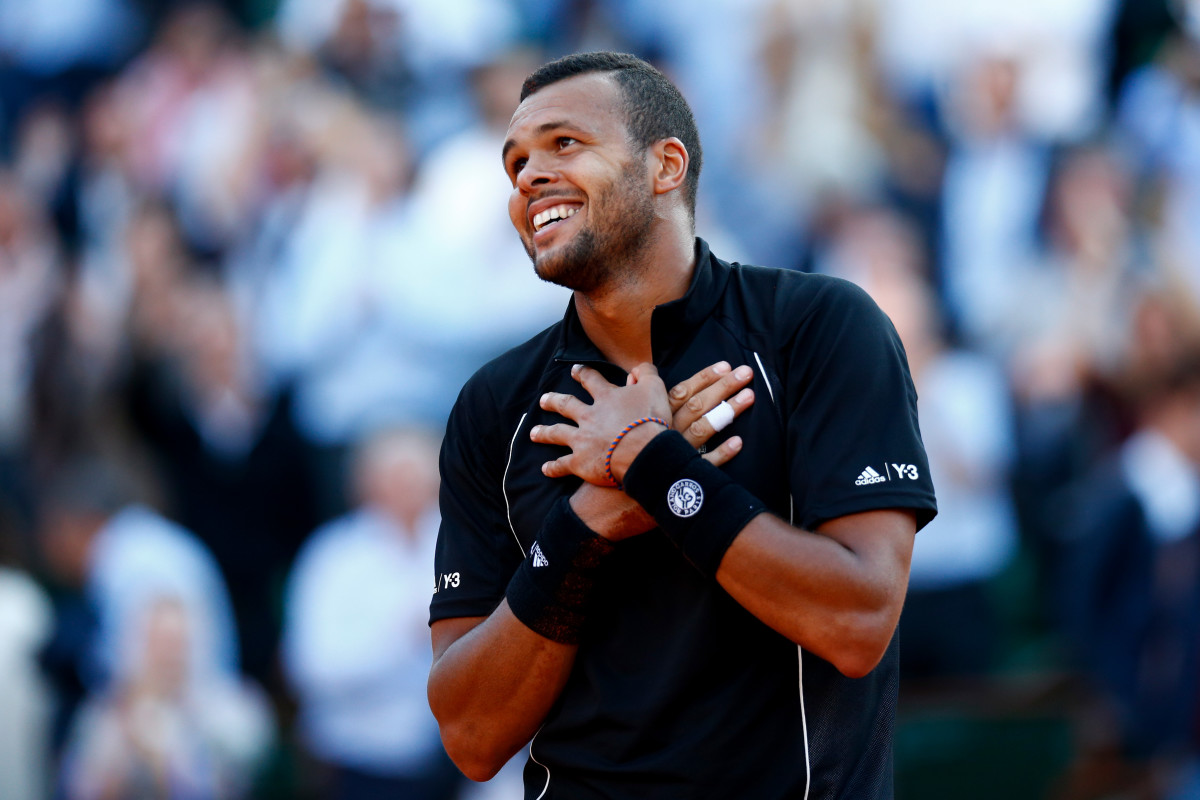
Roger Federer
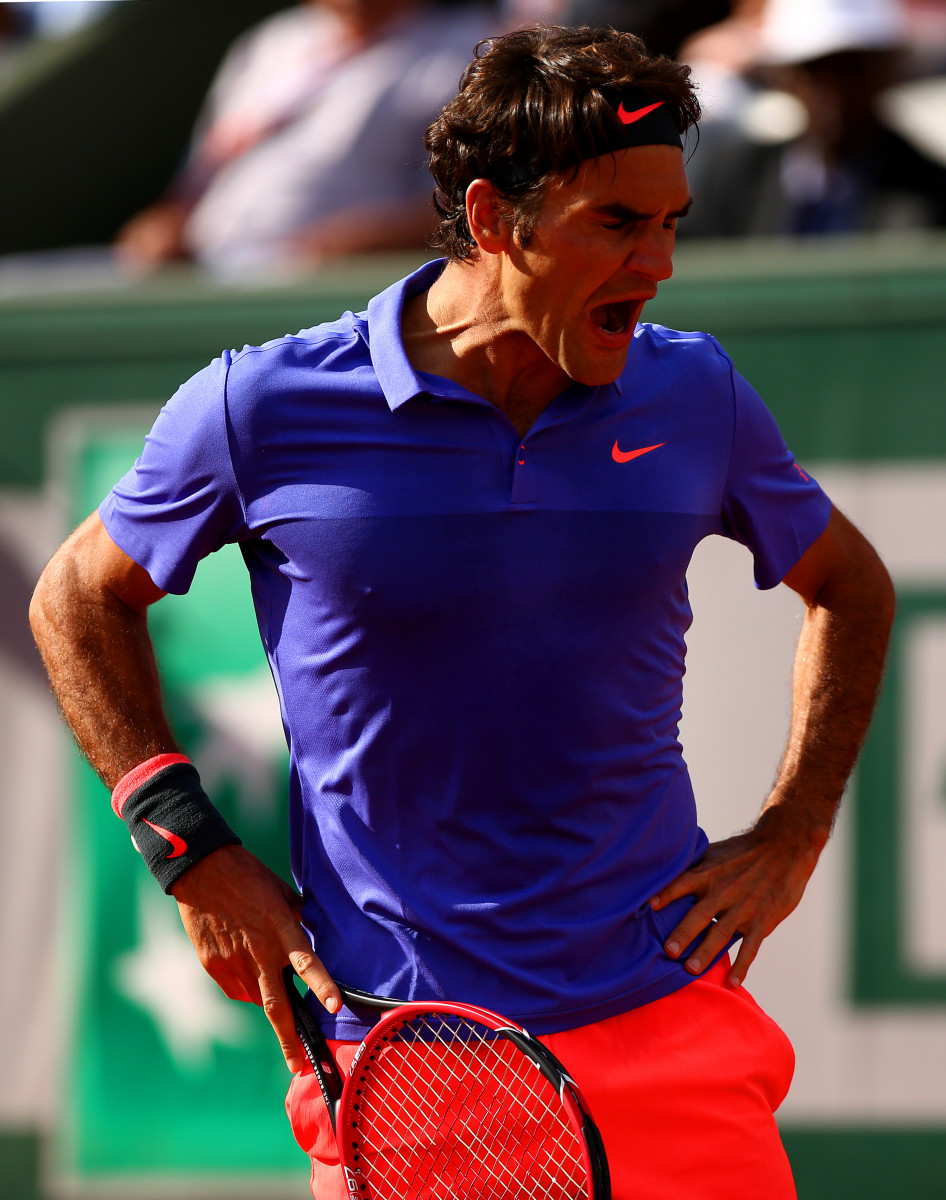
French Open
Rafael Nadal, Novak Djokovic
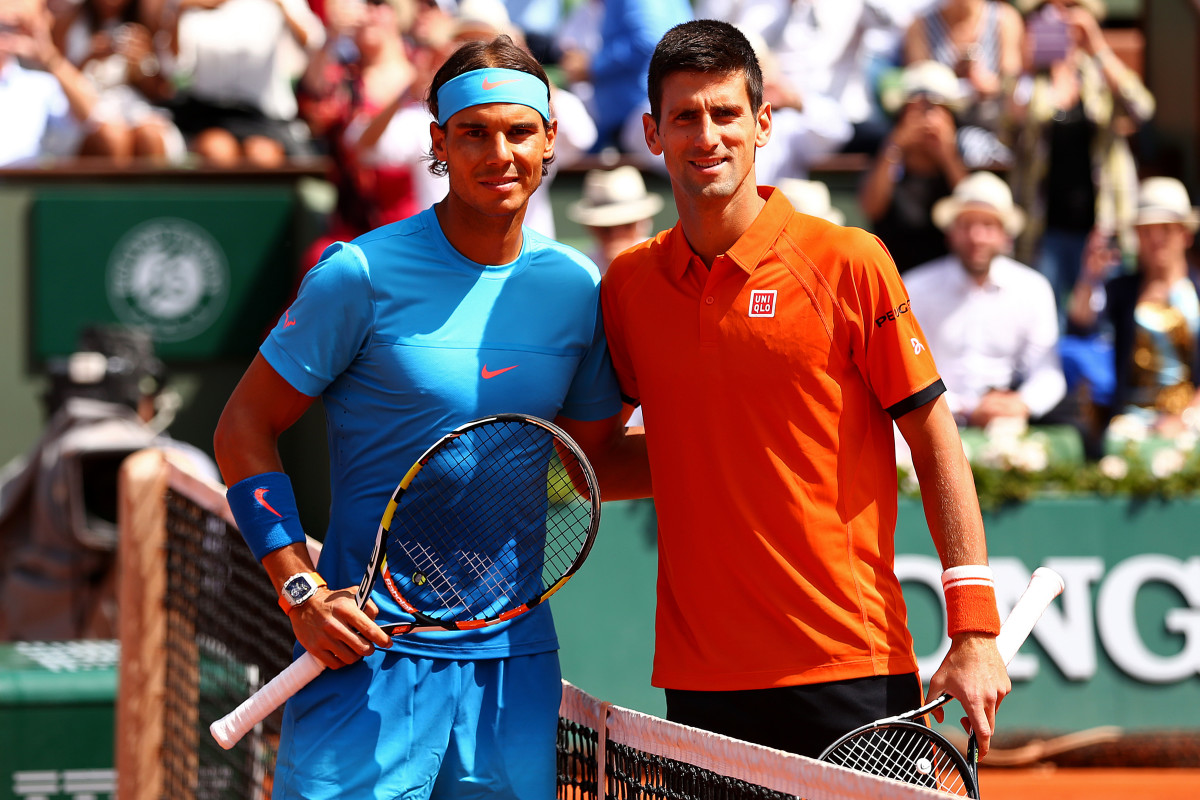
Rafael Nadal
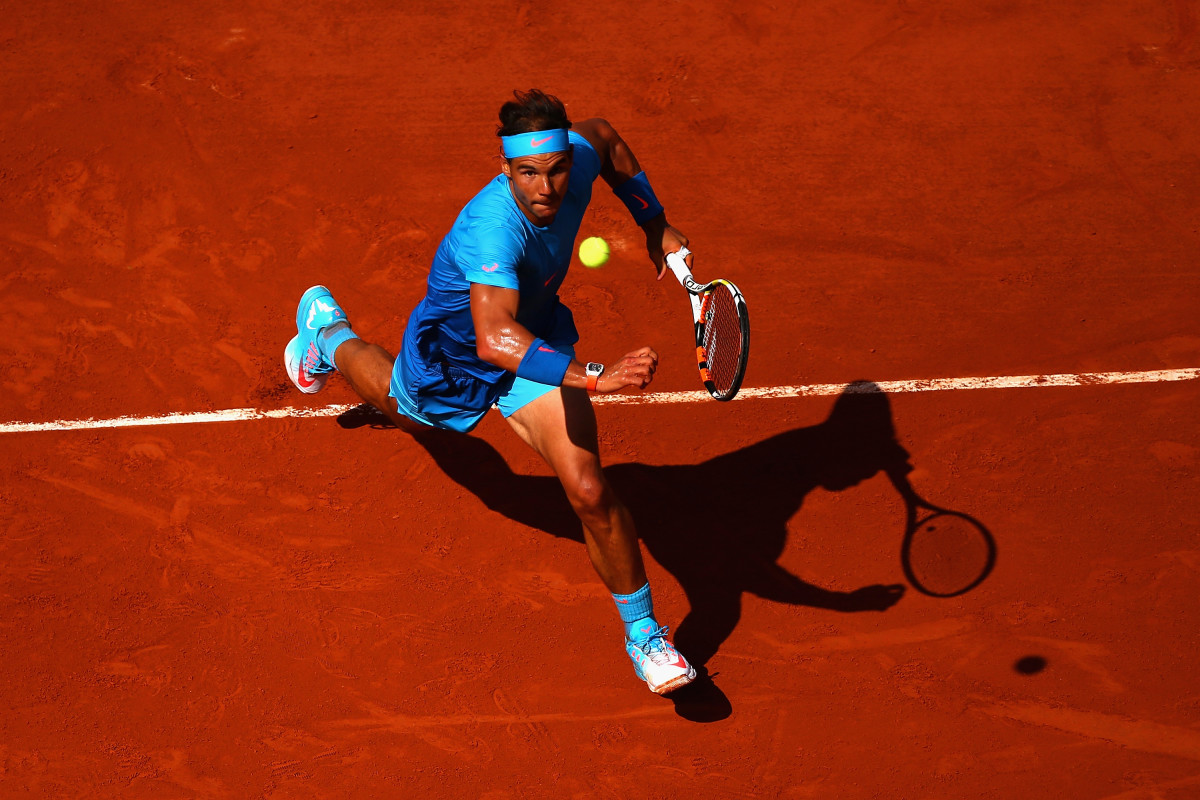
Novak Djokovic, Rafael Nadal
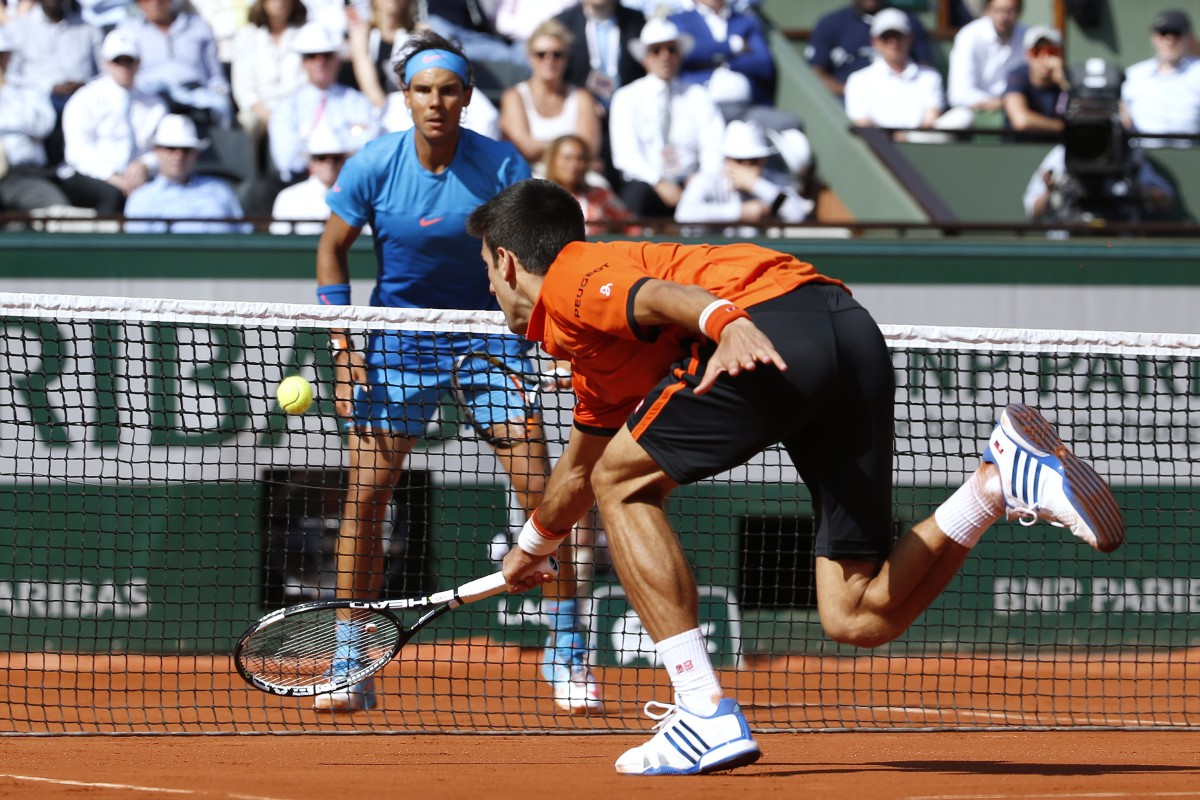
Rafael Nadal
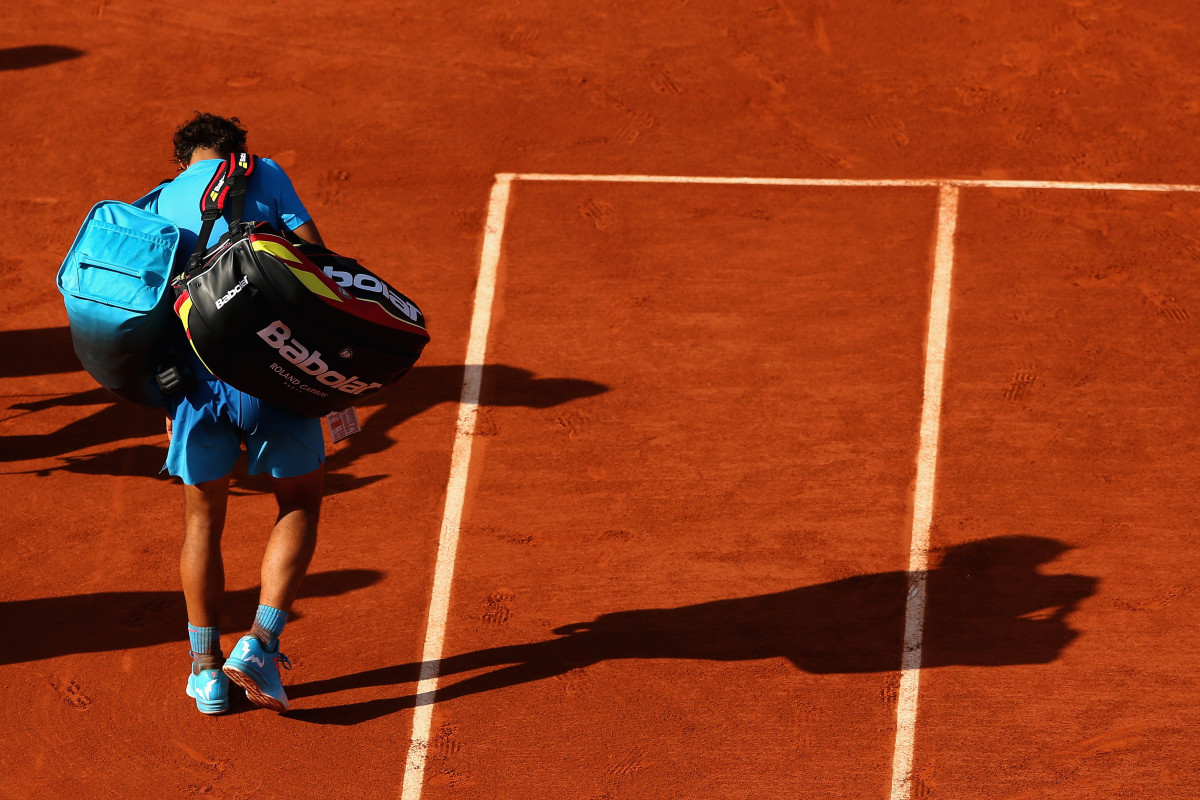
Rafael Nadal, Novak Djokovic
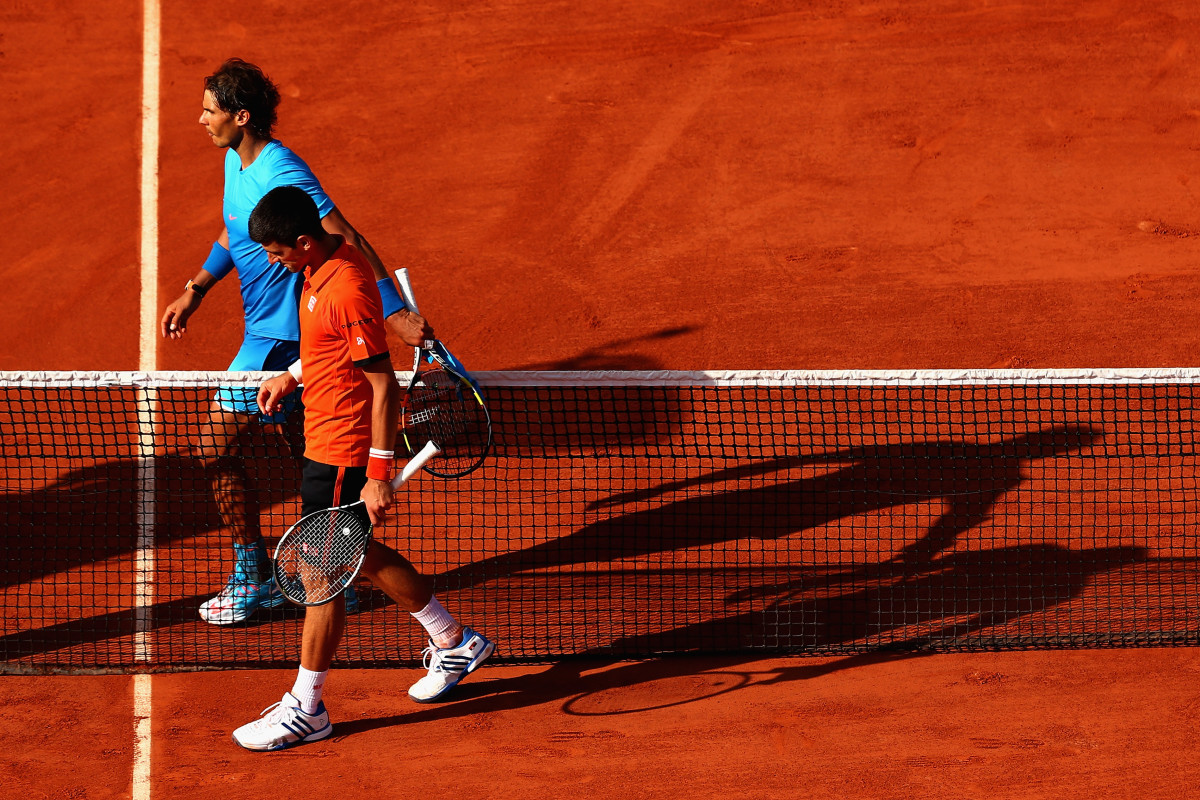
Rafael Nadal
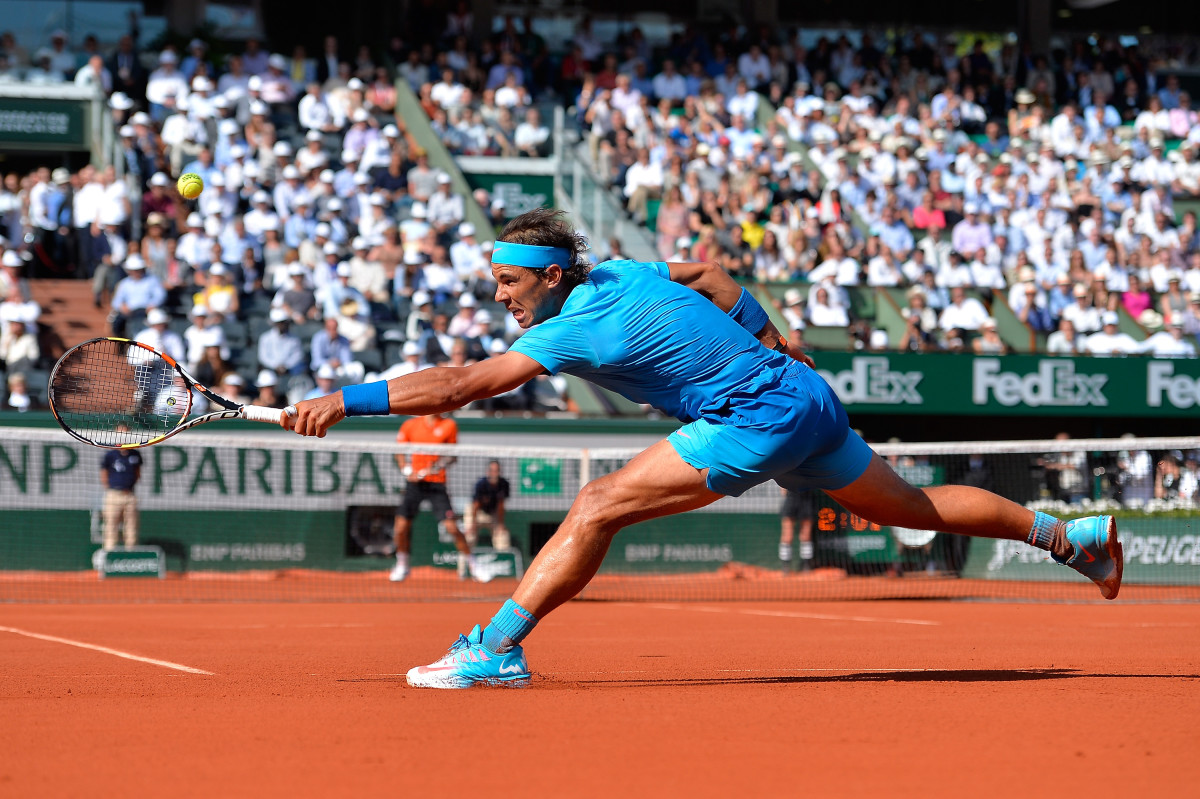
Rafael Nadal
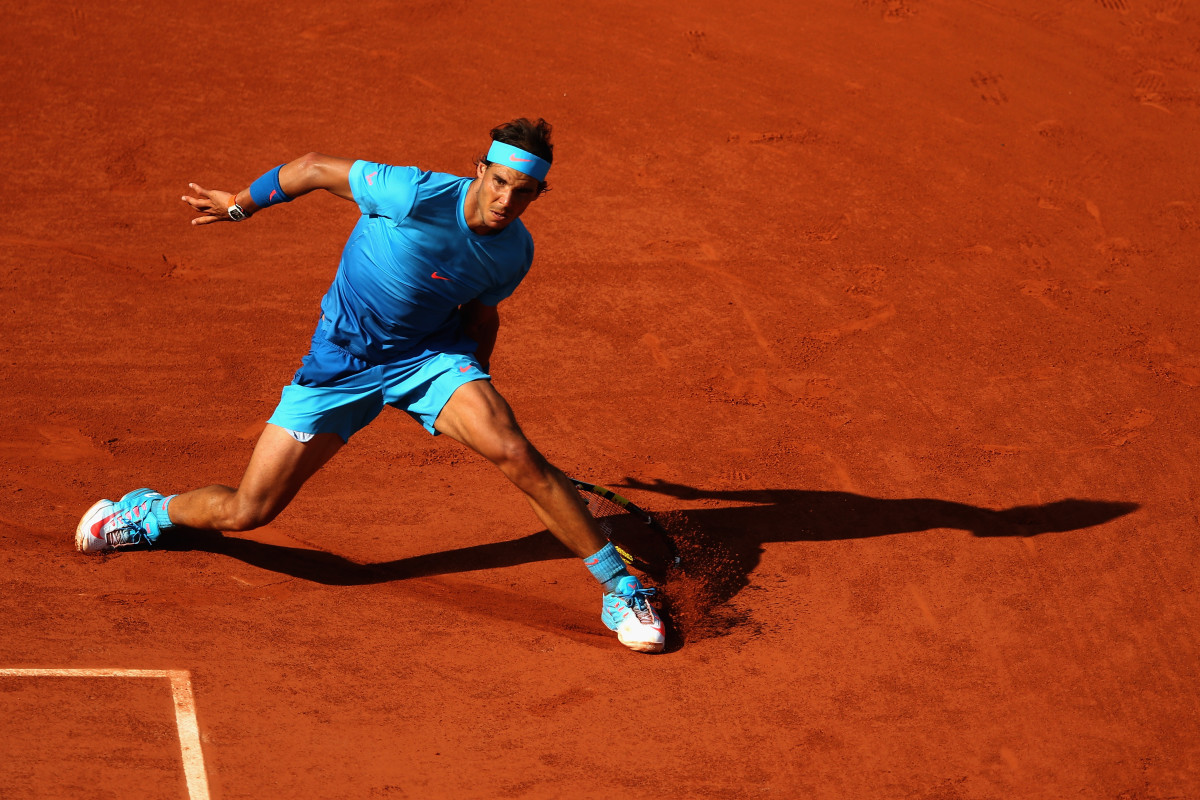
Amelie Mauresmo, Matt Little, Mark Bender and Kim Murray
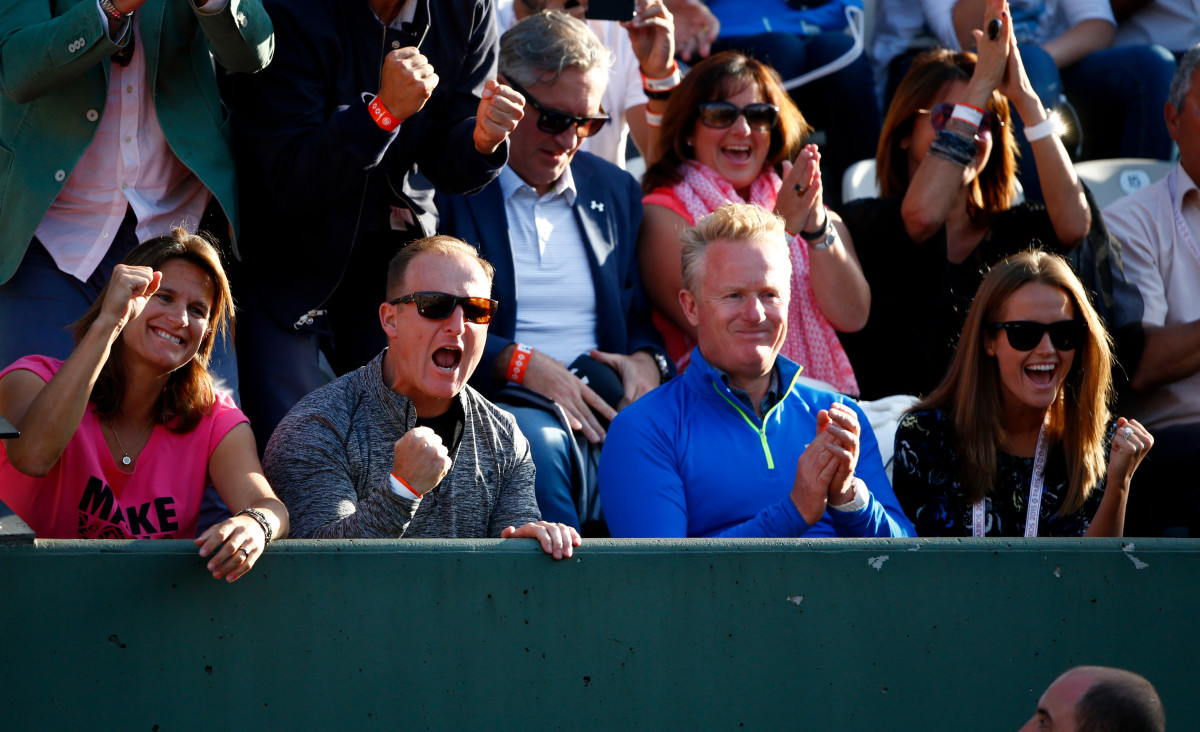
Andy Murray
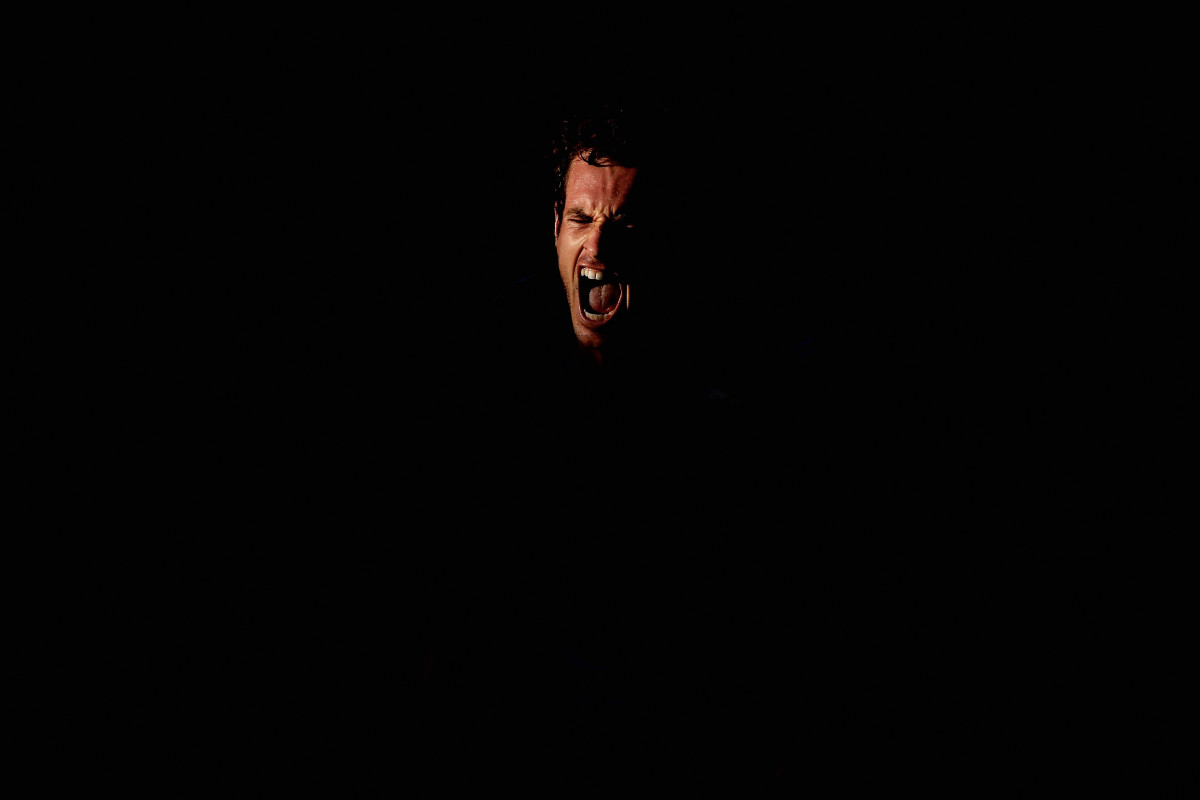
Serena Williams
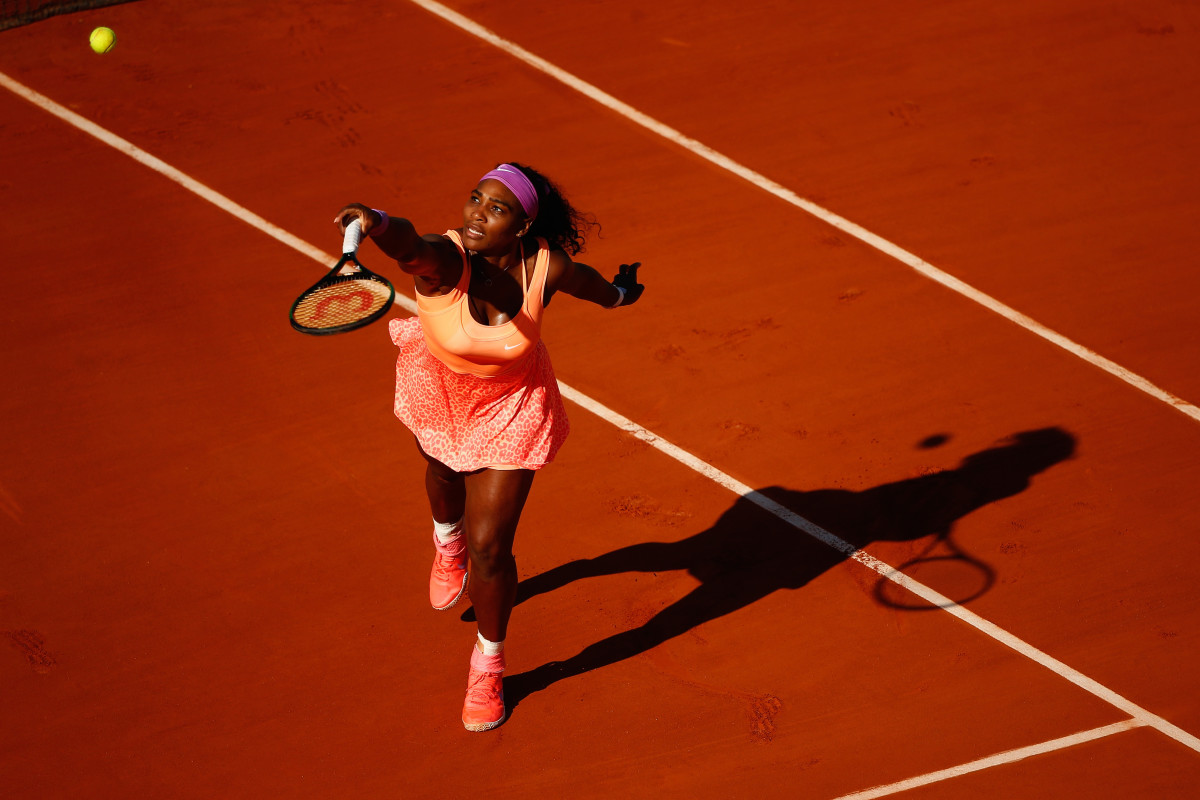
Serena Williams
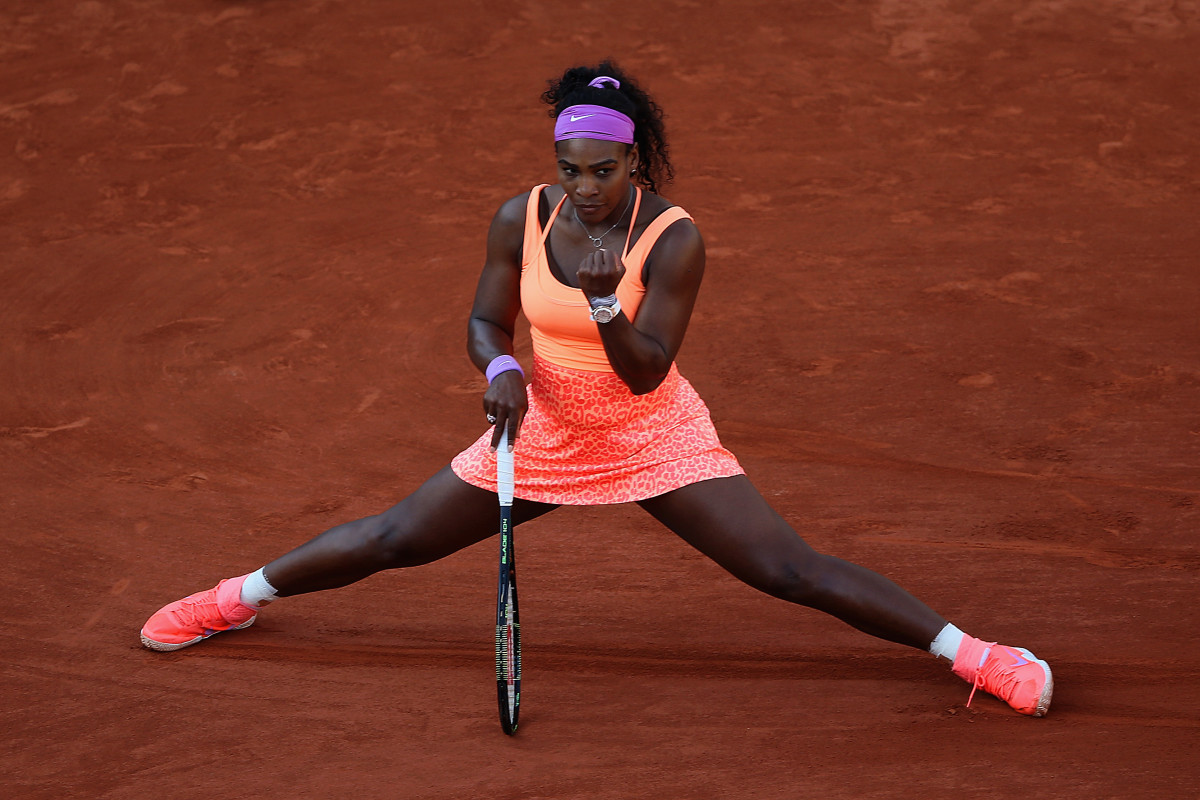
Simona Halep
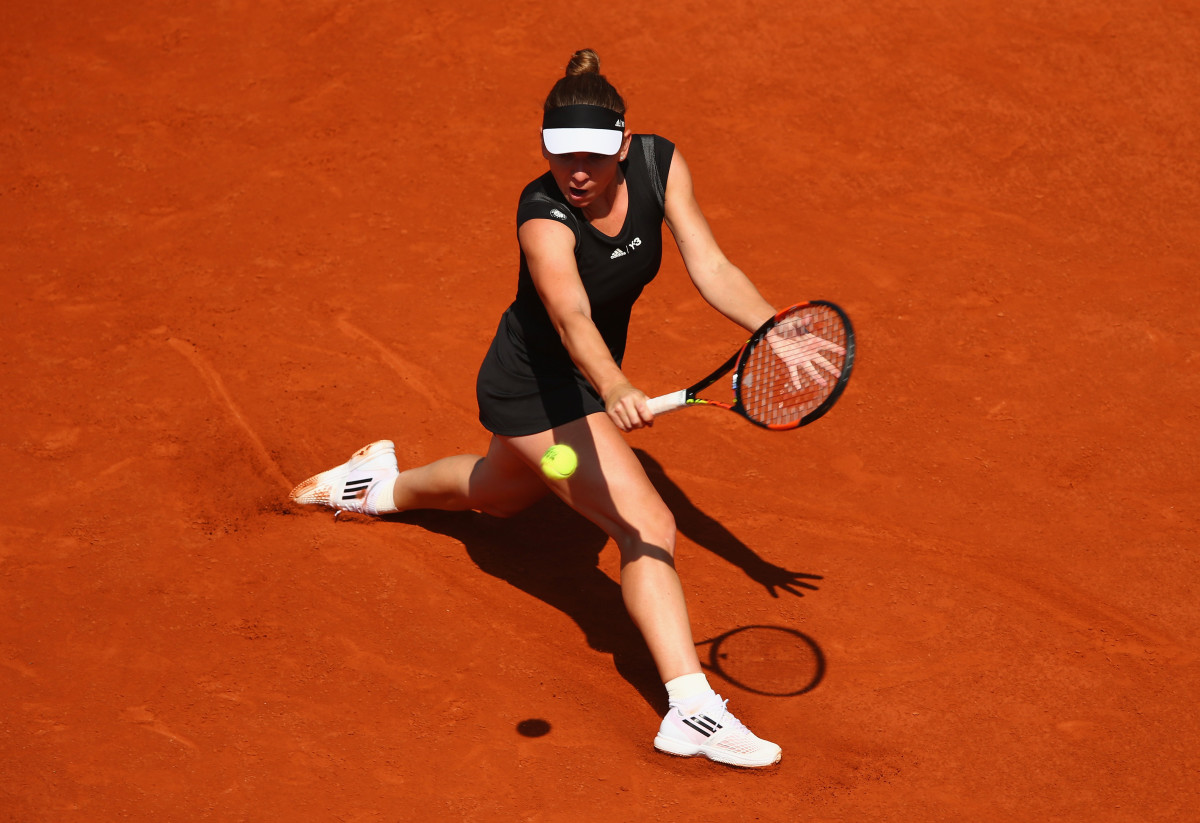
Amelie Mauresmo
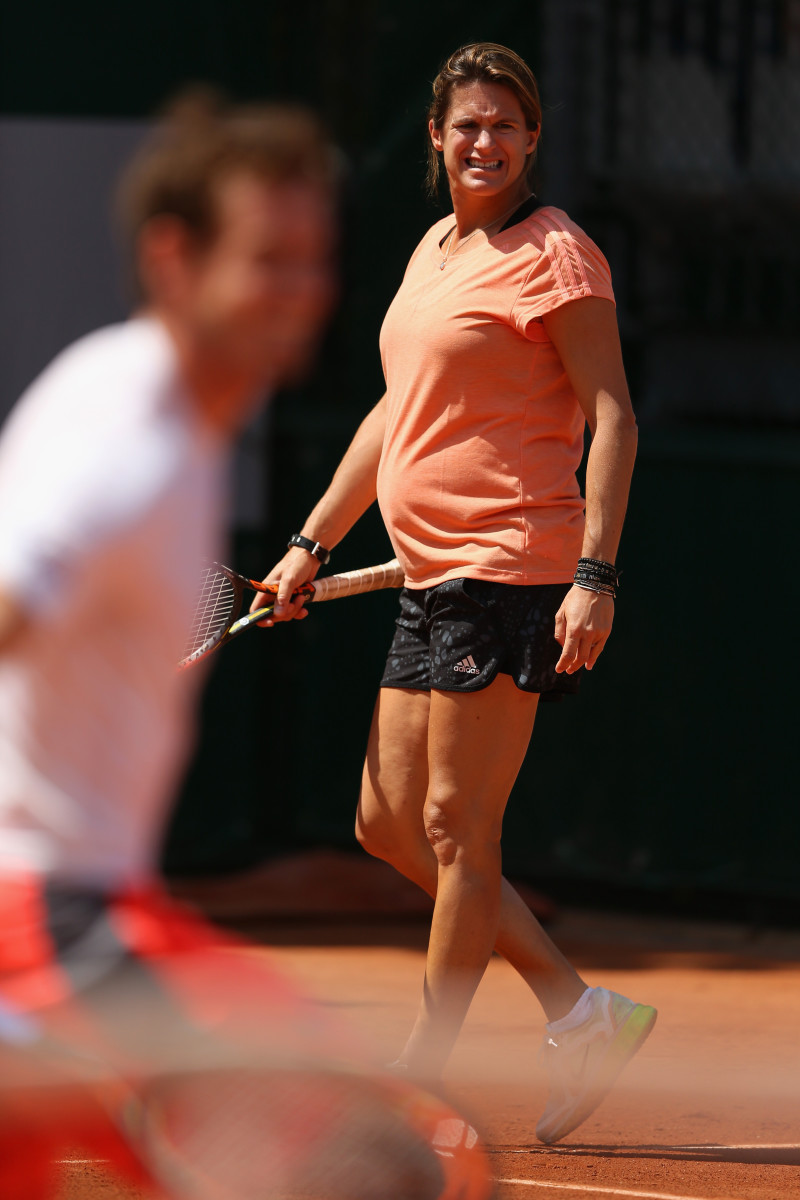
Roger Federer
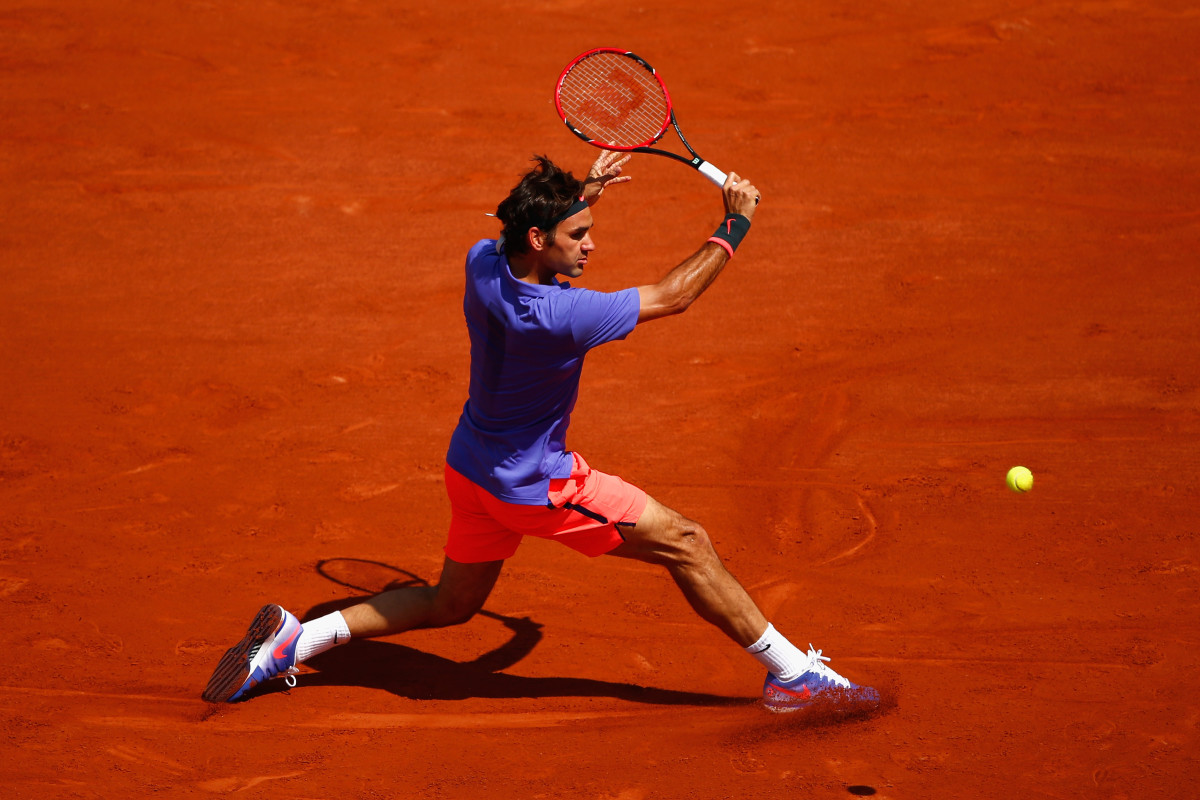
Kei Nishikori
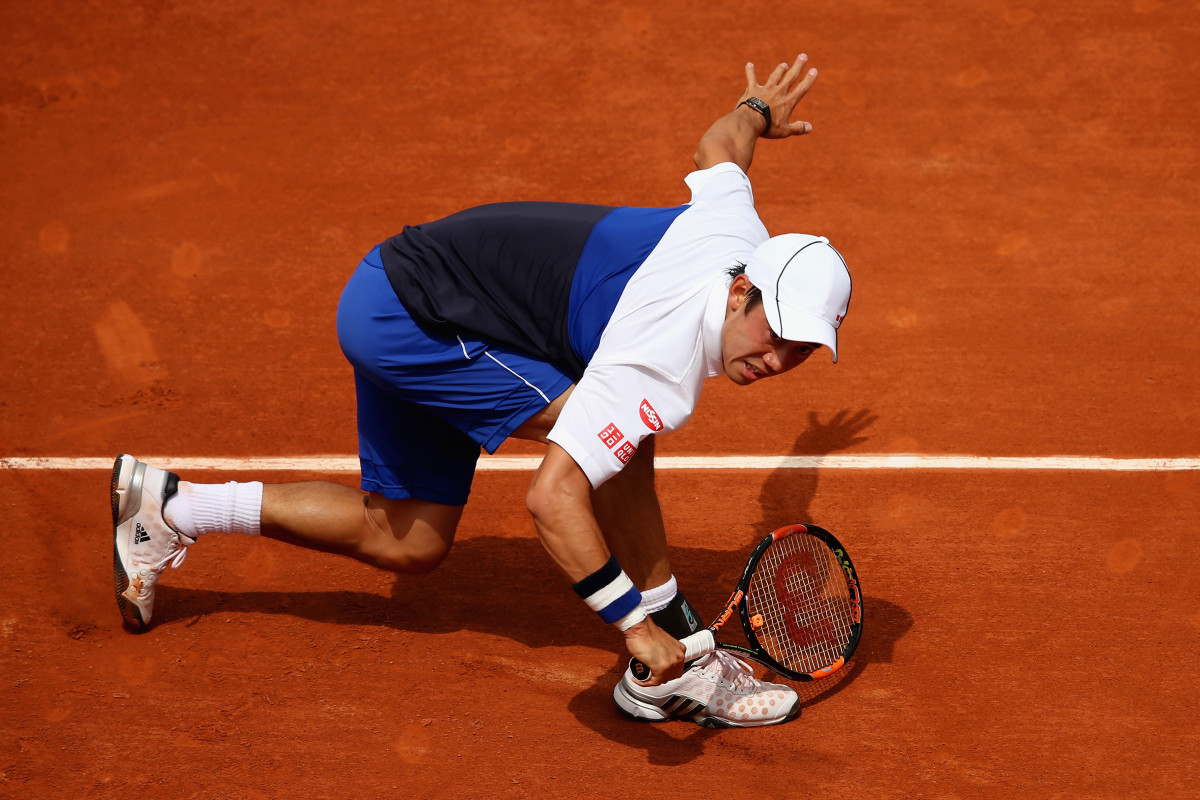
Hugh Grant and Anna Elisabet Eberstein
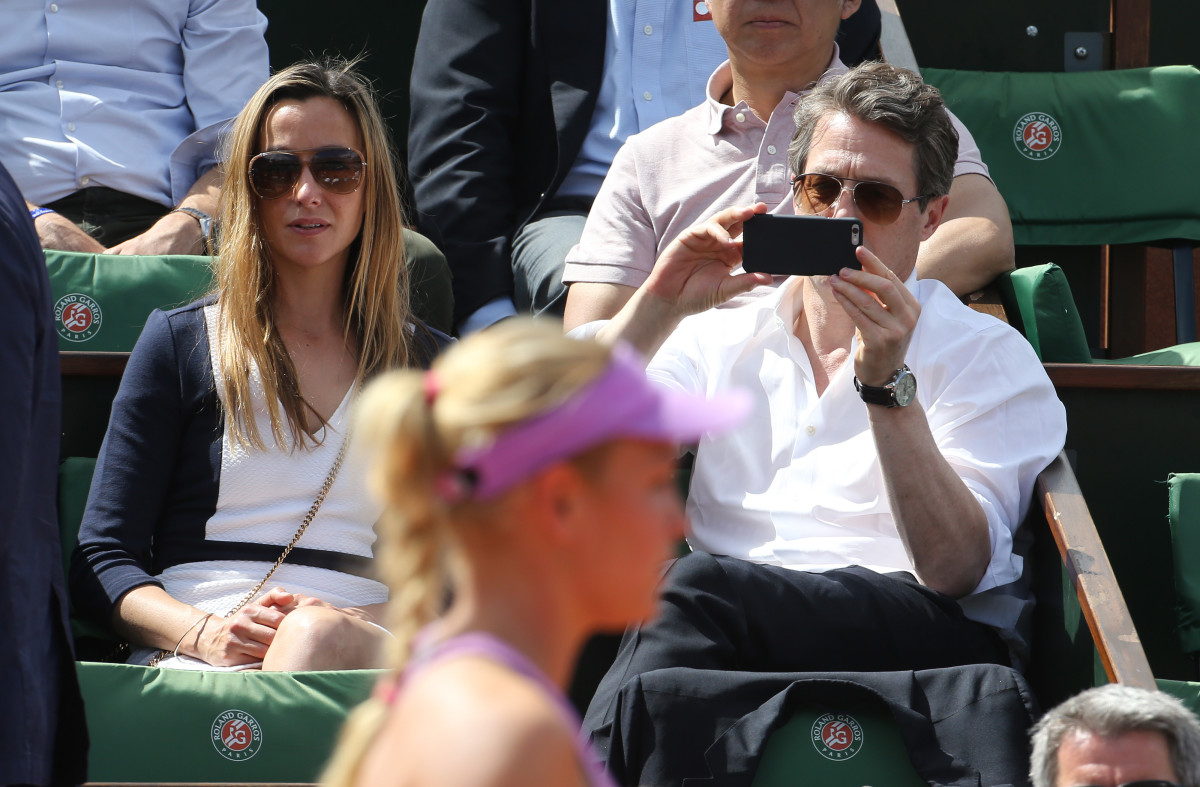
Sam Groth
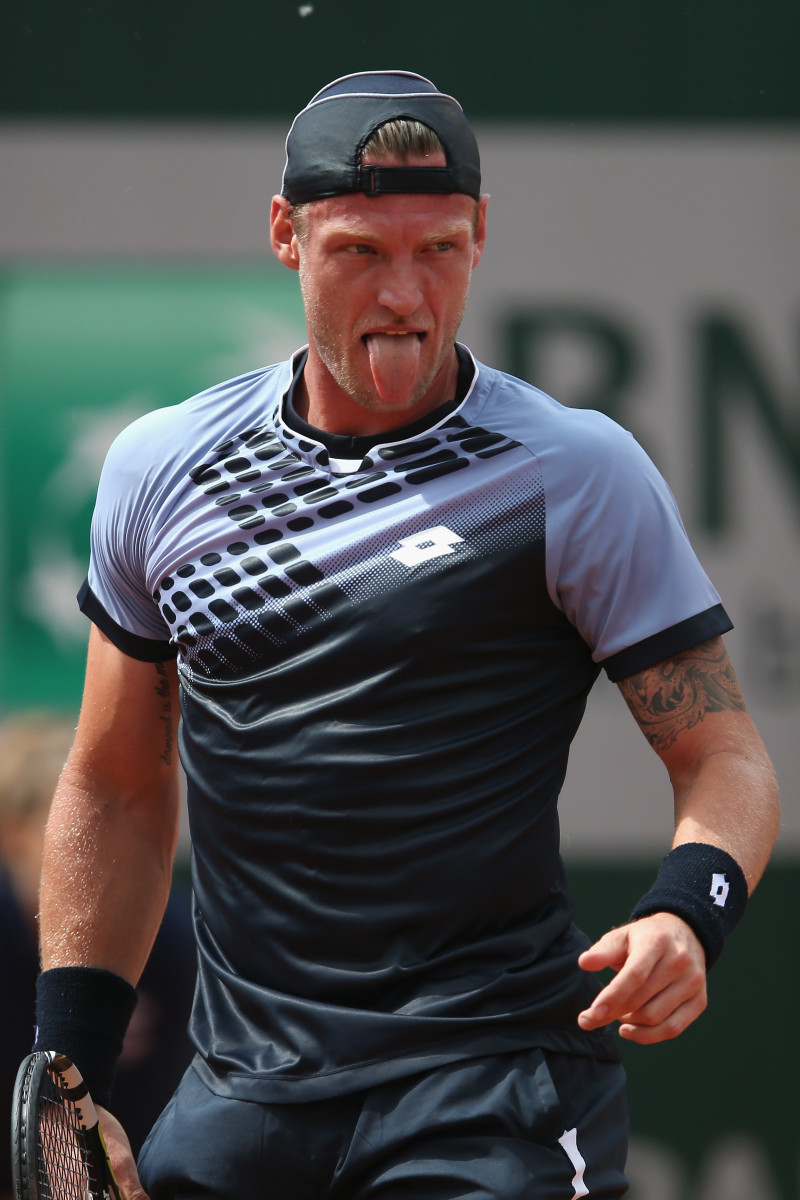
Virginie Razzano
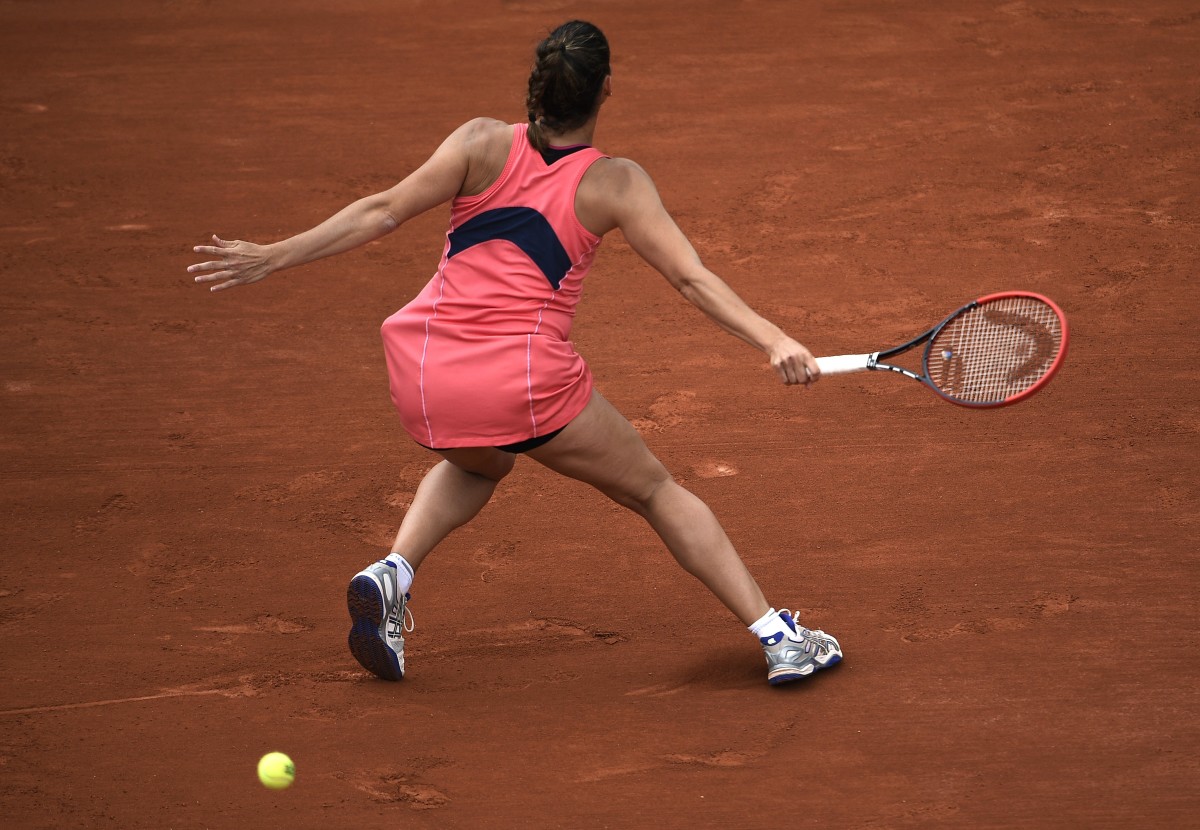
Sam Stosur
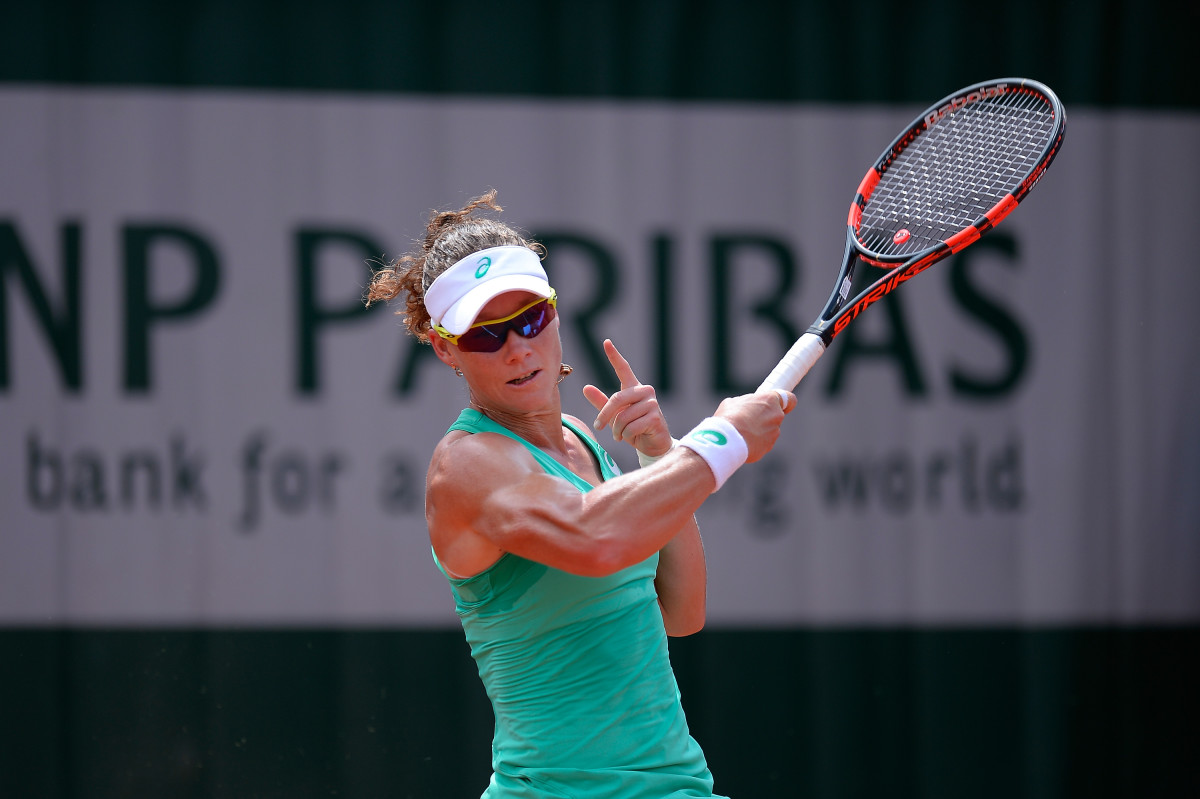
John McEnroe
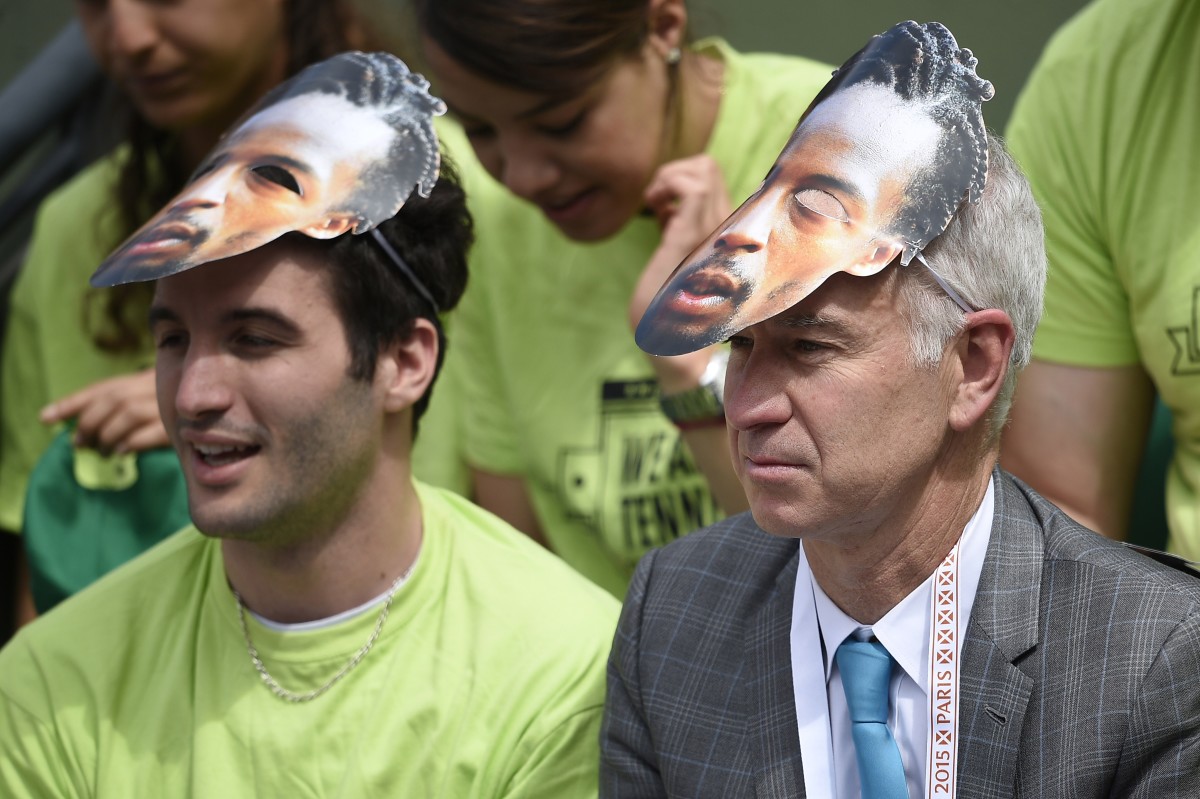
Steve Johnson
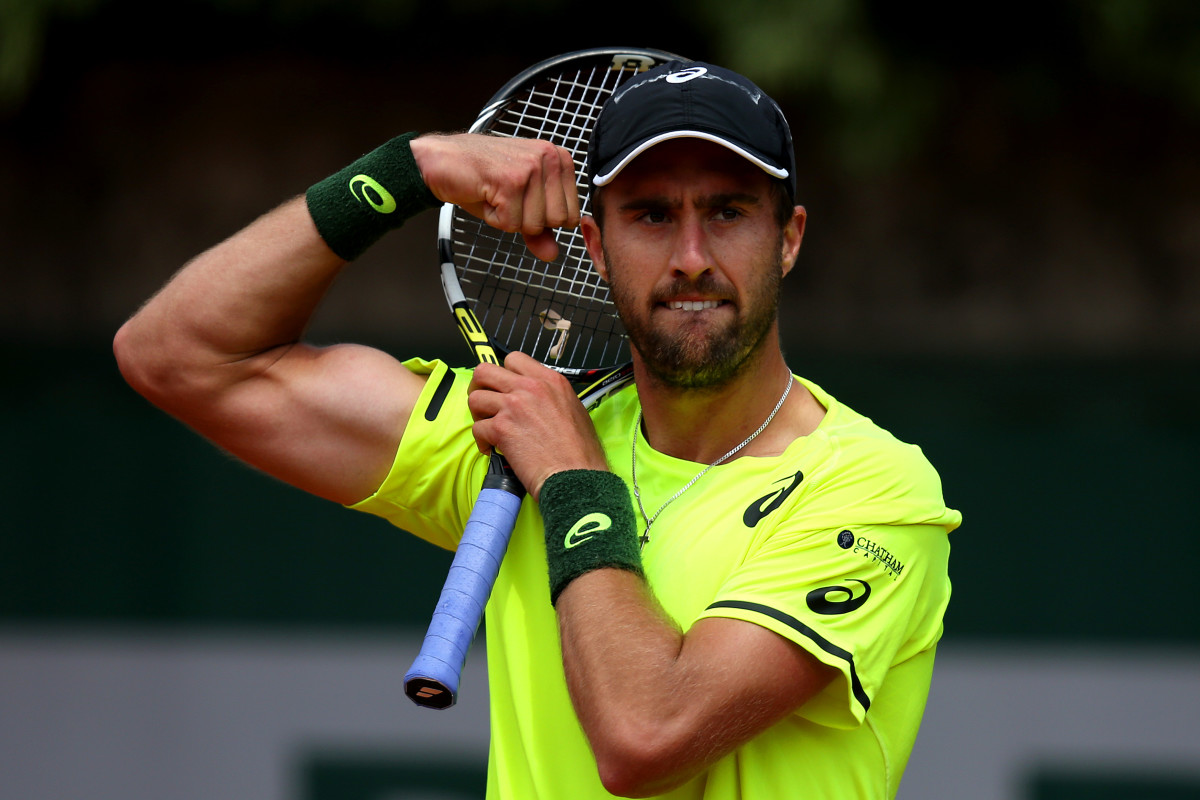
Leander Paes and Daniel Nestor
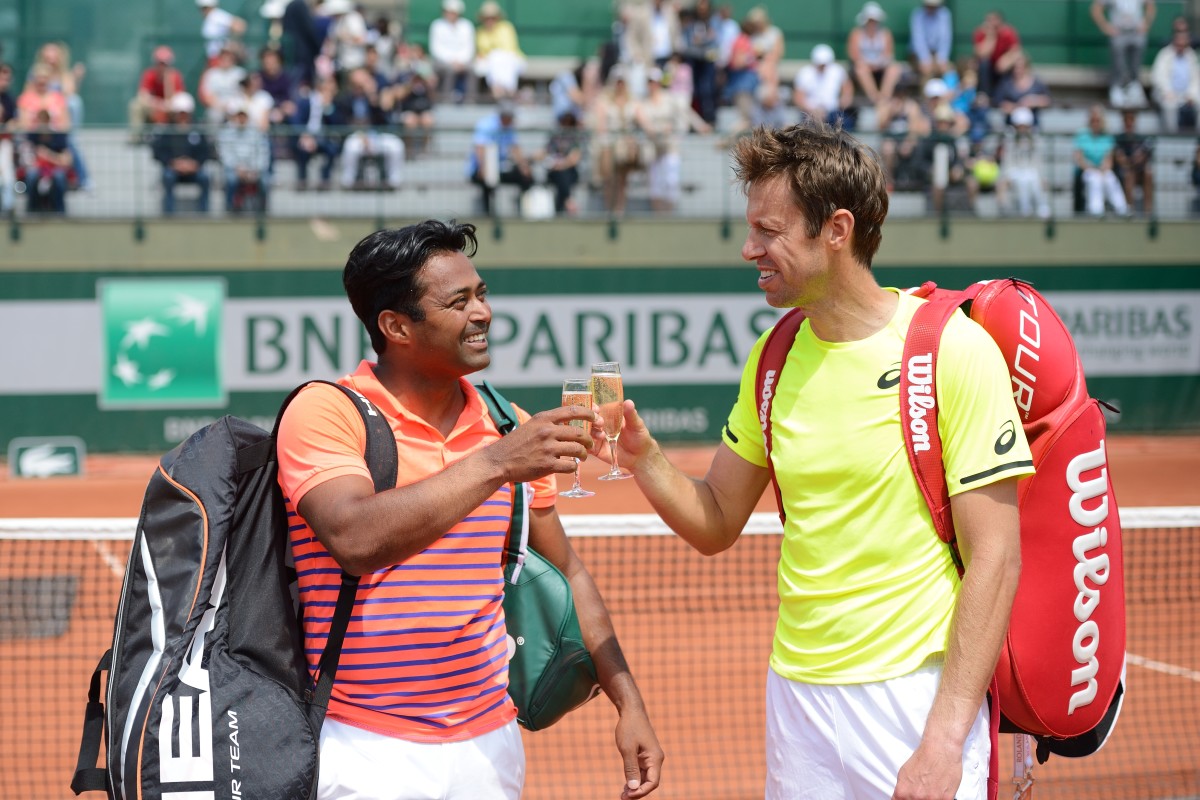
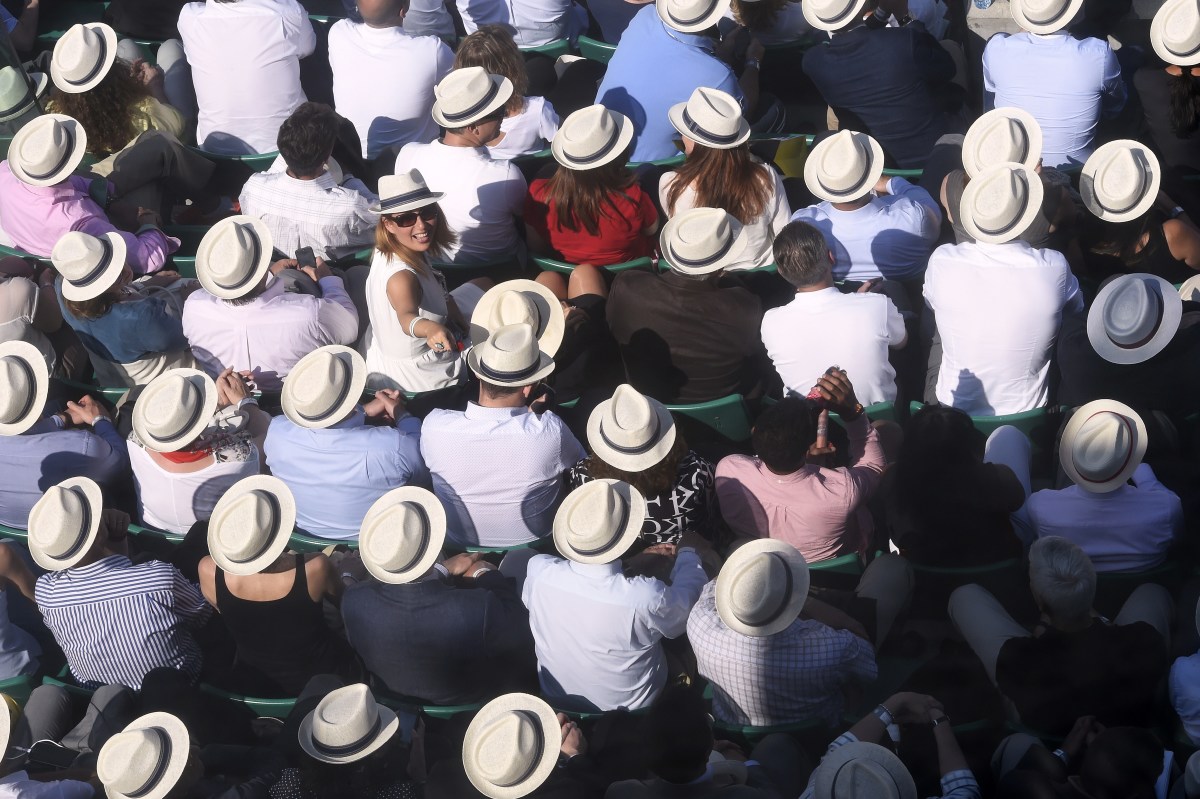
Gael Monfils
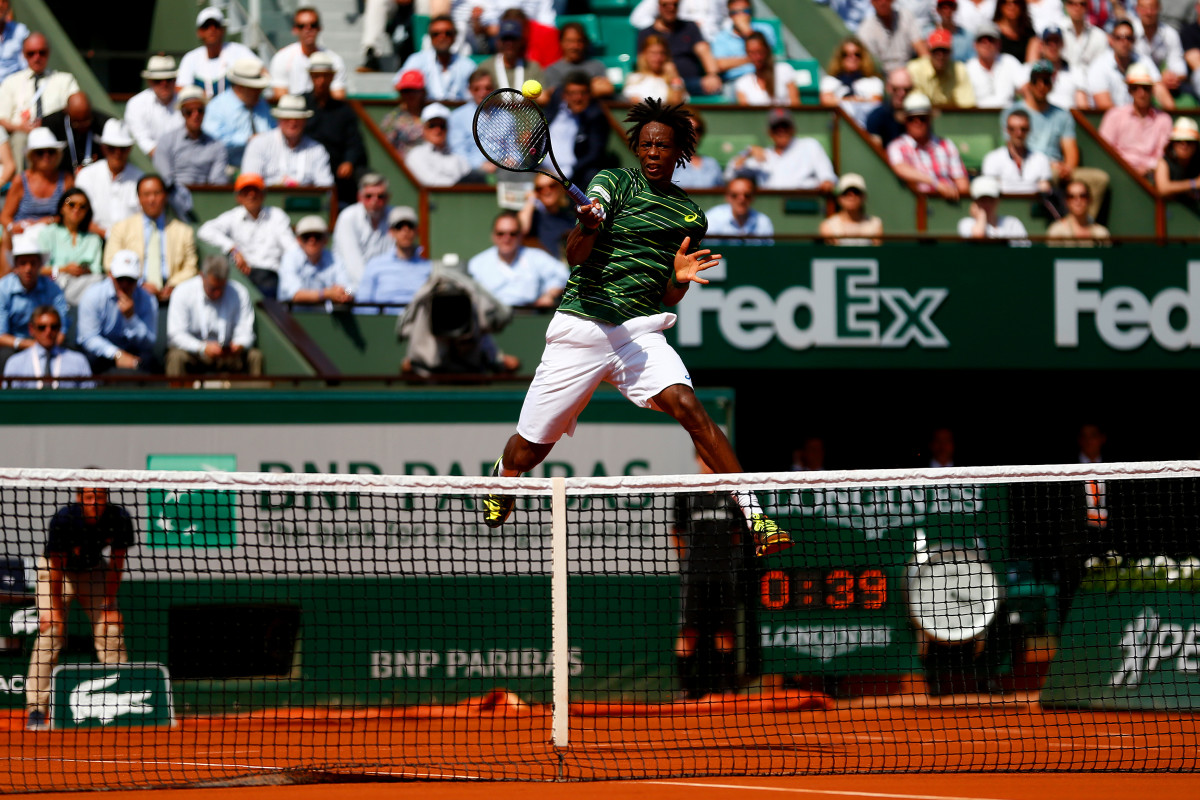
Nicolas Mahut
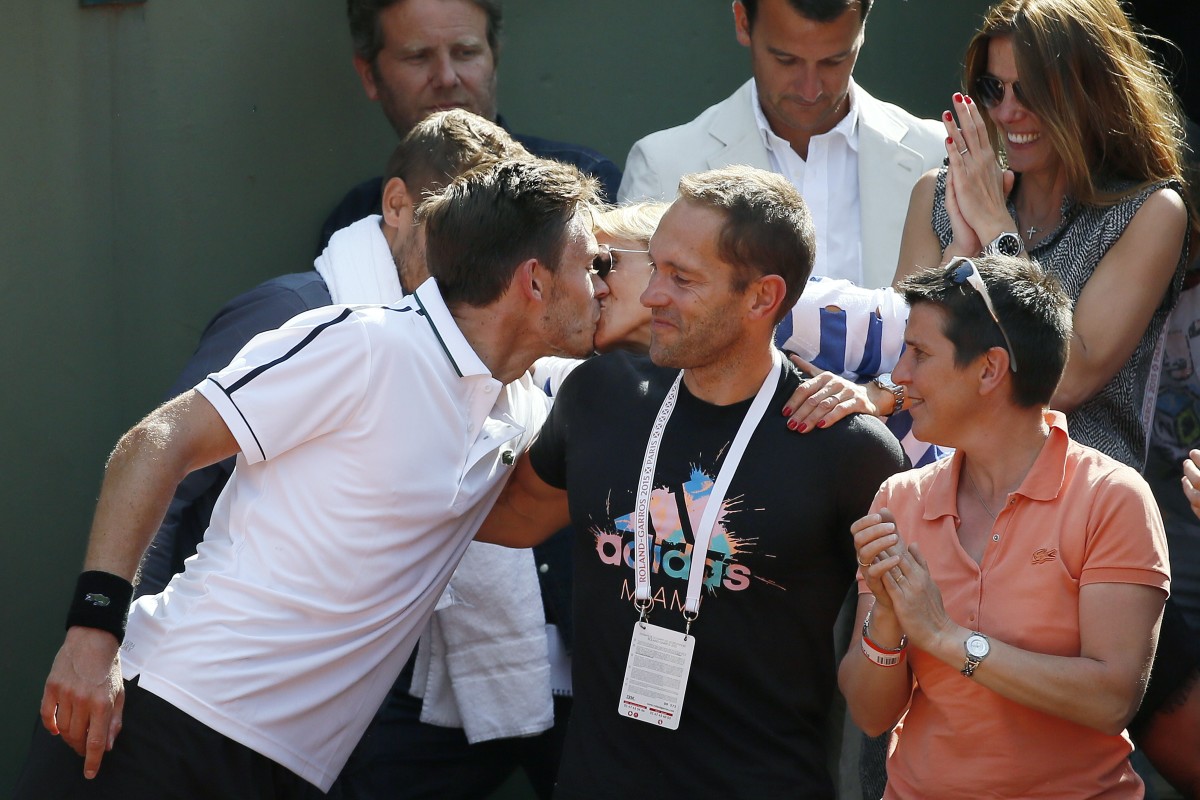
Gael Monfils
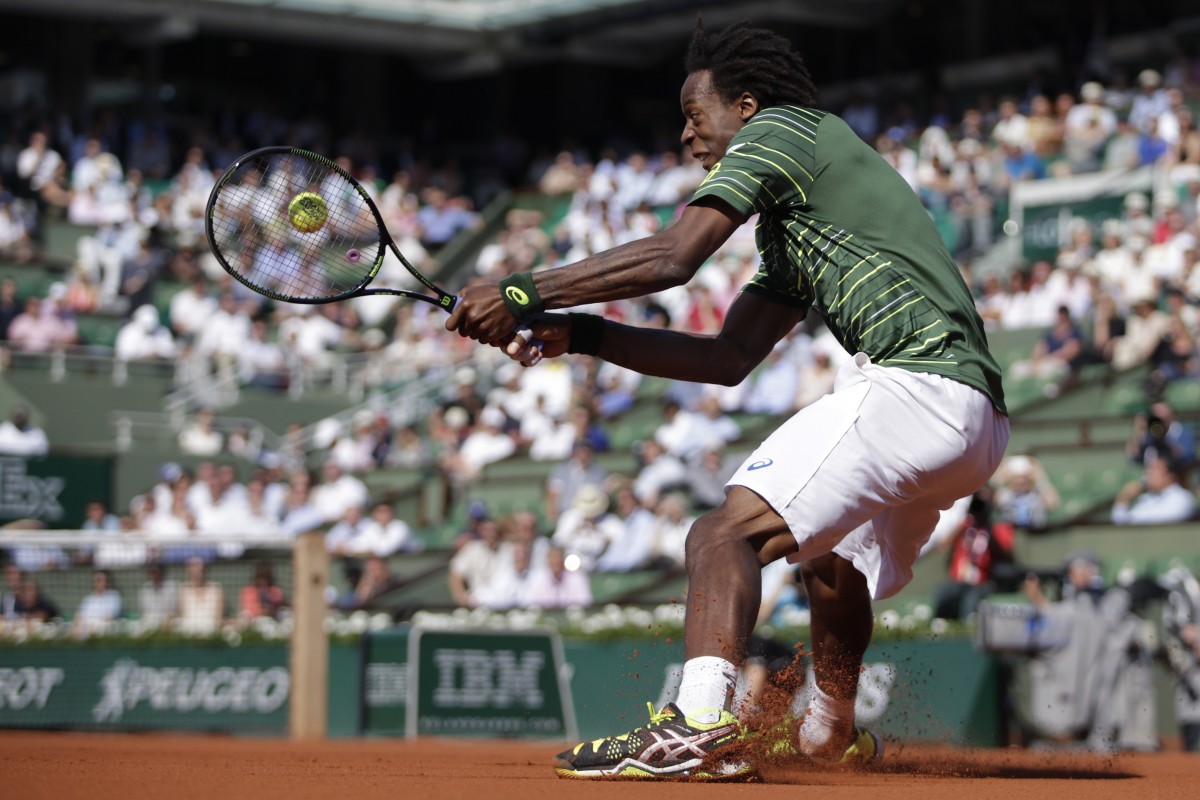
Gael Monfils
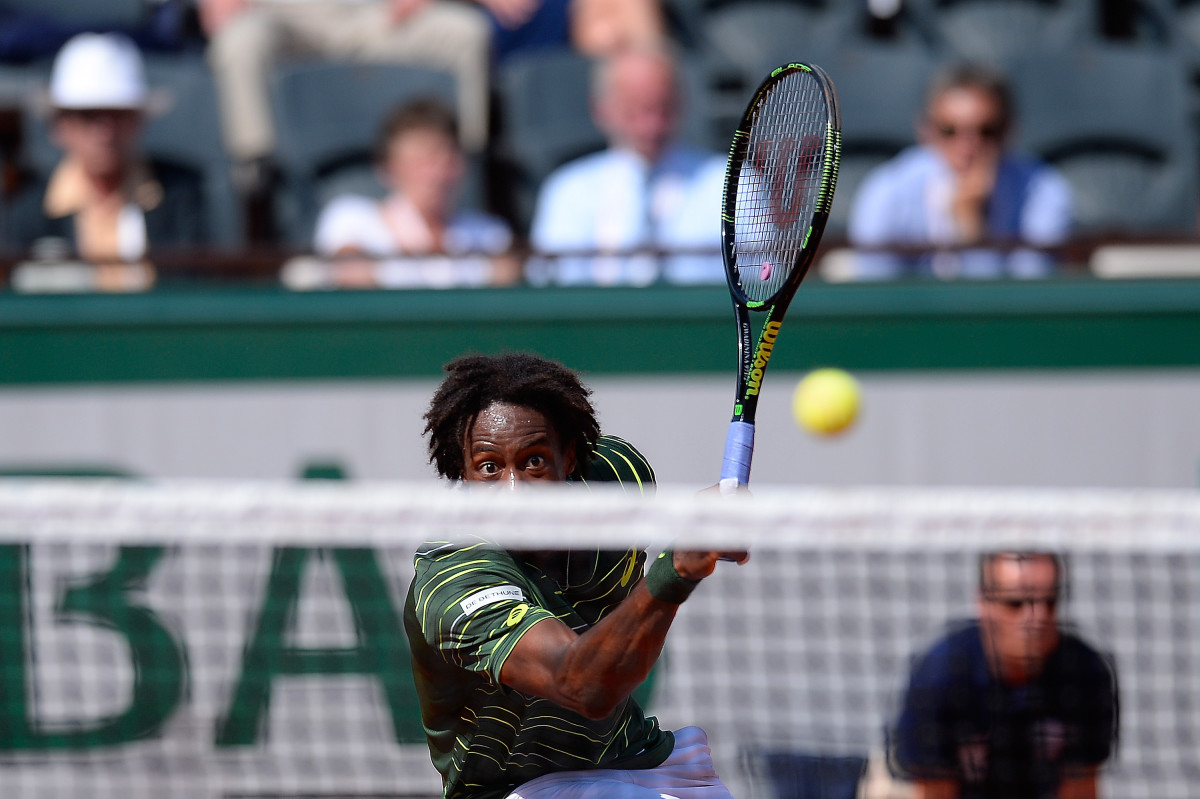
Aleksandra Krunic
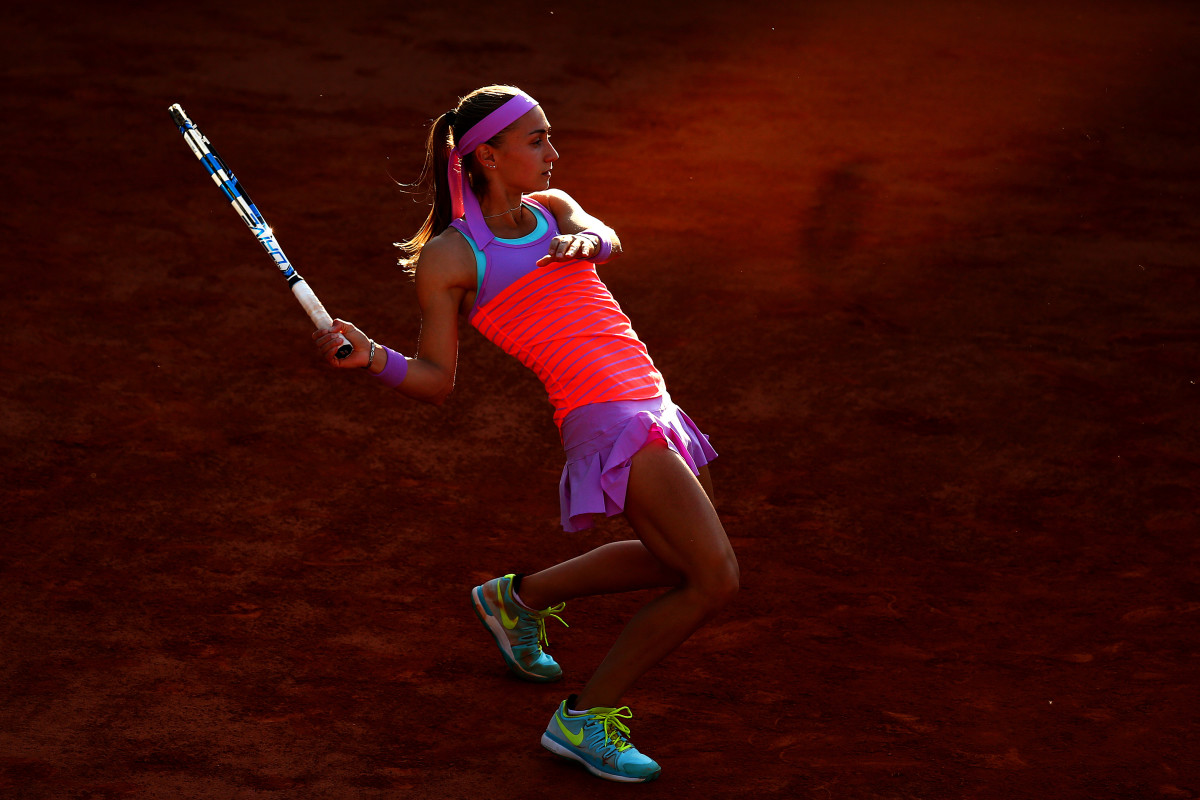
Roger Federer
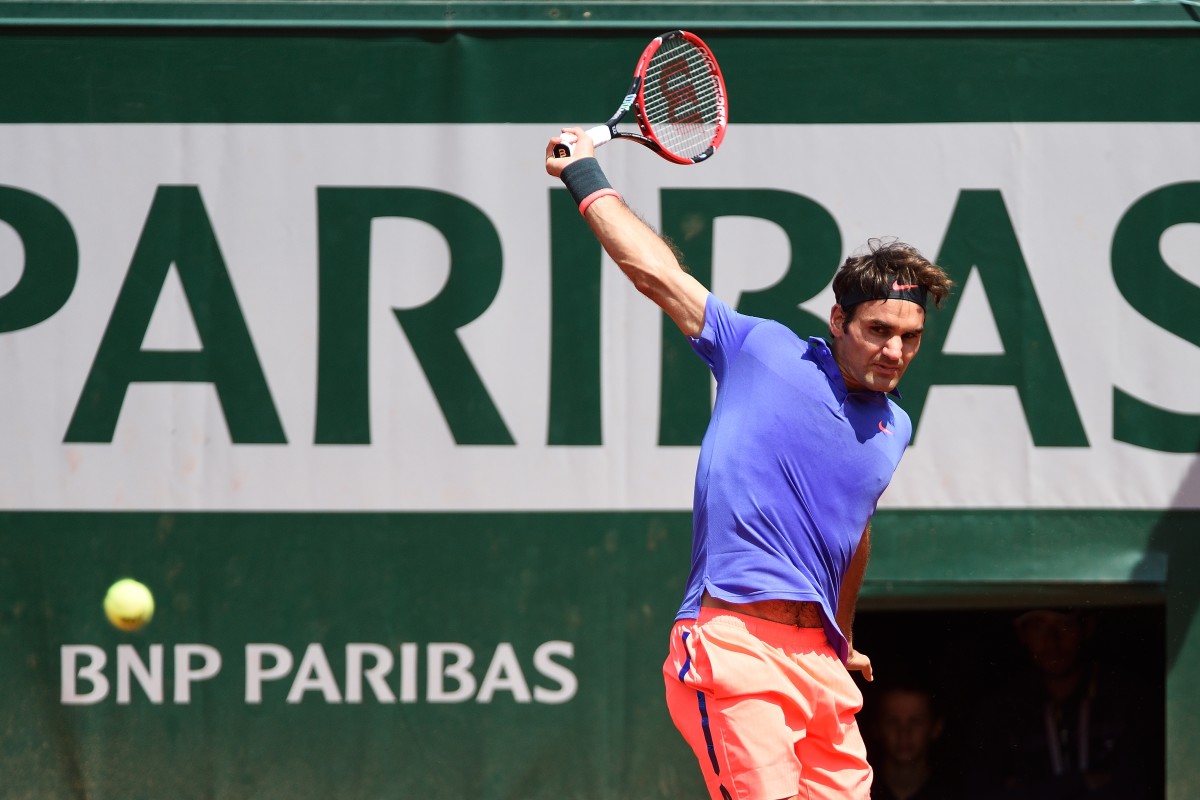
Ana Ivanovic
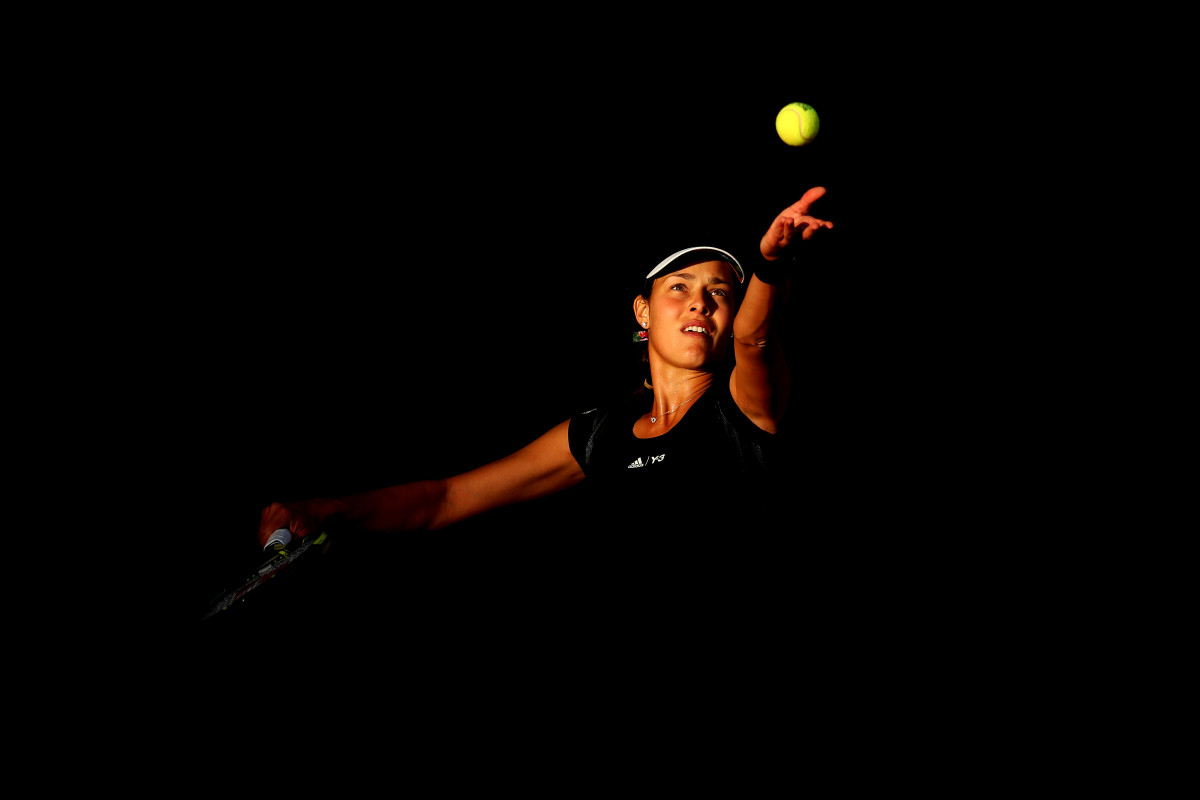
Caroline Wozniacki
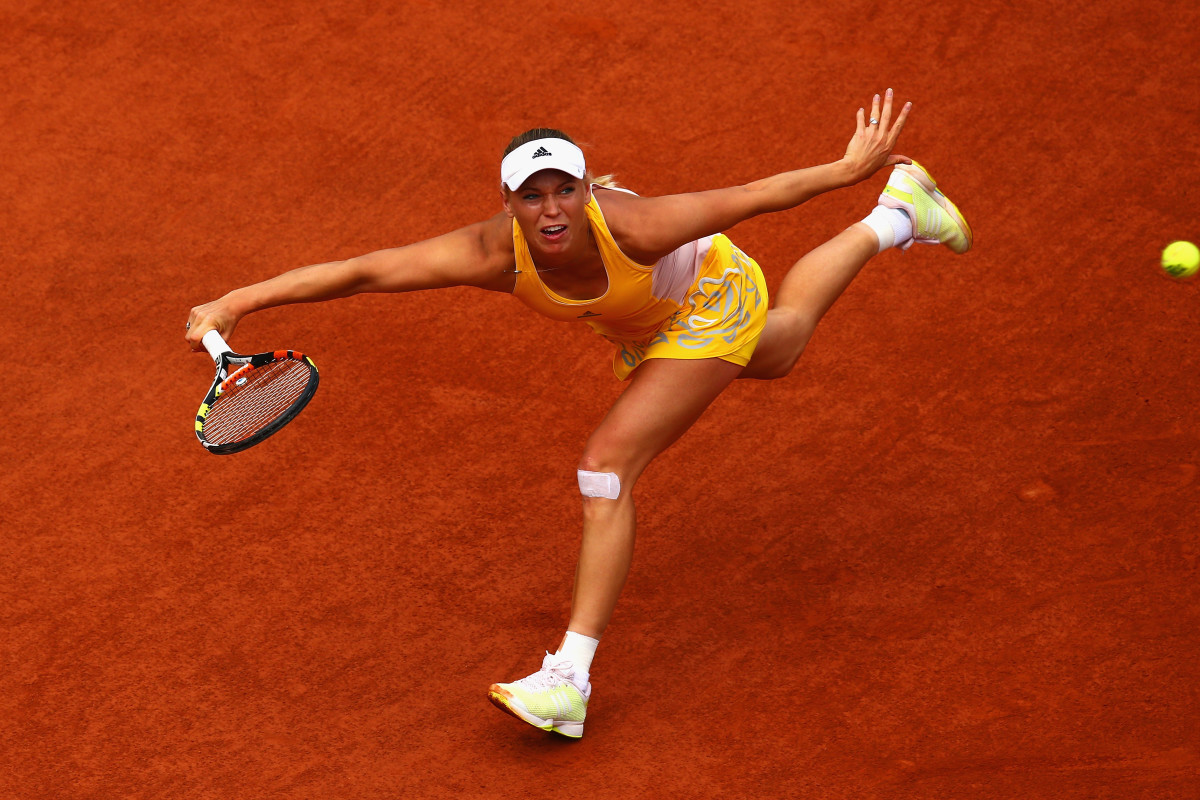
Novak Djokovic, Stan Wawrinka
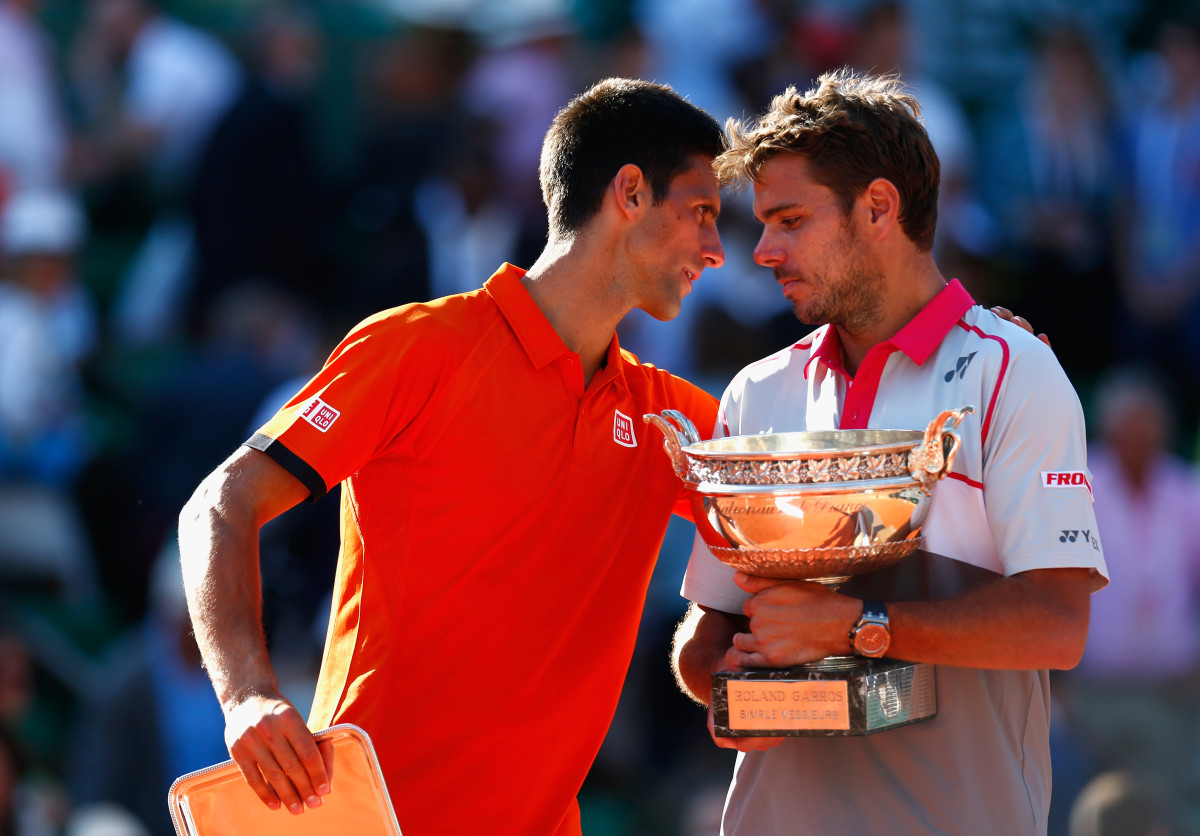
French Open
There is no finish line for his goals, which include breaking Federer’s 17 Grand Slam titles record; achieving the calendar Grand Slam; and going for the record of weeks spent at No. 1, but he is also striving for more than achievements in tennis.
“I feel very grateful for what I have right now but I feel like as I go along with my life, with the success that I have, that I have more opportunities to explore, and first of all grow myself and my family in a human perspective, not just financially, also in light of making a positive difference to the society. This is the biggest motivation I have,” he says.
Often times you'll see Djokovic leaning on a tree as if he is trying to extract energy out of it—he says nature is his best answer when he searches for peace. He is also passionate about nutrition as a way to make this positive difference. Djokovic has followed a gluten-free diet since 2010 and opened a vegan restaurant, Eqvita, in Monte Carlo this year.
First @EqvitaRes selfie! Party time & presentation of our #Eqvita restaurant. Fresh, healthy & with lots of <3 pic.twitter.com/LEpNGRoCSR
— Novak Djokovic (@DjokerNole) April 10, 2016
“Some say that it is obsessive, that you shouldn’t be that much crazy about what you eat,” he says. “I respect that but I don’t think that’s the right way of thinking. You are taking care of yourself, fueling yourself in the right way so of course you care about what you want to eat and there’s nothing wrong with that.
“Plus, I’m a professional athlete so this is a kind of responsibility, part of my everyday routine to take care of myself, to give my body strength and power.”
Djokovic's mindset is centered on improving all aspects of his life at all times—it's how his perfectionist mind operates. He says that one of the things that keeps him going his seeing the areas where he needs to improve his game, which are typically uncovered during matches with the Big 4 and other top players. Djokovic says he enjoys the competition but rejects the chaos that goes with it.
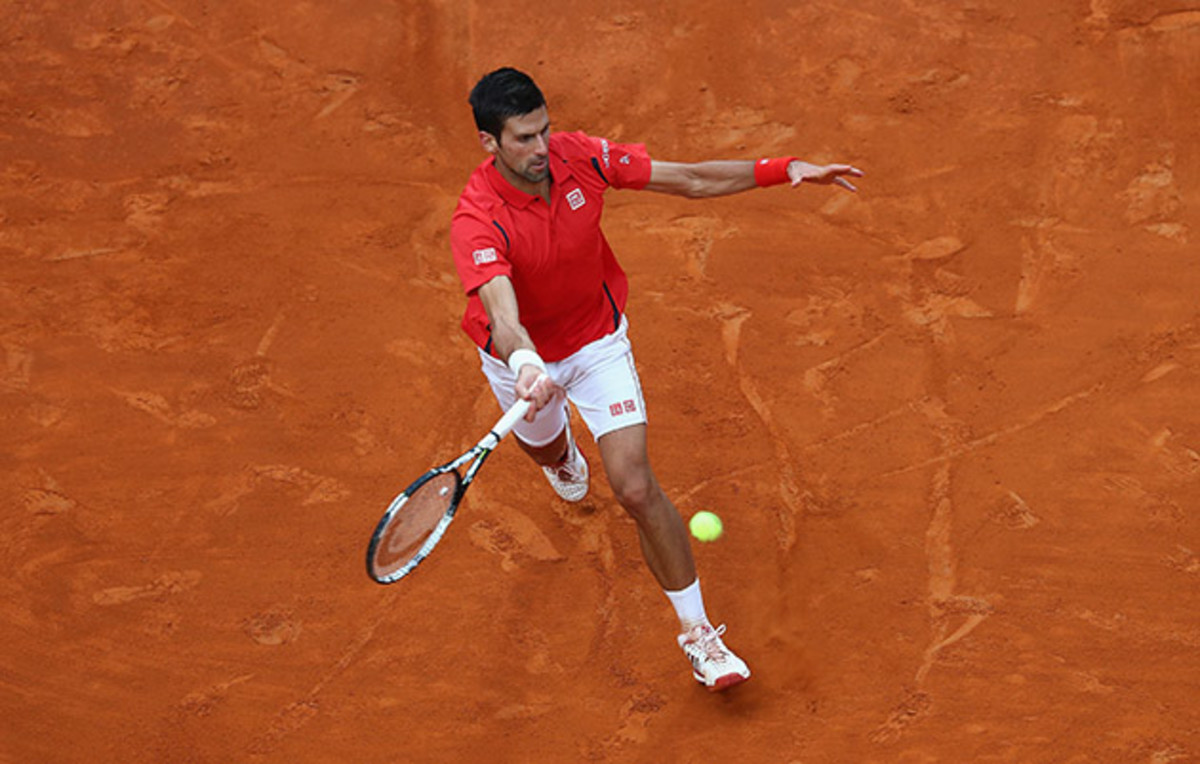
“I believe that men’s era now is actually sending a great message, because we respect each other and have a very friendly relationship off the court," he says. "Of course on the court we want to win against each other, but it’s all in the spirit of good sport and fair play. That sends a good message to many kids who want to start in sports. No disrespectful comments, not humiliating others or creating rivalries not based on sports values but on success or ego.”
As the tournament kicks off on Sunday in Paris, Djokovic will again have to deal with the pressure of being the favorite; once again at the only Grand Slam he has yet to win.
“I have always had these expectations so I can’t complain about it now. I kind of enjoy it and I have asked for it,” he says. “I’ve always wished to be where I am at the moment. So yes, I do have pressure. But I’m not the only one. It’s part of what we do and it means you’re doing something that is working.”
